








Gambling Insider explores the state of personalisation within gambling. How long until we see true progress?


WINNERS REVEALED: At the Global Gaming Awards Asia-Pacifi c
ROUNDTABLE: Omnichannel and turnkey sports betting solutions
AUSTRALIA FOCUS: An overview of casinos’ regulatory issues











































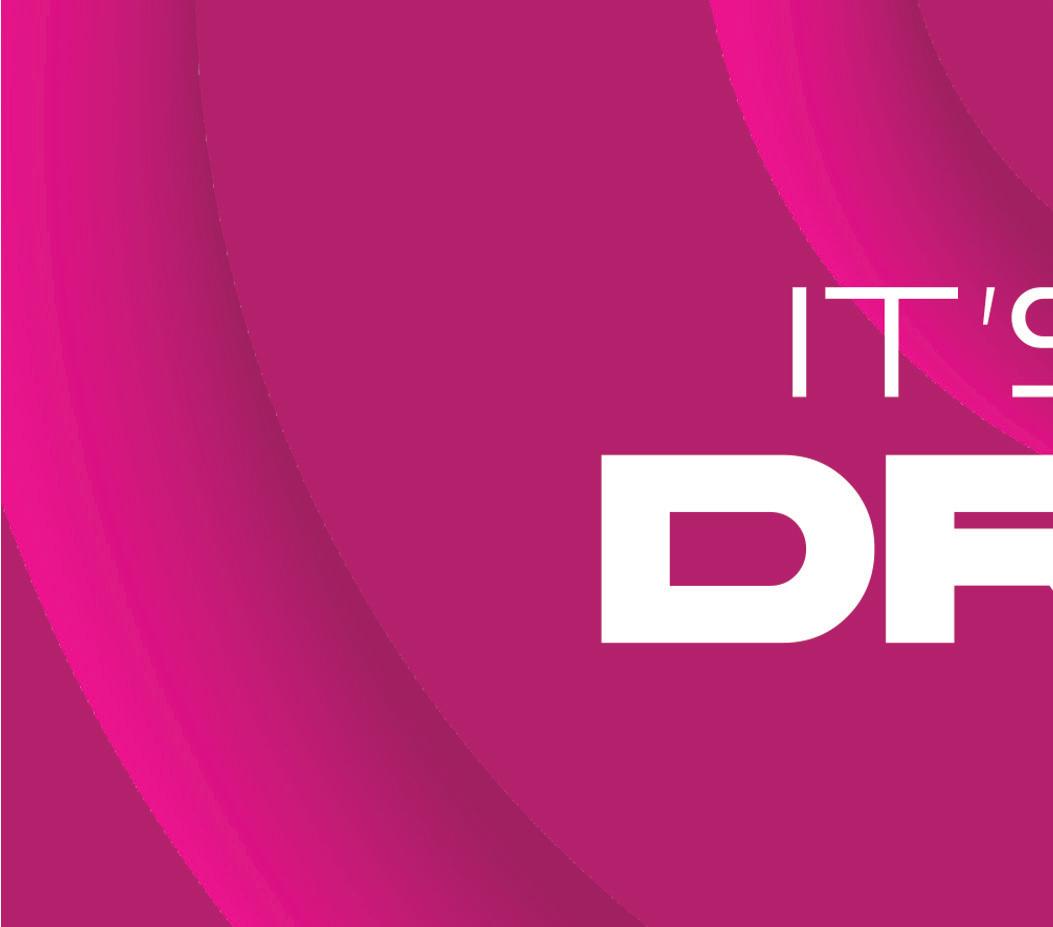



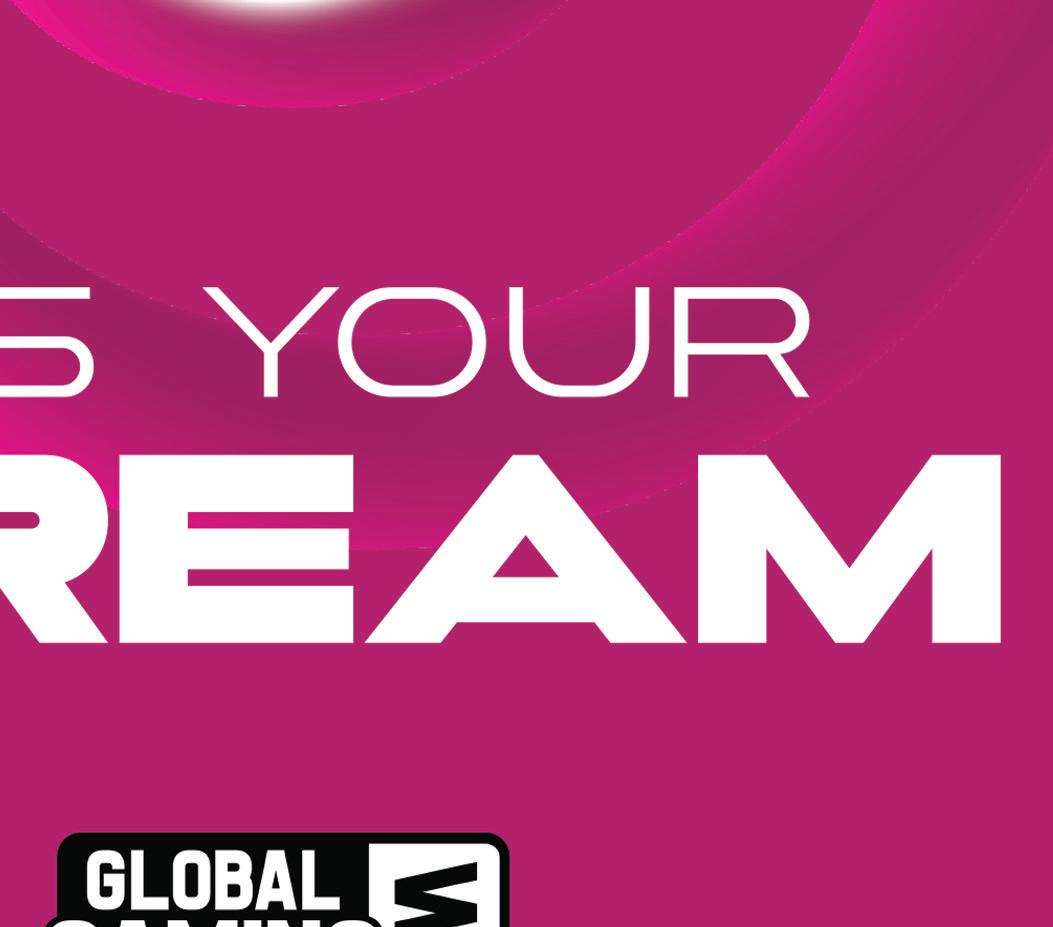
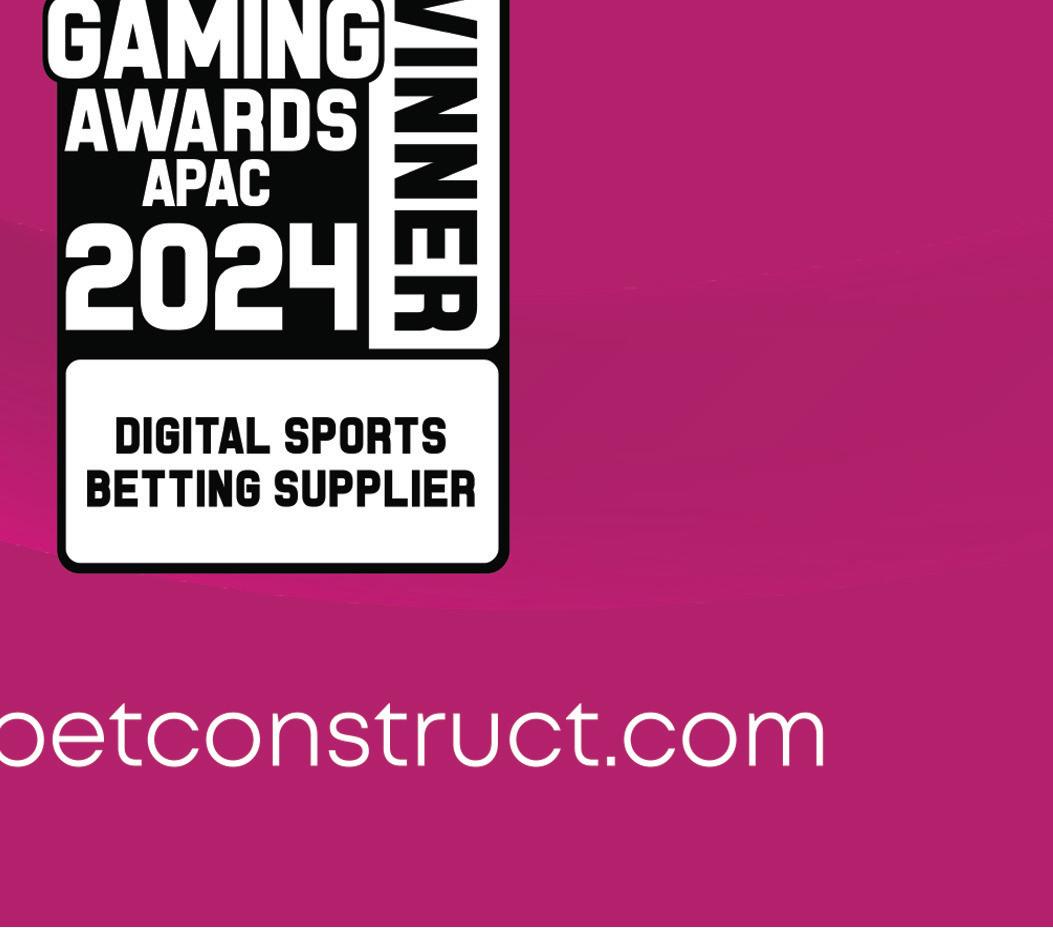





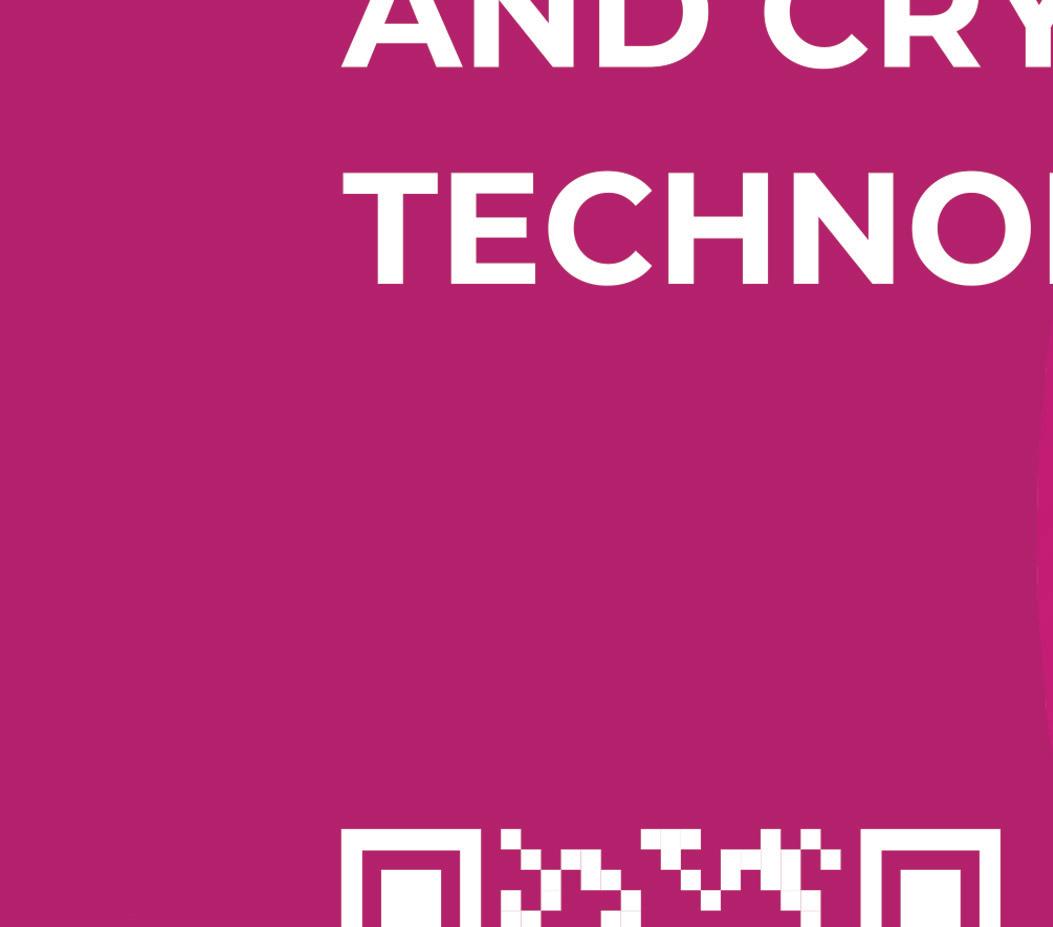


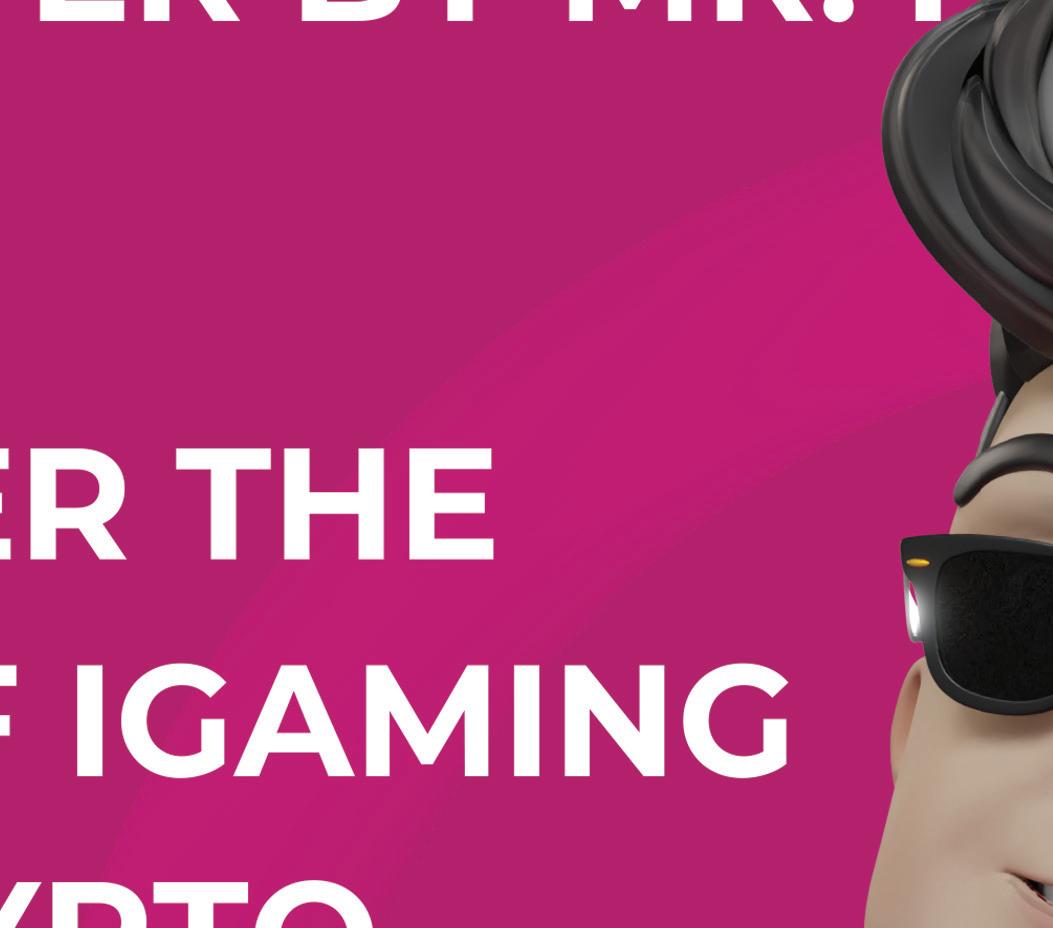






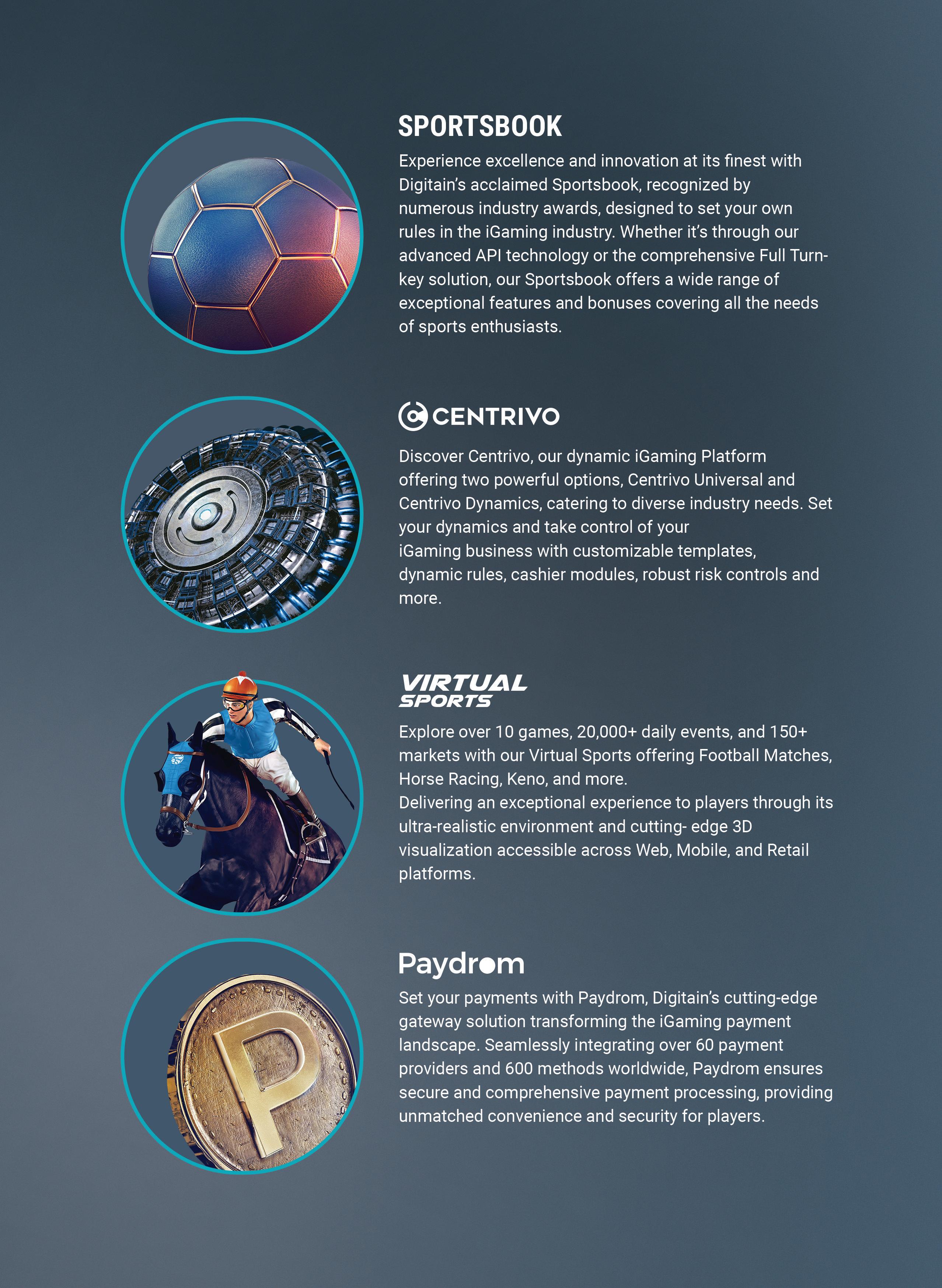




P S G
I S A S TA B L E PA R T N E R
O F 1 X B E T
B E C O M E O U R P A R T N E R T O O !



AJulian Perry, COO, Editor-in-Chief
























COO, EDITOR IN CHIEF
Julian Perry
EDITOR
Tim Poole
Tim.Poole@gamblinginsider.com
STAFF WRITERS
Beth Turner, Will Underwood
JUNIOR STAFF WRITER
Ciaran McLoughlin
CONTENT WRITER
Megan Elswyth
LEAD DESIGNER
Olesya Adamska
DESIGNERS
Poole, Editor

s Editor of Gambling Insider, I’d like to start this letter o by extending a huge congratulations to all the winners at June’s Global Gaming Awards Asia-Pacific –and a huge thank you to everyone involved in setting up the first-ever in-person version of the ceremony.
The global nature of our industry is such, though, that from Asia we move straight back to Amsterdam: so a huge welcome to all our readers, particularly anyone picking up a copy at iGB Live.
Ever since first entering gaming some years ago, I’ve heard in various forms that personalisation is ‘the next big thing.’ I heard the same about AI, which is now making a clear impact, but has gaming personalisation developed enough for a concept that has been so heavily touted?
We explore that very question in our cover feature – and what companies have to do to take tailormade personalisation to the next level. But the short answer is that gambling is still a way off in this area.
Currently, when I open a sportsbook or online casino app, I’ll see a homepage that has been prepared by the website’s content team. There will be banners promoting the biggest offers – but it will be the same offer for all players.
Yes, there are a multitude of markets to bet on – with Euro 2024, for example – and a colossal collection of slot games to try. But to nd my favourite picks, I have to search manually. There is no personalisation tool yet in existence that can measure my last 10 wagers and account for all my personal preferences, then suggest my perfect bet right at the top of the homepage when I log in.
But why shouldn’t there be?
Perhaps that’s exactly what the future holds for gambling. The industry at large, however, should stop emphasising the prospect of personalisation so much until such a reality exists. Because all that ends up doing is reminding us how far we still have left to go!
On a similar note, the personalisation debate reminds me of omnichannel… another topic we have heard countless marketing professionals wax lyrical about.

It has the potential to merge the realms of online and land-based, while it can give every gaming rm the 360-degree operations they need to dominate their respective regions.


So why hasn’t it?
A discussion at SiGMA Manila was one I found refreshingly candid, as a panel of both land-based and iGaming experts unanimously concluded that “we don’t have any true examples of omnichannel.” They o ered some hope, suggesting the Philippines’ live slots market is the closest the industry has got thus far.
Overall, though, it was a bit of a reality check to hear that a term we so often use does not actually bear that much weight given the current state of play.
As such, we explore omnichannel further in this issue’s roundtable, as well as welcoming a host of other contributors and interviewees in this bumper edition of Gambling Insider magazine. Happy reading!
TP, Editor
Claudia Astorino, Callum Flett, Gabriela Baleva
JUNIOR DESIGNER
Medina Mammadkhanova
ILLUSTRATOR
Maria Yanchovichina
MARKETING & EVENTS MANAGER Mariya Savova
FINANCE AND ADMINISTRATION ASSISTANT Dhruvika Patel
PUBLISHING ASSISTANT
Rachel Worth
IT MANAGER
Tom Powling
COMMERCIAL DIRECTOR
Deepak Malkani
Deepak.Malkani@gamblinginsider.com
Tel: +44 (0)20 7729 6279
SENIOR ACCOUNT MANAGER
Michael Juqula
Michael.Juqula@gamblinginsider.com
Tel: +44 (0)20 3487 0498
ACCOUNT MANAGERS
William Aderele
William.Aderele@gamblinginsider.com
Tel: +44 (0)20 7739 2062
Irina Litvinova
Irina.Litvinova@gamblinginsider.com
Tel: +44 (0)207 613 5863
Serena Kwong
Serena.Kwong@gamblinginsider.com
Tel: +44 (0)203 435 5628
Max NGarry
Max.Ngarry@gamblinginsider.com
Tel: +44 (0)207 729 0643
AWARDS SPONSORSHIP MANAGER
Michelle Pugh
Michelle.Pugh@globalgamingawards.com
Tel: +44 (0)207 360 7590
CREDIT MANAGER Rachel Voit
WITH THANKS TO:
Igor Kaufman, Bernd Baumert, Shad Barnes, Danny Fok, SlotsMaker, Martin Stålros, Andrea Boratto, Irina Cornides, David Mann, Dirk Camilleri, Barry Mahon, Dzianis Niasmelau, Isidoros Siderakis, Sarah Robertson, Arijus Denisovas, Alex Leese, Michael Bauer, Sergey Harutyunyan, Ashley Lang, John Connelly and Alex Scott.



Gambling Insider magazine ISSN 2043-9466
and published by Players





























52 Recap: SiGMA Manila 2024
Gambling Insider takes a look back at various conference panels from the SiGMA Asia Summit in Manila 2024
56 A new face
38 Tailor-made
With insights from GR8 Tech, Greentube and the Oregon Lottery, Gambling Insider investigates the importance of personalisation and why it seems the gaming industry is falling behind...
46 More offerings, greater efficiency
Danny Fok, VP of Strategic Projects at Sportradar, speaks all about the supplier’s deal with the Taiwan Sports Lottery
50 Building a brand
The Slotsmaker team speaks to Gambling Insider at SiGMA Manila 2024
Gambling Insider Editor Tim Poole speaks exclusively with new Relax Gaming CEO Martin Stålros
60 Effective personalisation
Andrea Boratto, WorldMatch CEO, unpicks the challenge of instantaneous iGaming interaction
62 Tournaments for all
Pragmatic Play COO Irina Cornides speaks to Gambling Insider about the provider’s live casino promotion Blackjack League
64 More than just a game
Gambling Insider speaks to Swintt CEO David Mann about the company’s work in 2024, trending modern slots and much more
66 Netflix style
Gambling Insider speaks with iGP COO Dirk Camilleri about our main theme of personalisation

















68 Personalising the casino experience
Imagine Live’s new CCO, Barry Mahon, talks to Gambling Insider about settling into his new role, player interaction and more
70 Roundtable
Industry experts answer Gambling Insider’s burning questions on all things related to finding the best solution for a sportsbook platform
76 A riddle of polarised outcomes
Paul Newson, Gambling Insider contributor and gaming regulation expert, provides an overview of Australian casinos' continued regulatory issues
78 Understanding player behaviour
Hryhorii Shelest gives an overview of the importance of marketing metrics in gambling
80 Delivering change
Novomatic's Christoph Neubauer speaks to Gambling Insider about the industry's ever-increasing CSR commitments
84 Michael Bauer Greentube
86 Sergey Harutyunyan Playtech
87 Ashley Lang Pragmatic Solutions
88 Hasmik Gevorgyan Relum
89 John Connelly Interblock
94 The industry’s latest Gambling Insider reviews the newest products on the market
98 Alex Scott WPT Poker
Gambling Insider tracks the Q1 results of operators across the gambling industry, on the hunt for the latest trends in 2024
Source: Wynn Resorts
• As was seen across the entirety of the land-based gaming market, Covid-19 caused rapid decline in quarterly revenue between 2020 and 2022, especially in Asia, where lockdowns were particularly strict. However, the market has since seen strong recovery, with Wynn’s Q1 2024 outperforming both 2019 and 2018.
• While casino revenue is still behind prepandemic levels, investment in non-gaming amenities, such as rooms and food and beverage, have allowed Wynn Resorts to make a quick and efficient recovery. However, the majority of this revenue likely comes from Vegas operations, with Macaubased operations like Wynn Macau and Wynn Palace gaining most of their revenue from casino. For example, company wide, in Q1 2024 60.2% of revenue came from casino. Meanwhile, at Wynn Macau, the amount from casino rises to 80.7%.
Source: Company site
• Neither SJM nor Galaxy Entertainment have yet recovered their revenue to pre-Covid levels, which for Q1 2019 was HK$9bn (US$1.15bn) and HK$13.05bn respectively. However, the two seem to be on relatively similar growth trajectories, suggesting this may not be the case for much longer.
• Between SJM and Galaxy Entertainment, it was the latter that saw the sharpest decline from 2019 to 2020. This is despite both operators running casinos exclusively in Macau.


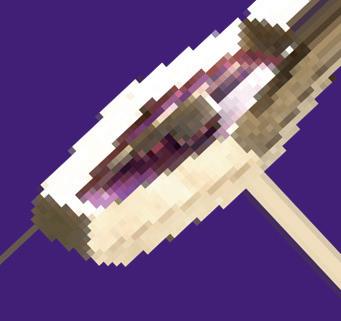























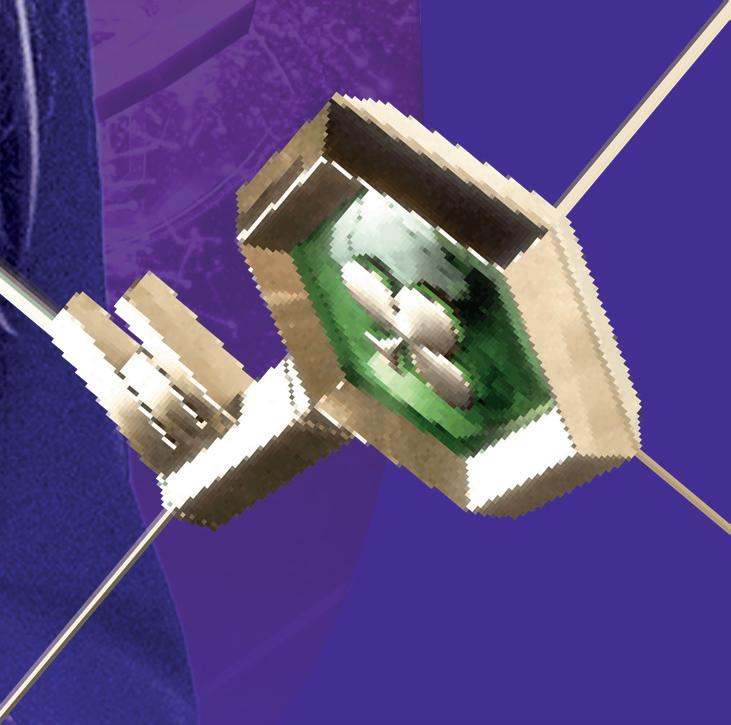




Source: MGM
• In Q1 2024, MGM China outperformed its pre-Covid results, indicating complete recovery. Among many casinos in Macau, there has been a shift towards the diversification of offerings (see Wynn), looking towards food, beverage and entertainment as ways to bring in alternative revenue.
• On the other hand, regional operations have seen the least growth across MGM’s gaming ventures, up 34.3% from 2018 to 2024. Las Vegas Strip operations were up 58% in the same period, while MGM China has seen growth from 2018 of 76.7%.
Source: The American Gaming Association (AGA)
• Accounting for all forms of commercial gaming, including sports betting and iGaming, these results highlight the strength of New York’s sports betting market. Online casinos have yet to be legalised in the Empire State, while Pennsylvania, New Jersey and Michigan account for three of the seven iGaming states.
• It must also be noted that despite Q1 results,
Pennsylvania and New Jersey typically are far more head-to-head in revenue, trading higher gaming revenue month-to-month. For example, in October 2023 New Jersey earned $4m more than Pennsylvania at $487m, while in March 2024 Pennsylvania outperformed New Jersey by $28m at $554.6m.
• While there is a degree of fluctuation, between the five states listed, growth of commercial
gaming has been shown to be fairly consistent, with only one state showing a year-on-year gaming revenue decline. Ohio’s 16% year-onyear decline in Q1 2024 was reported to be due to a significant decrease in sports betting that quarter, with spend down 37.1%. This is due to sports betting, both land-based and online, launching in the Buckeye State at the turn of the year in 2023.

























































































































































































































































































































Source: Flutter
• Following Flutter’s exit from the Irish stock market and decision to make the New York Stock Exchange its primary exchange, Flutter results began reporting in US dollars ($) rather than Pound sterling (£). As such, all revenue has been converted to USD as of conversion rates on 15 May 2024.
• FanDuel now outperforms Flutter’s UK&I division, which includes longstanding brands such as Paddy Power and Betfair. In 2023 Flutter’s international segment also outperformed the UK&I, with a majority of revenue from this segment coming from iGaming as opposed to sports betting.
Source: Company reports
• DraftKings, the second-largest sportsbook in the US, has been operating at a loss for several years. This Q1, however, DraftKings reported a positive adjusted EBITDA of $22.4m. That is to say, while it doesn’t confirm that DraftKings will operate at a profit any time soon, it is a positive sign pointing to its possibility.
• After dropping Barstool Sports and launching ESPN Bet in November 2023, Penn Interactive took on significant losses, reflected in the adjusted EBITDA decline reported in Q1 2024. Whether the operator will be able to recover these losses by next year, however, is yet to be seen.
• Caesars Digital saw a significant dip in adjusted EBITDA for Q1 2022. This may, in part, be due to the re-opening of land-based casinos post-Covid, which may have encouraged bettors to put down their phones and return to the casino floor – evident by the 146% growth in Caesars Las Vegas Strip adjusted EBITDA that quarter.
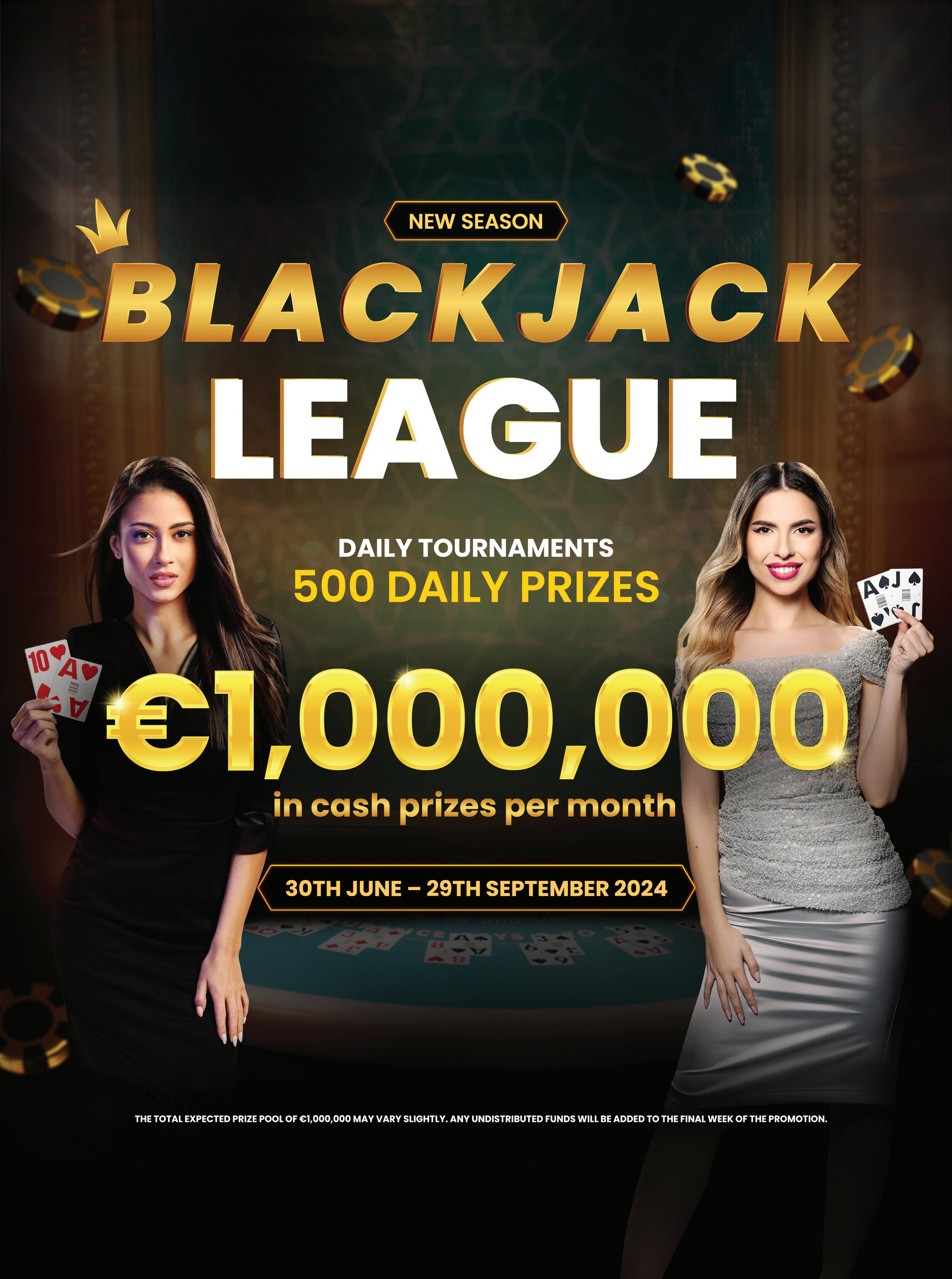
Gambling Insider tracks sports betting operator and supplier prices. Stock prices are taken across a six-month period (January 2024 to June 2024) – and from the close of the first available date of the month
DRAFTKINGS
PENN ENTERTAINMENT
(44.94
CAESARS ENTERTAINMENT
• Six-month high - January (25.95 USD) • Six-month low - May (16.44 USD)
Market capitalisation - US$2.67m (as June 3 2024) • Six-month high - January (47.78 USD)
Six-month low - June (35.62 USD)
Market capitalisation - US$7.68bn (as of June 3 2024)




• Six-month high - January (168.80 SEK)
• Six-month low - April (92.40 SEK)
• Market capitalisation - US$0.29bn (as of June 3 2024)
• Six-month high - January (27.40 USD)
• Six-month low - May (19.90 USD)
• Market capitalisation - US$3.98bn (as of June 3 2024)
• Six-month high - April (11.58 USD)
• Six-month low - May (9.26 USD)
• Market capitalisation - US$3.04bn (as of June 3 2024)
Six-month high - May (504.00 GBp)
Six-month low - February (445.20 GBp) Market capitalisation - US$1.86bn (as of June 3 2024)

After 68 years in operation, Allwyn has seen a lot in its time. Having recently pinched the UK National Lottery from Camelot, Allwyn is moving from strength to strength, proving it can withstand the test of time
Communist leaders in Czechoslovakia allow the foundation of a single Sports Betting organisation, Sazka, in an attempt to combat illegal gambling and increase the nation’s tax revenue.
Exactly 55 years after its inception, Sazka, now the incumbent operator of the Czech Republic’s National Lottery, is acquired by Swiss investment company KKCG.
Sazka collapses under significant debt of CZK 15bn ($659m).
KKCG (which would later merge into Sazka) acquires a joint 11.3% shareholding in Austrian lottery and gaming organisation, CASAG, with EMMA.
KKCG and EMMA merge their respective lottery assets into Sazka.
The remaining 25% of Sazka Group’s shares owned by EMMA are transferred to the KKCG, as it absorbs the entirety of the group, becoming the sole owner.
EMMA Capital (which would later merge into Sazka) completes the purchase of a 33% stake in Greek betting group, OPAP.
Sazka Group acquires a 32.5% stake of the Italian lottery LOTTOITALIA through the establishment of a joint venture with IGT subsidiary Lottomatica.
In another expansive move, Sazka acquires a 67% share of Croatian sports betting company SuperSport.





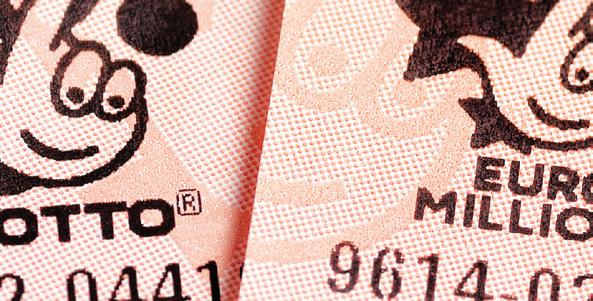




Sazka Entertainment secures a €500m ($542.8m) investment from Apollo Global Management.

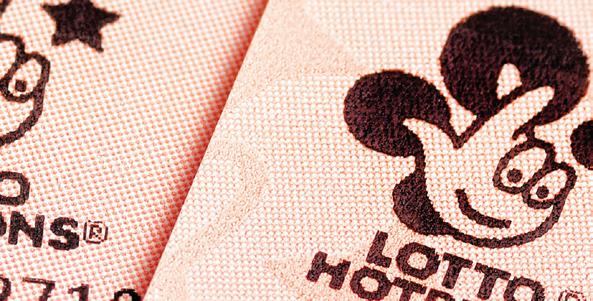









Allwyn completes its rebranding, changing its name from Sazka Group, with all four companies in the group undergoing a name change to align with the new vision of the company.
After succeeding Camelot as the new operator of the National Lottery, Allwyn then goes on to acquire its rival for the sum of £100m ($126m).
As part of the acquisition of Camelot Lottery Solutions group, Allwyn inherits the operational responsibilities of the Illinois State Lottery –subsequently partnering with the Arkansas Scholarship Lottery to extend its operations further.

An additional 17.19% stake in Austrian lottery CASAG is purchased by Sazka Group from Novomatic AG, bringing its total shareholding now up to 55.48%.
After absorbing EMMA’s share in OPAP, Sazka increases its shareholding in the operator to over 40%.
The recently rebranded Allwyn pulls off a historic bid to become the new operator of the UK National Lottery, after being awarded the fourth licence to run the lottery which was previously held by Camelot for almost 30 years.
Allwyn brokers a deal to acquire a 36.75% of digital sports betting operator Betano from Kaizen Group.
Allwyn officially takes over the running of the UK National Lottery, as it changes hands for the first time in 30 years.













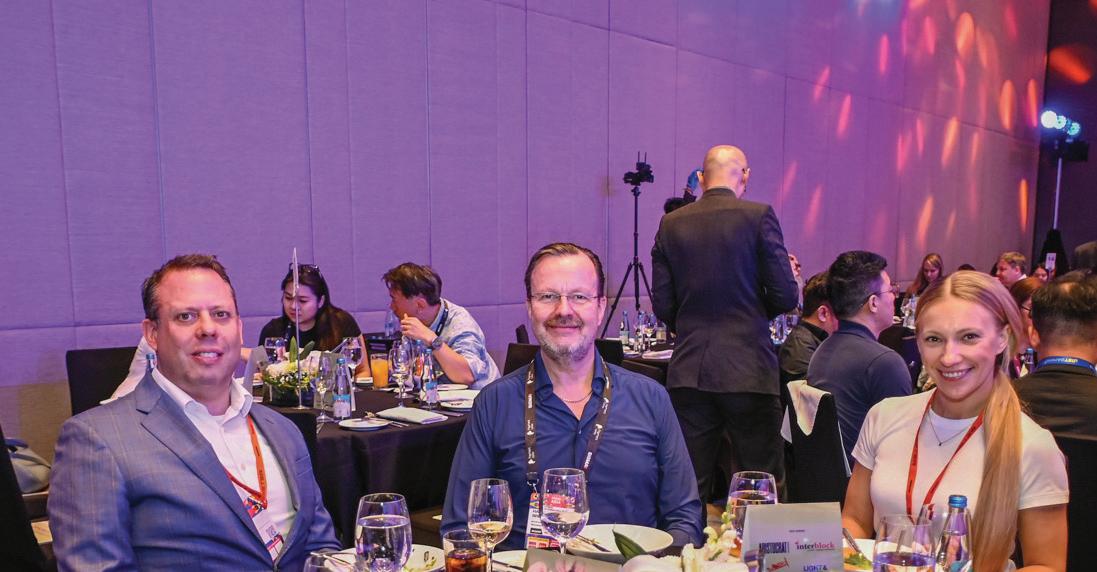
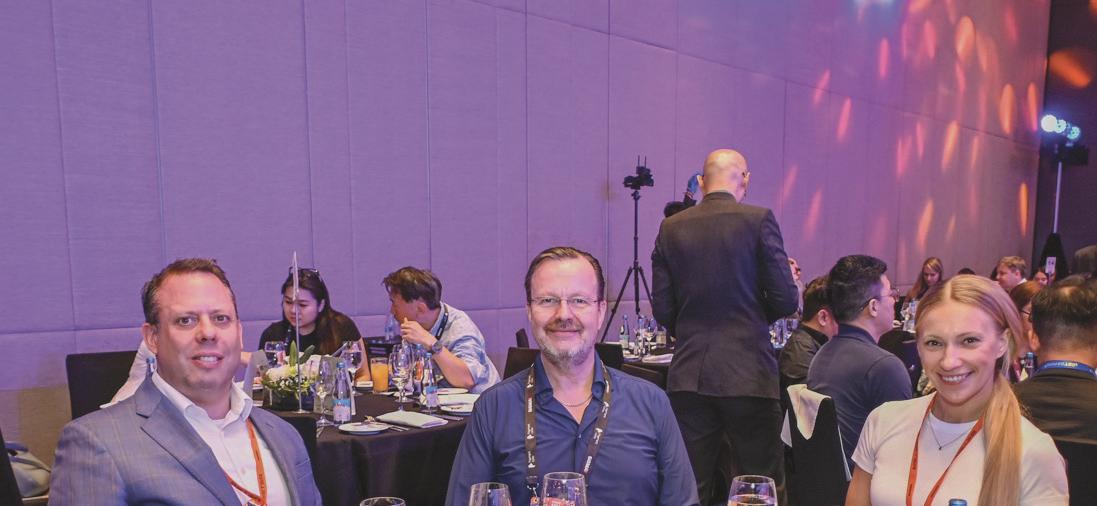
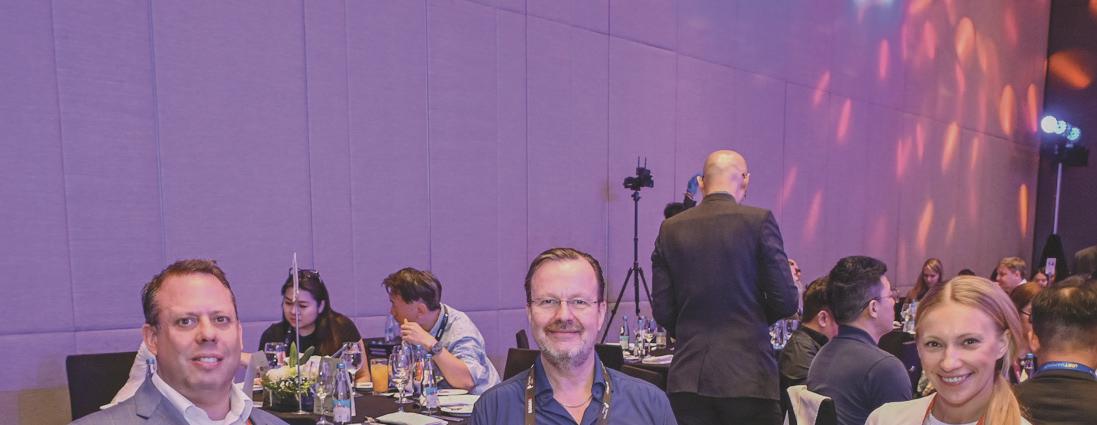
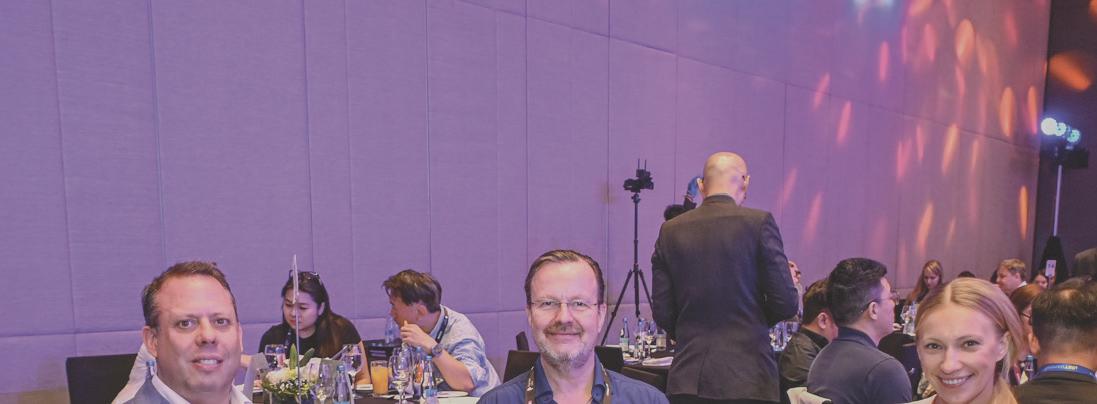
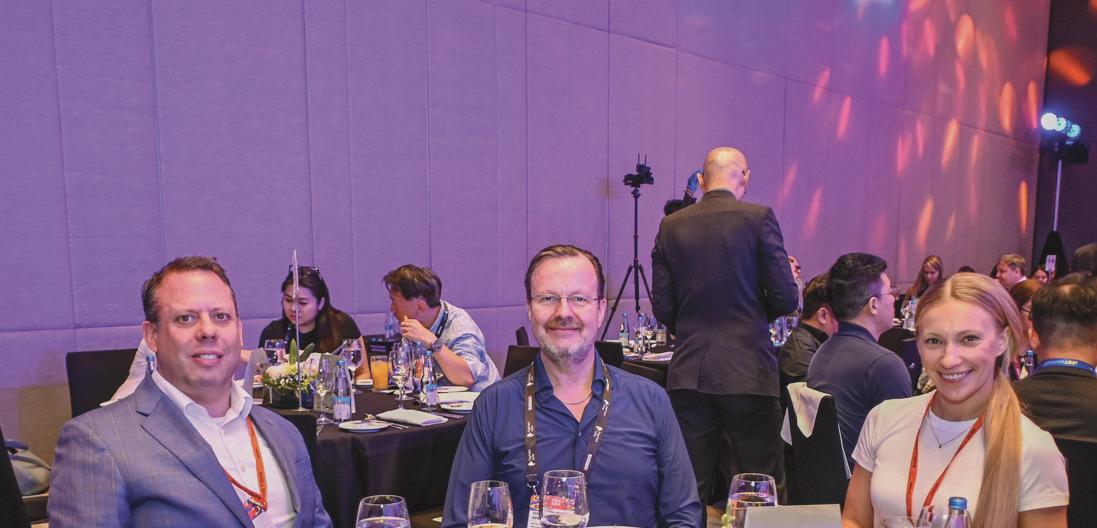
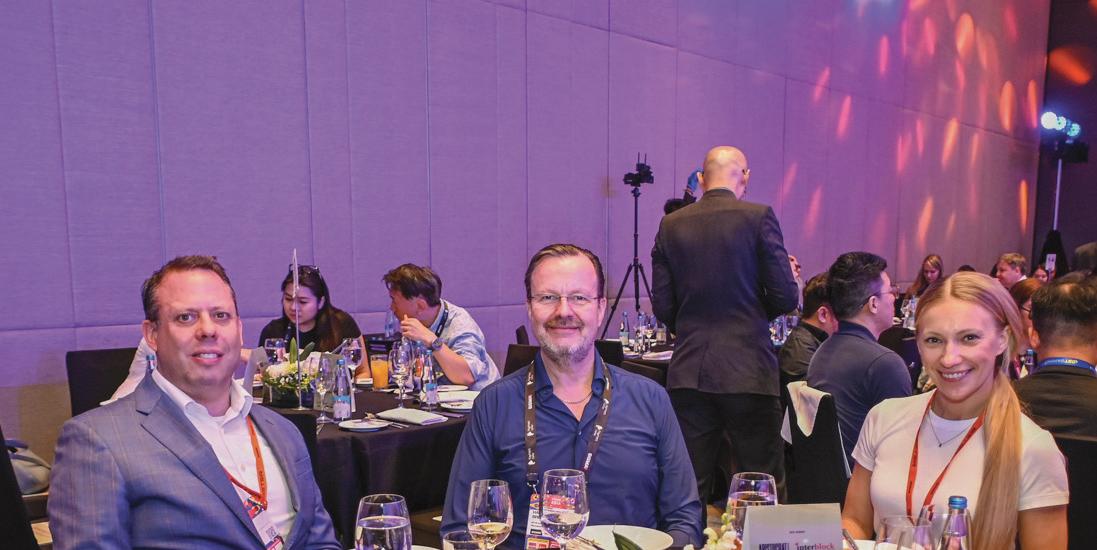
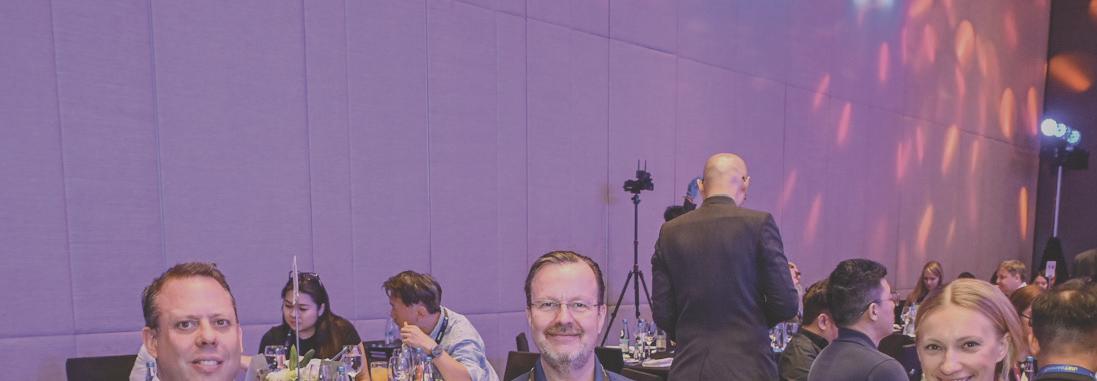




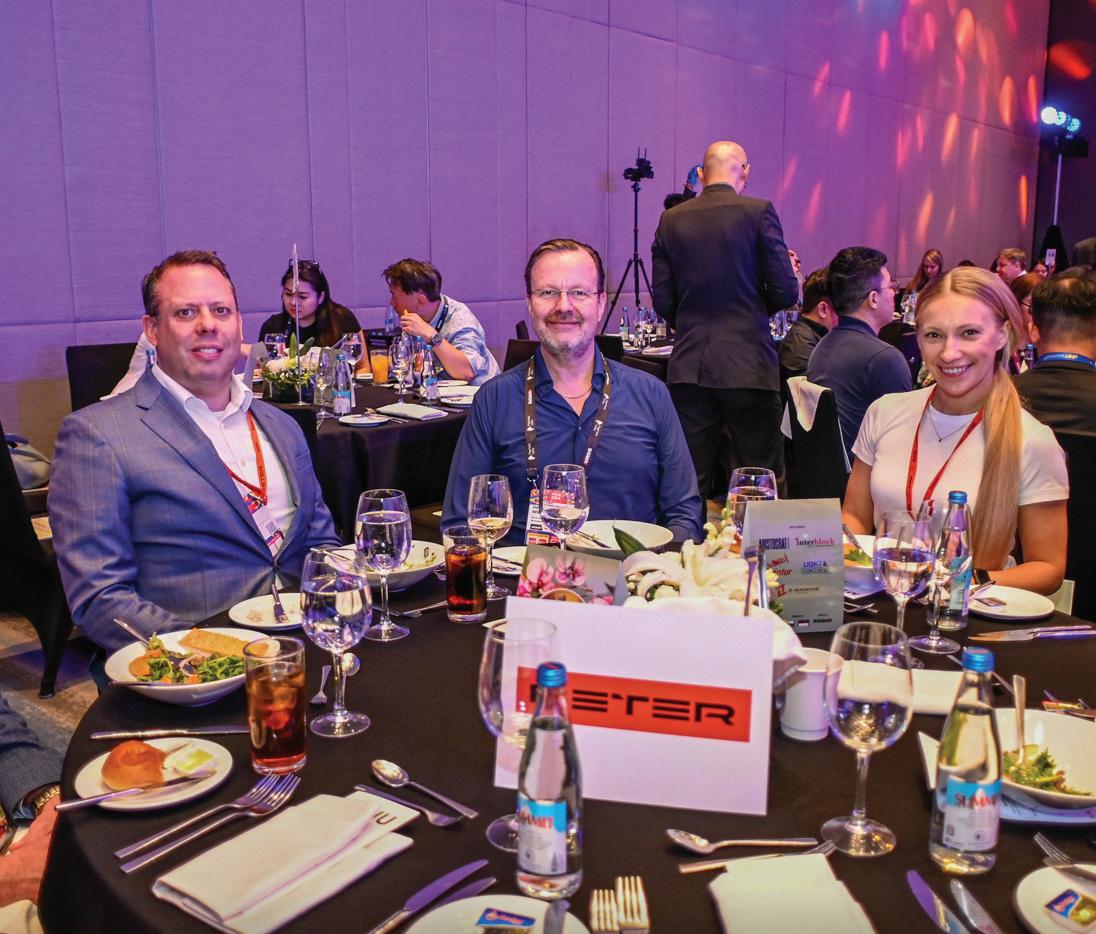






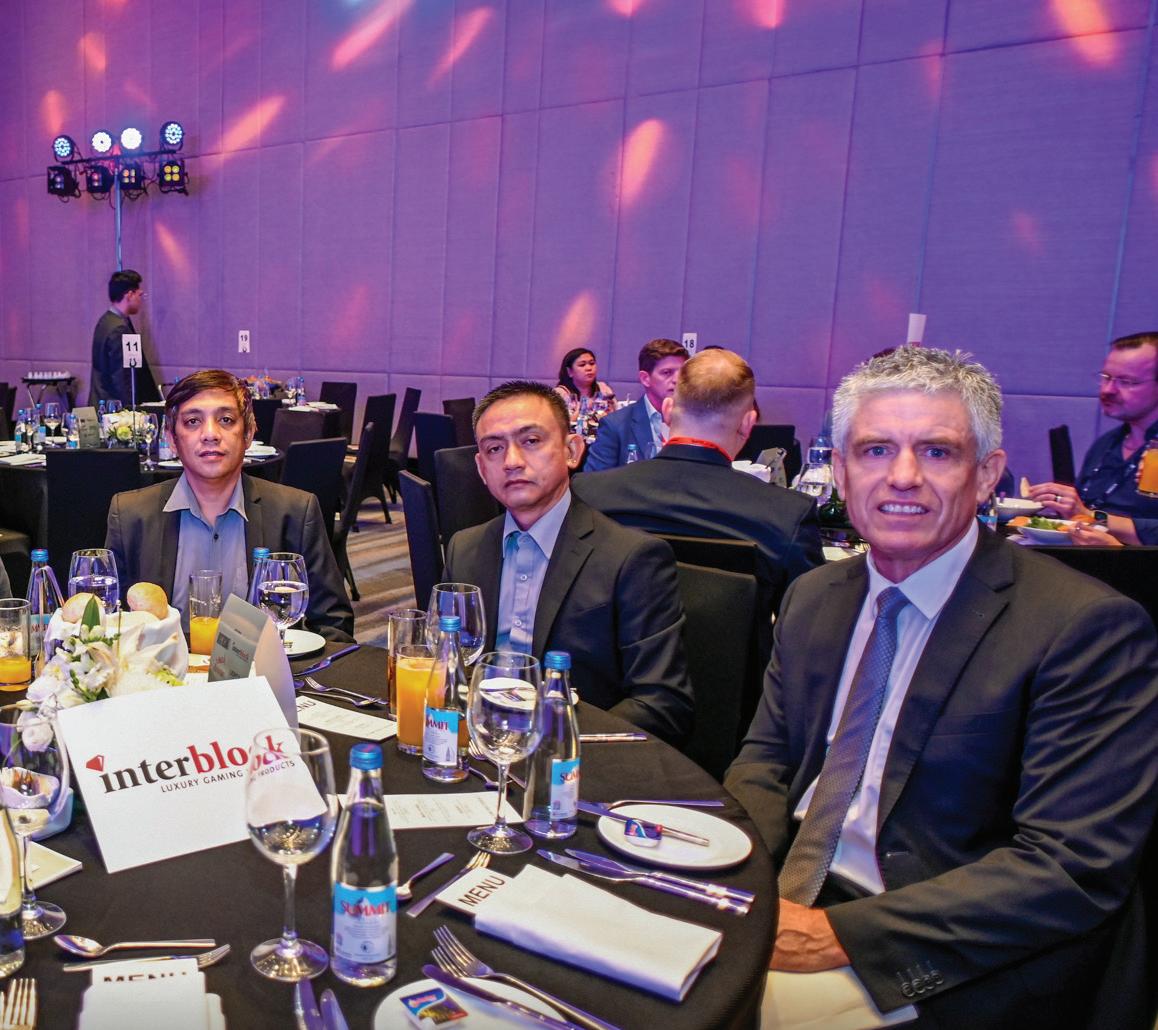
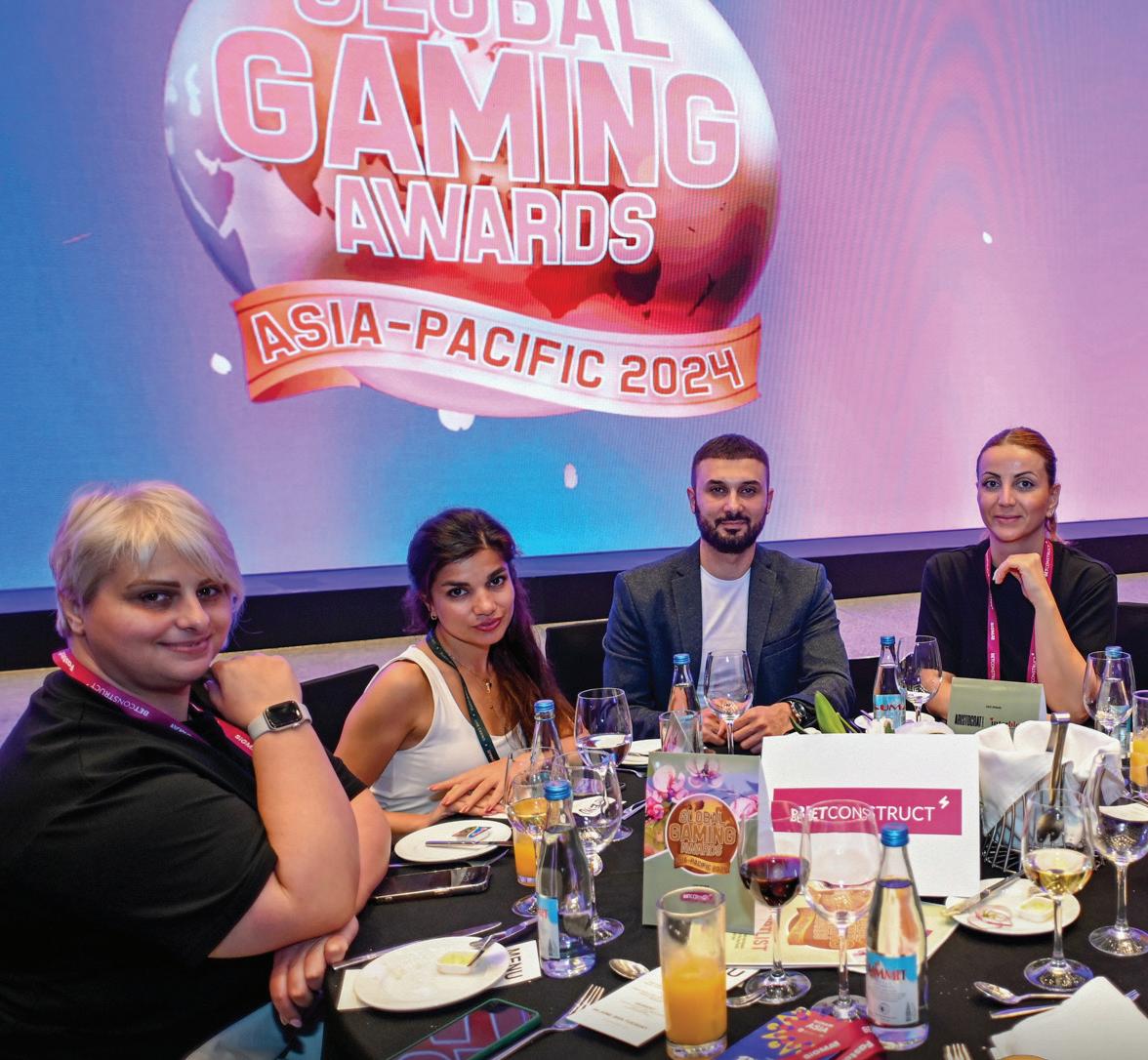

















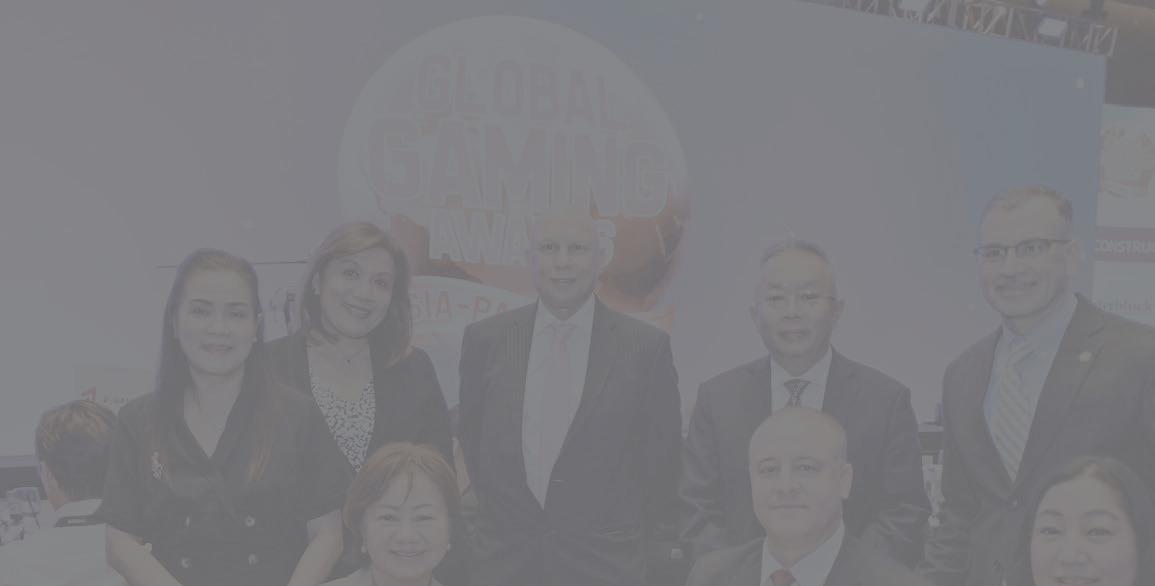




















































































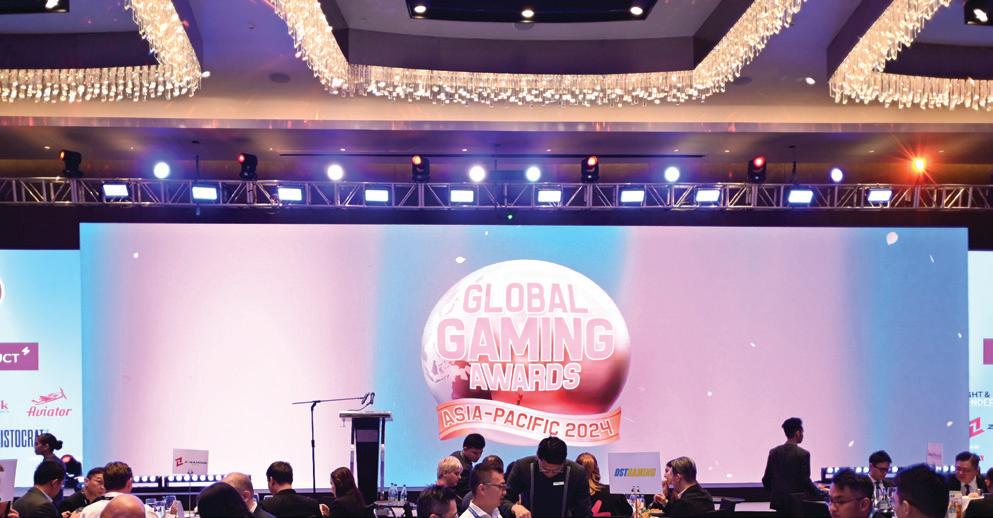


















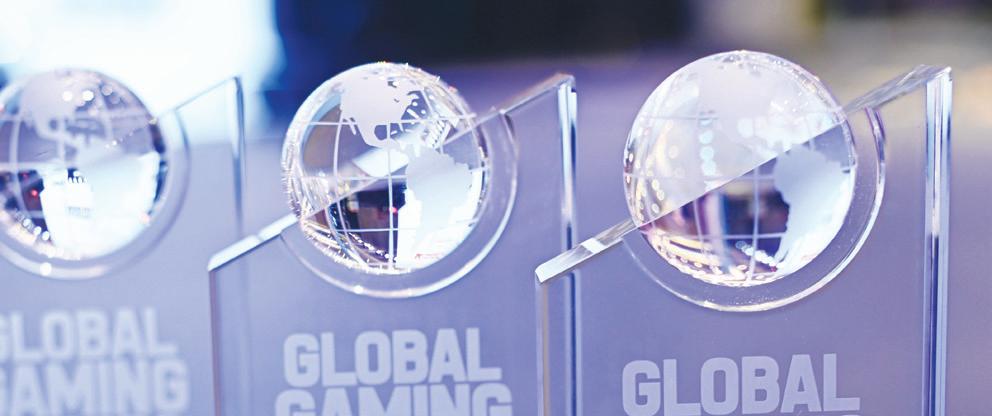










































































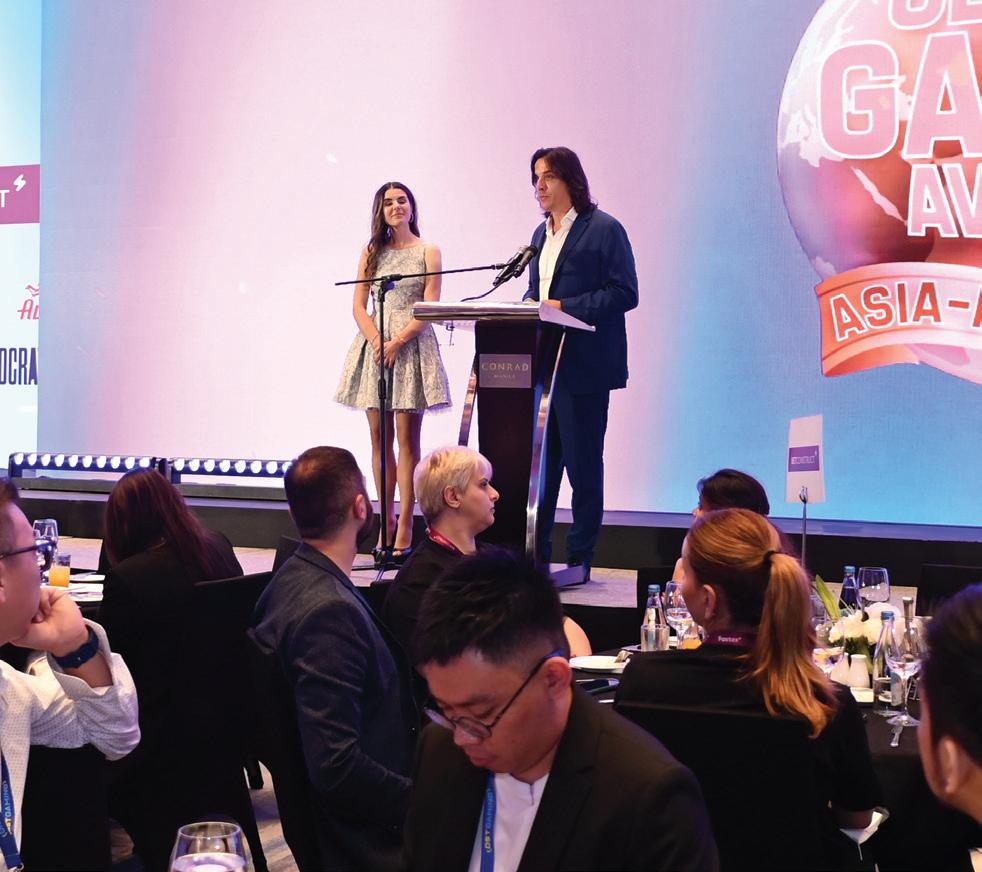





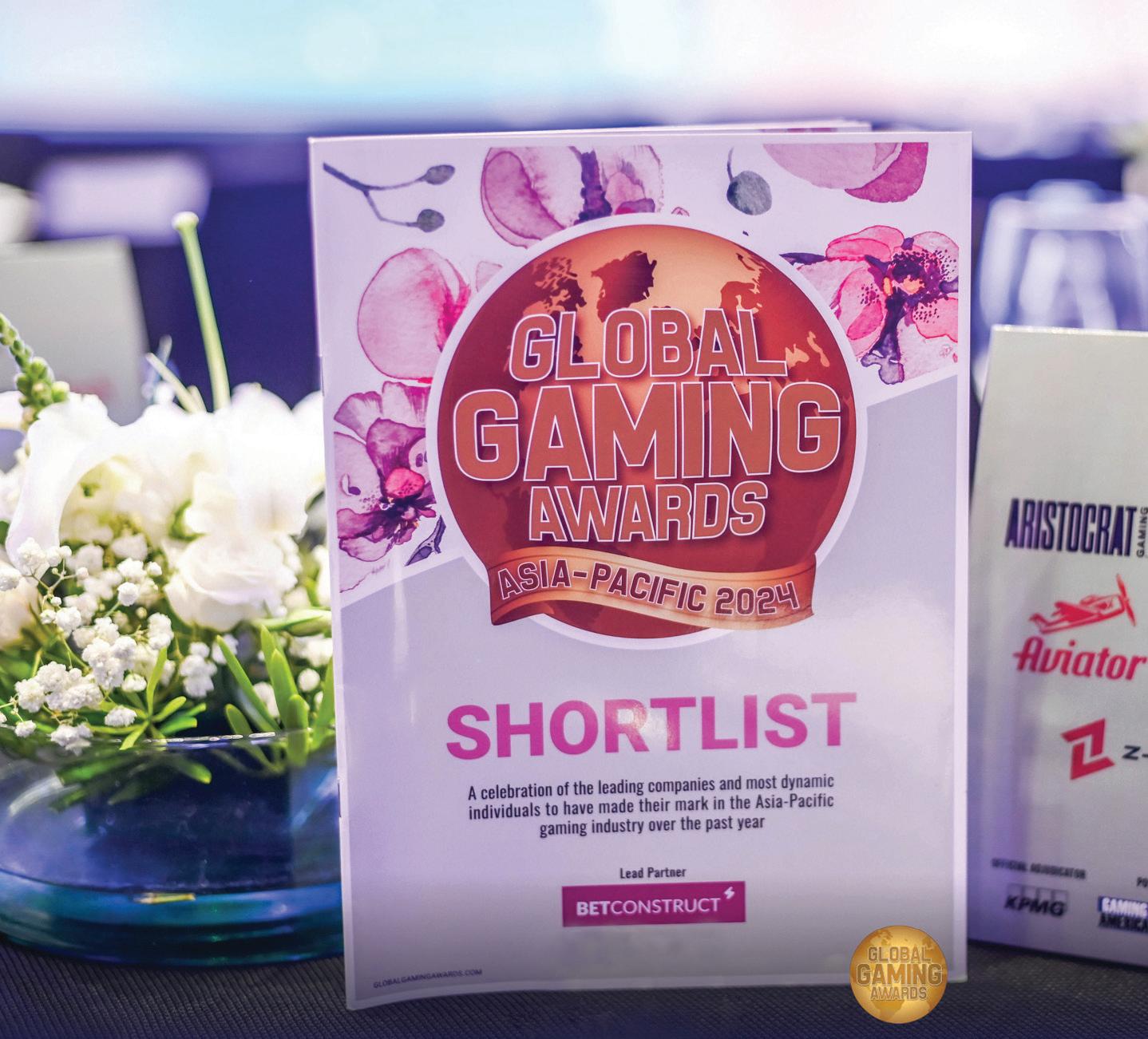











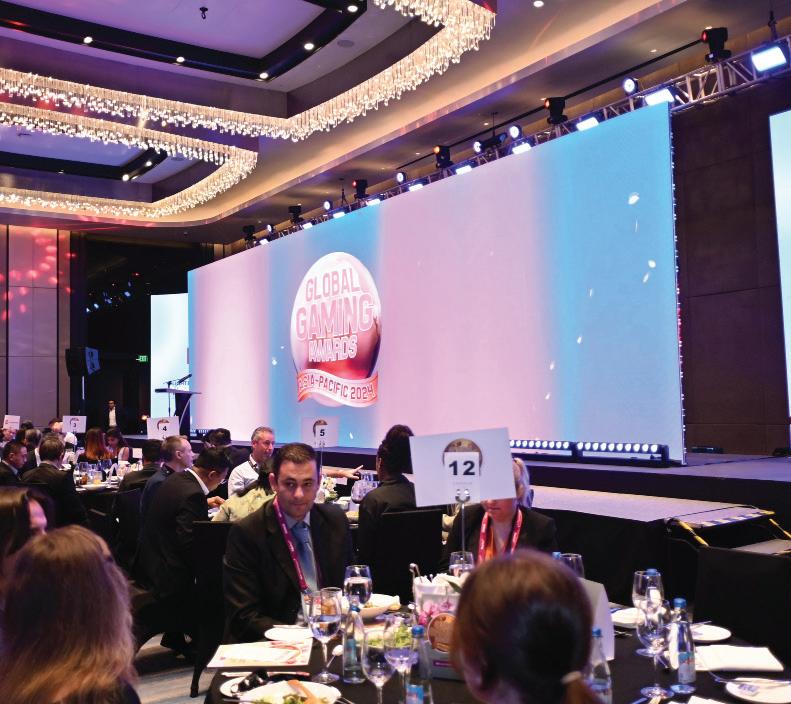

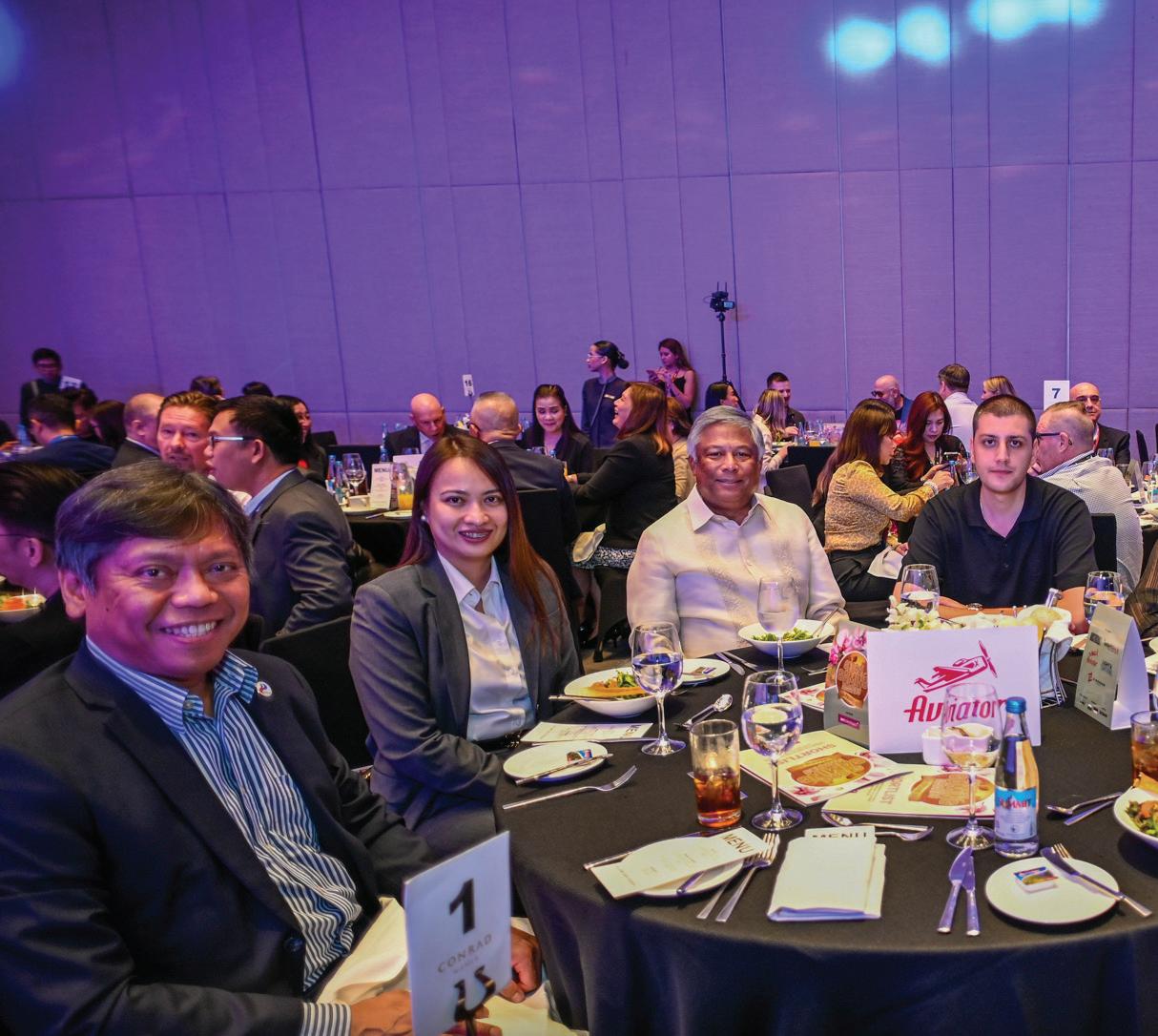

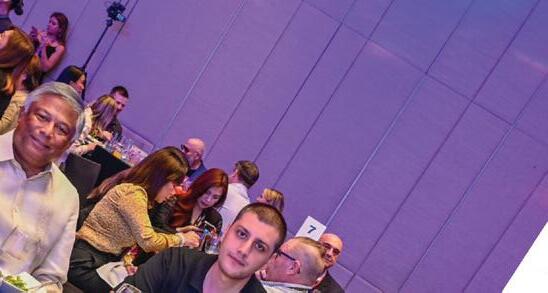
















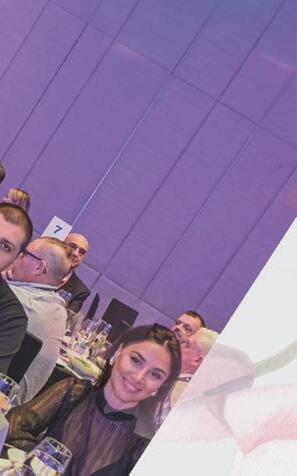














































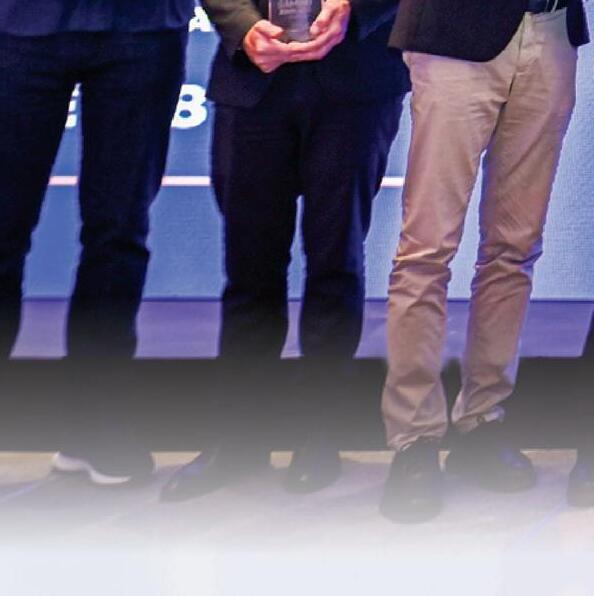









The winners of the Global Gaming Awards Asia-Pacific 2024 were unveiled at a luncheon ceremony during SiGMA Asia at Conrad Manila on Tuesday 4 June.



“Congratulations to this year’s winners and to all those who were shortlisted, because as we always say, nomination alone is still a fantastic achievement,” said Mariya Savova, Event Manager of the Global Gaming Awards.

“Thank you to everyone who attended and supported the Awards this year. Our event, dedicated to the APAC industry, was held virtually for the past two years, so to see it come to life at last was a huge milestone for the event.





“The Philippines is now the most dynamic and innovative gaming market in Asia with developments in both the landbased and online verticals, so it certainly was a great pleasure to have the Global Gaming Awards Asia-Pacific here in Manila on Day 1 of SiGMA Asia. We are humbled by the response we received from the industry here,” she added.























































































































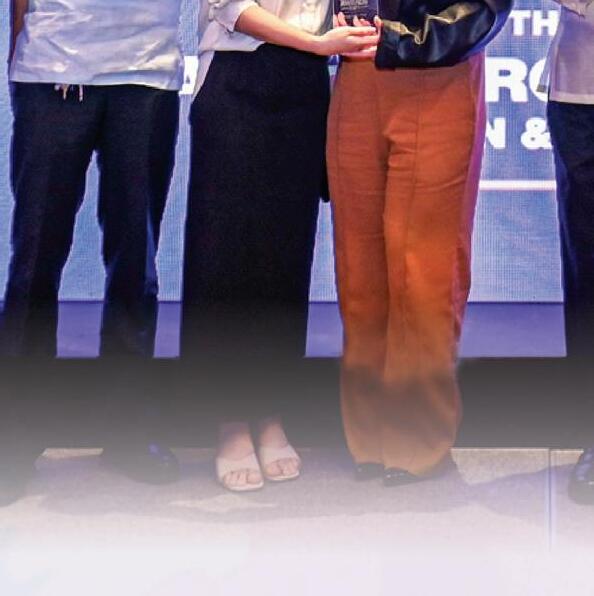






Lead Partner



























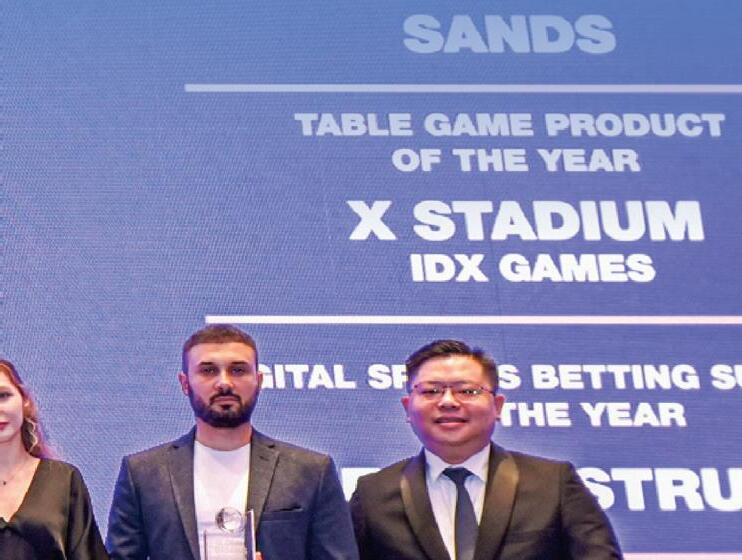



The Global Gaming Awards’ rst-ever in-person ceremony for Asia-Paci c was a huge success
With three events a year dedicated to the gaming industry in Asia-Pacific, Americas and EMEA respectively, the Global Gaming Awards are the most prestigious in the industry and are known for their strict shortlisting and voting procedures. Companies were shortlisted for the Global Gaming Awards Asia-Pacific 2024 on merit and for a specific reason which everyone can read in the Shortlist magazine. The final Shortlist was decided through extensive research by the Gambling Insider and Gaming America teams, consultation with independent industry experts and review of self-nominations, submitted by companies.
Over 30 senior industry executives, all with vast knowledge and years of experience in the Asia-Pacific region, were invited to choose the winners with KPMG in the Crown Dependencies independently adjudicating the voting process to ensure fairness and transparency.

Panel include Betty Zhao, Senior Vice President of International Operations at Aruze Gaming Global; Ken Jolly, VP and Managing Director, Asia at Light & Wonder; Jaclyn Wood, CEO of Global Players Network; Lucas Cai, Vice President of Gaming at Mohegan INSPIRE Entertainment Resort, to name a few.








Some of the people on this year’s Judging













Gambling Insider, Gaming America and the Global Gaming Awards would like to thank KPMG in the Crown Dependencies, the 35 industry executives that participated in this year’s Judging Panel, Eman Pulis, Emily Micallef and the SiGMA team for giving the Global Gaming Awards a home in Asia, the event’s Lead Partner - BetConstruct, and all other event sponsors - Interblock Gaming, Light & Wonder, SPRIBE, Z-Gaming and Aristocrat Gaming. You can find the full list of this year’s winners and runners-up across all 11 categories on the next page and you can re-watch the presentation ceremony on the official Global Gaming Awards website.




CASINO OPERATOR OF THE YEAR

Joint winners: Galaxy Entertainment Group & Bloomberry Resorts Corp
Runner-up: Sands
Third: Wynn Resorts Macau
CASINO SUPPLIER OF THE YEAR
Winner: Aristocrat Gaming
Third: IGT

CASINO PRODUCT OF THE YEAR
Winner: Aristocrat Gaming - Dragon Link
Runner-up: Light & WonderDuo Fu Duo Cai Grand
Third: Aruze Gaming GlobalMuso Curve-55 Cabinet
TABLE GAME PRODUCT OF THE YEAR

CORPORATE SOCIAL RESPONSIBILITY OF THE YEAR
Winner: Wynn Resorts
Runner-up: Sands
Third: Melco Resorts & Entertainment
EXECUTIVE OF THE YEAR

Runner-up: Light & Wonder
DIGITAL CASINO OPERATOR OF THE YEAR
Winner: Bet88
Runner-up: InPlay
Third: Solaire Online Casino
DIGITAL CASINO SUPPLIER OF THE YEAR
Winner: Pragmatic Play
Winner: IDX Games - X Stadium


Runner-up: Winn Tech
Third: CreedRoomz

Runner-up: Interblock Gaming – Smart Pit
Third: TCSJOHNHUXLEY –Blaze Money Wheel
DIGITAL SPORTS BETTING OPERATOR OF THE YEAR
Winner: 1xBet
Runner-up: Jade SportsBet
Third: PointsBet
DIGITAL SPORTS BETTING SUPPLIER OF THE YEAR
Winner: Alejandro H. Tengco, Chairman & CEO, PAGCOR
Runner-up: Hubert Wang, President & COO, MGM China
Joint third: Lloyd Robson, General Manager - Asia, Aristocrat Gaming & Joe Pisano, Founder & CEO, Jade Entertainment & Gaming Technologies

INTEGRATED RESORT OF THE YEAR
Winner: Marina Bay Sands
Runner-up: Galaxy Macau
Third: Mohegan INSPIRE
Entertainment Resort


Winner: BetConstruct

Runner-up: Sportradar Third: Digitain



















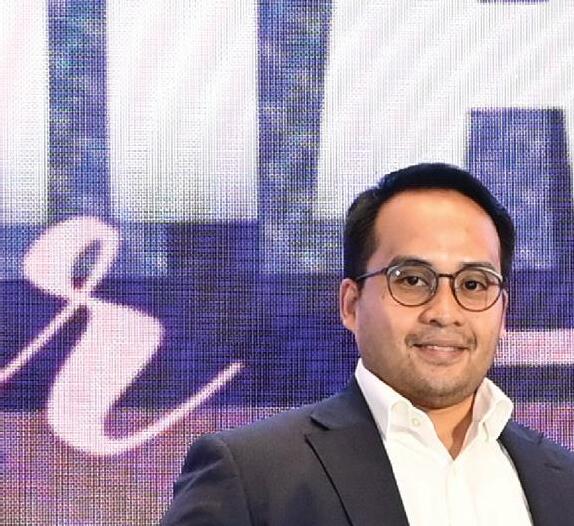




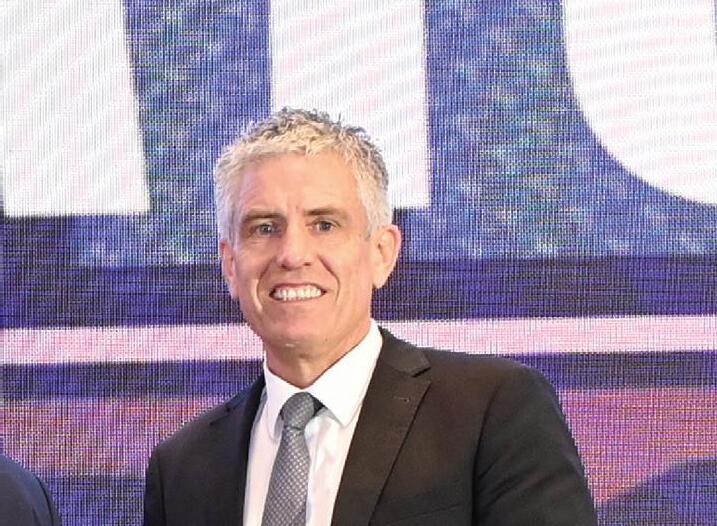


















Jason Barry, SVP - Table Games












“Fantastic - it's great recognition for us. It's something we're very proud of; obviously, we've been working very hard to bounce back after Covid-19 so it's great to be recognised in this manner by our peers.”











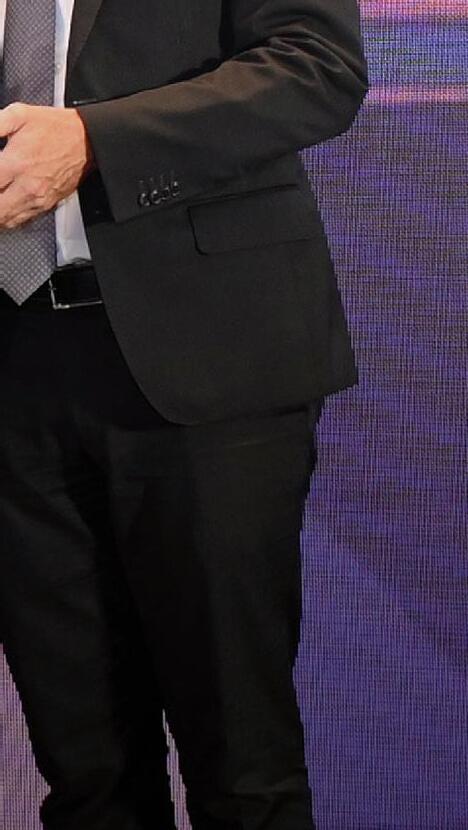




































































































































“We are grateful to be the recipient of the Integrated Resort of the Year Award. The Award represents a validation of the hard work of Marina Bay Sands’ more than 11,500 Team Members, who are dedicated to providing the best experiences to our guests. ”























Manager of APAC

“ Everything we do, we do for our customers, and we are humbled that the industry would recognise our dedication to our customers throughout the Asia-Pacific region.”










































































































































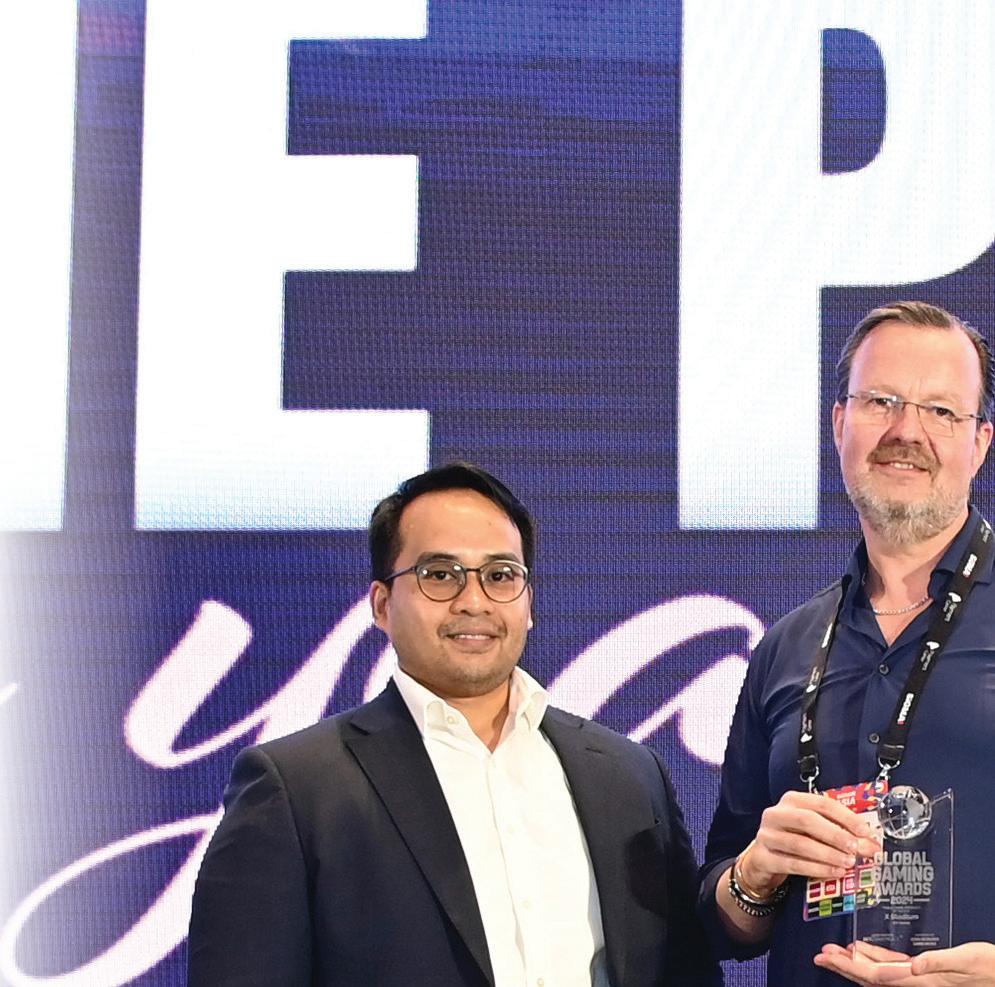
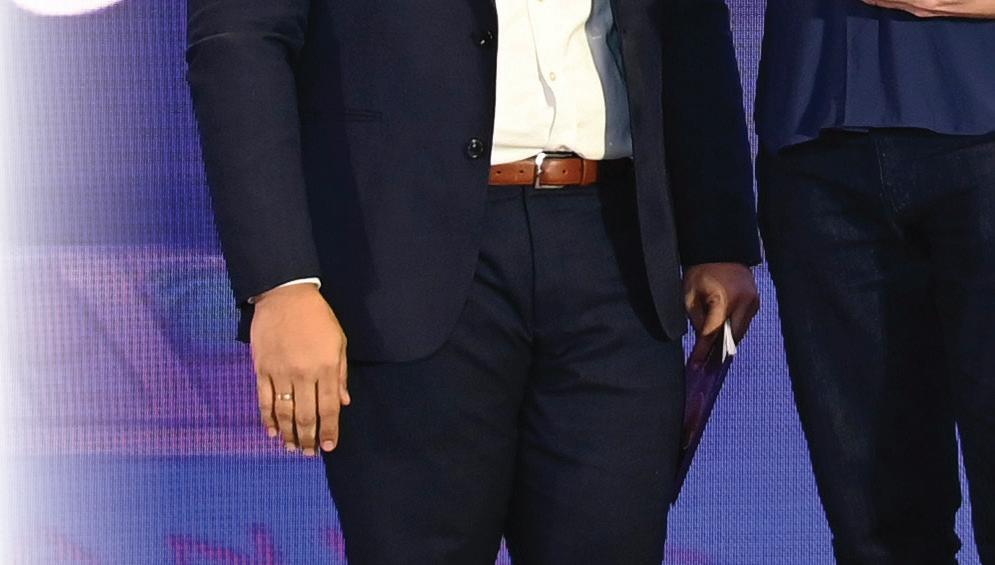

















Harmen Brenninkmeijer, MD NYCE International, on behalf of IDX Games
“ The team are going to be really proud. For all the work they've put in and for the size of the company compared to those they were up against, they are going to be proud to win this Award.”





















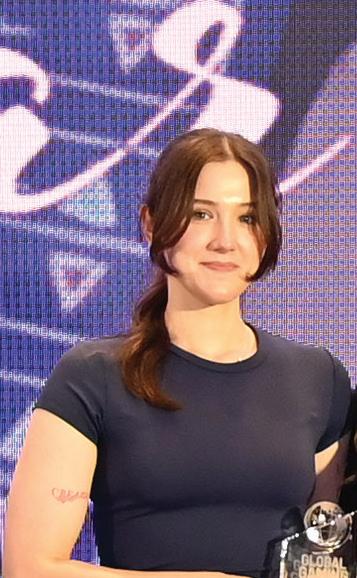

1xBet
Valeriia Makovska (left)




“ We are very grateful for such an honour. I think every competitor was deserving of the Award but we are very grateful to the Judges that they decided we were actually the best in the category. ”


























Atty Mario Vicente & Atty Miguel Victor Dela Fuente




“It's unexpected considering that we were up against big operators, especially here in the Philippines. It's testament to the work the management and team are doing.”

























of the year








“Thank you to the Global Gaming Awards for this prestigious Award on behalf of Pragmatic Play and we wish you more success in the future.”








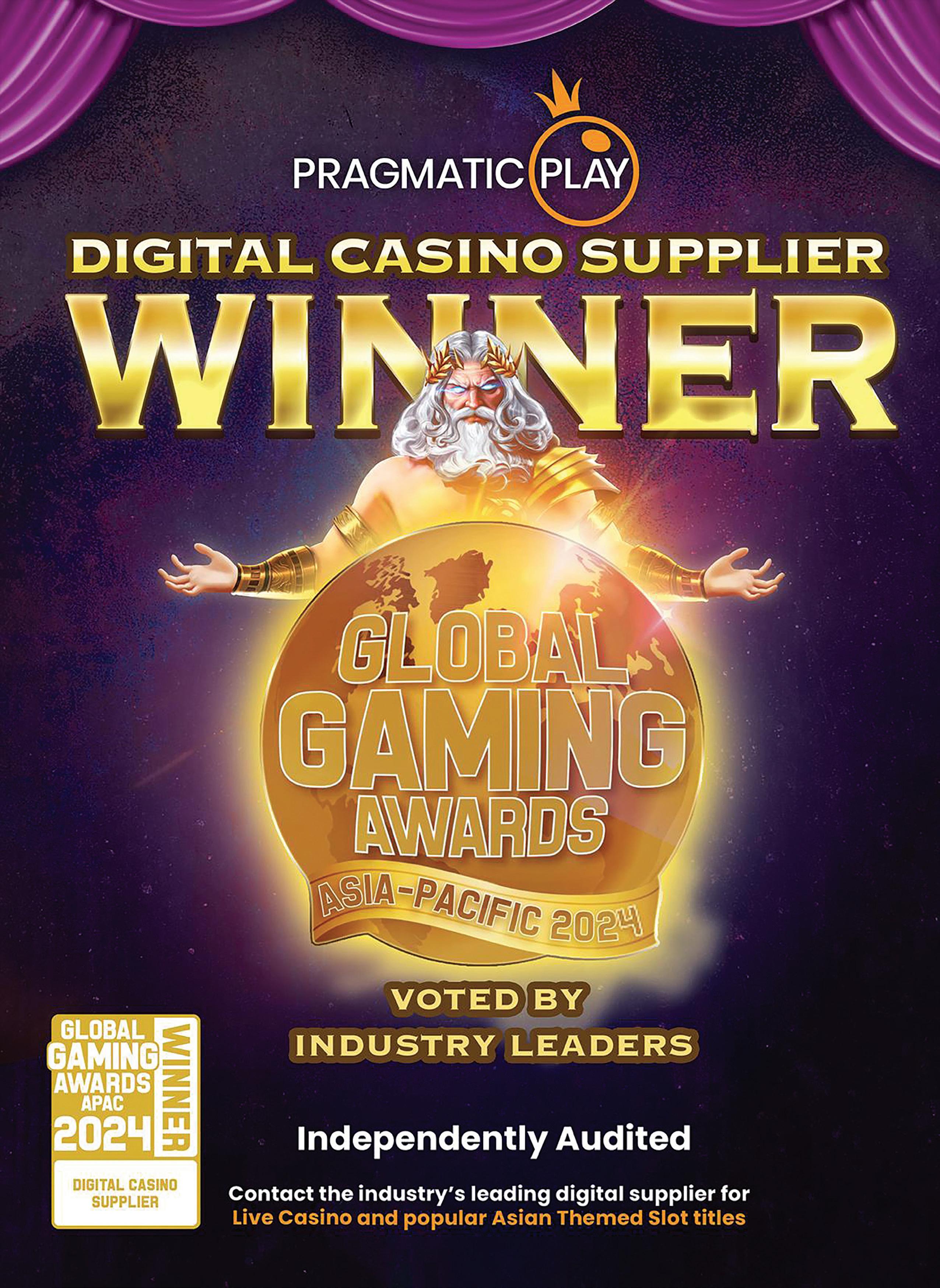

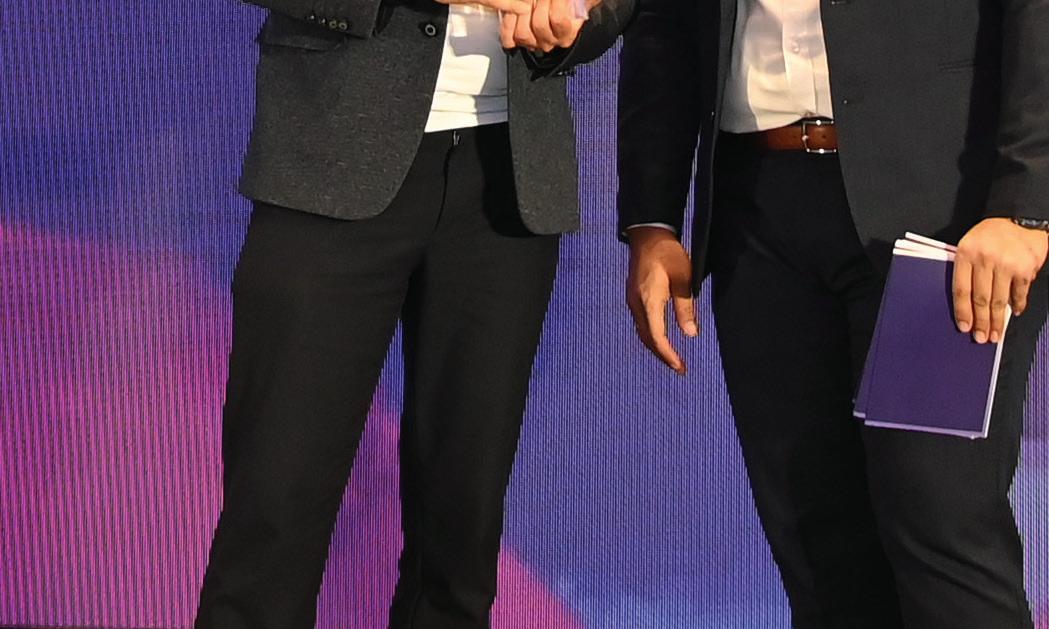












BetConstruct
“Amazing. We are very proud. BetConstruct brings new ideas and new innovations every year, so there are lots more suprises to wait for next year.”




























Joe Wong, Director of Casino Administration of Wynn Macau & Wynn Palace

“We are incredibly honoured to receive the Corporate Social Responsibility of the Year Award. This recognition is a testament to our unwavering commitment to making a positive impact in the communities where we operate and serve”







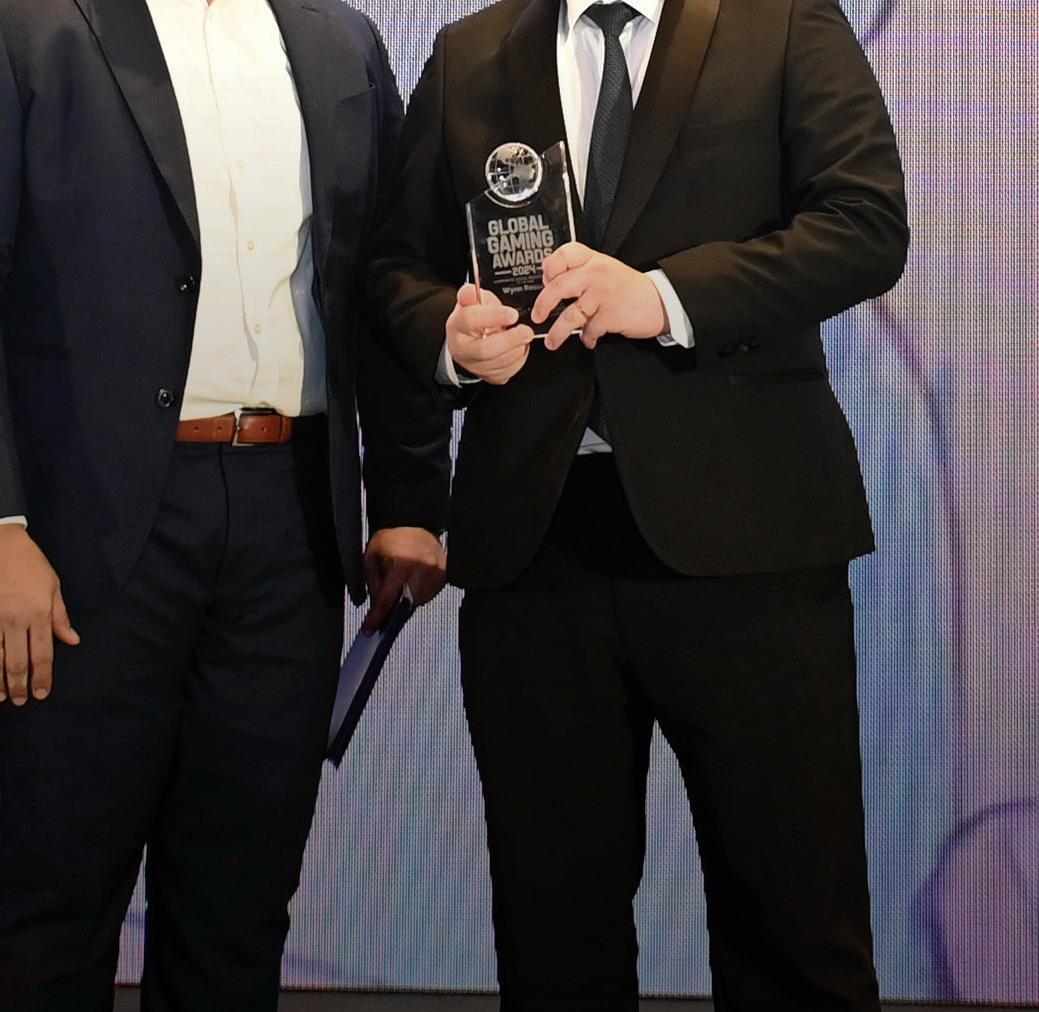

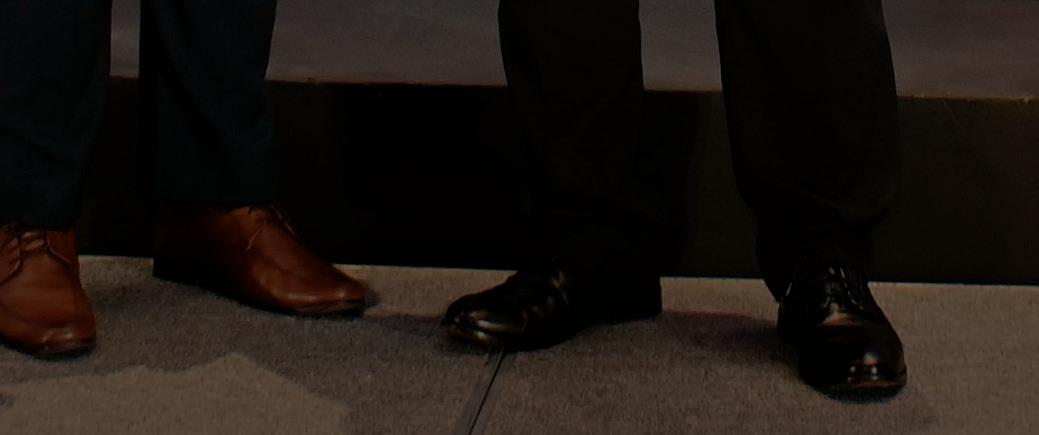


















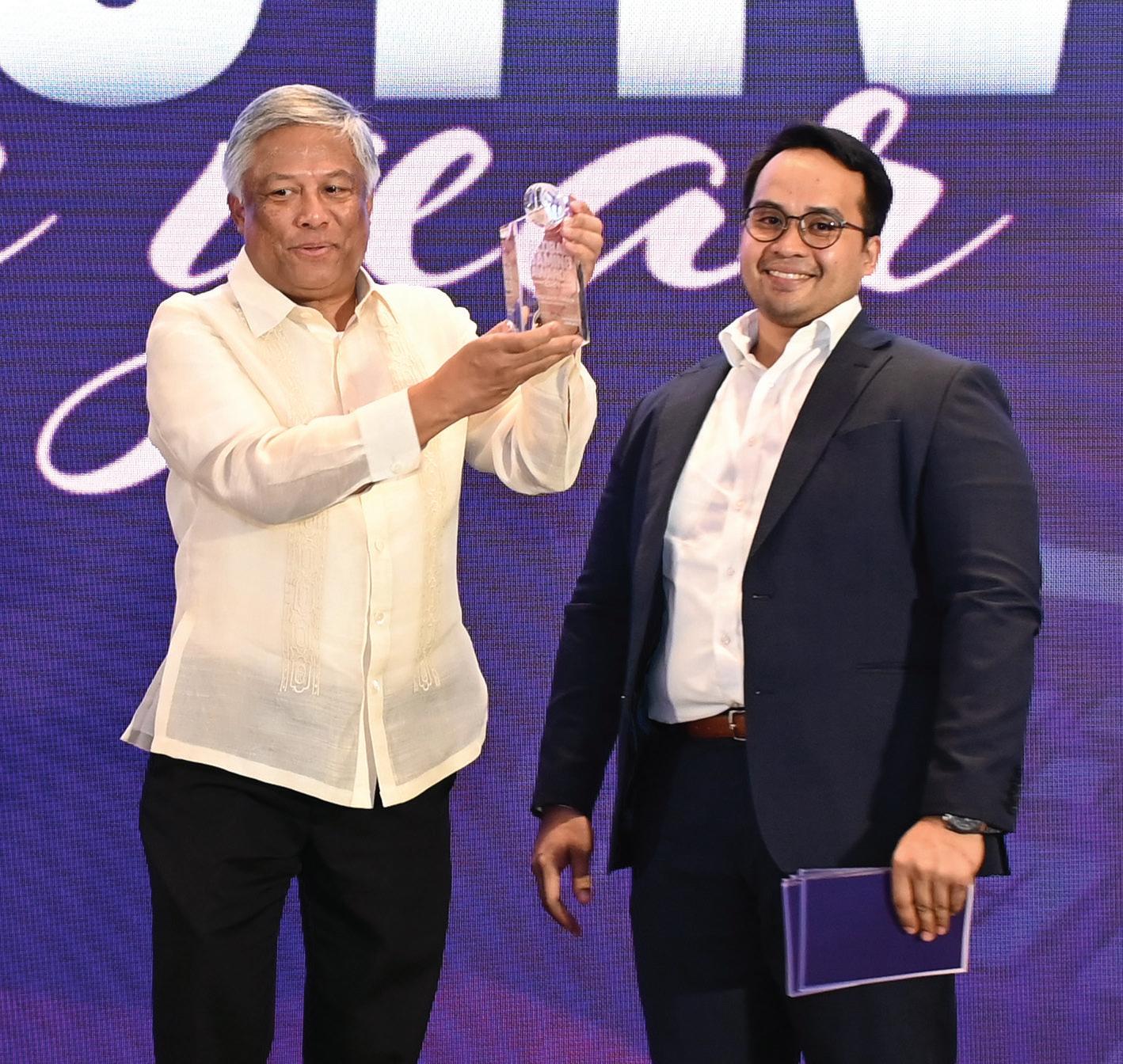










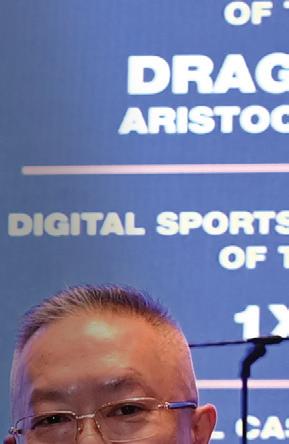













Alejandro H. Tengco, Chairman & CEO, PAGCOR








“ This Award inspires me to work harder so that our plans and aspirations for PAGCOR may become a reality during my tenure as Chairman and CEO. ”



























































































































































































































































































































































With insights from GR8 Tech, Greentube and the Oregon Lottery, Gambling Insider investigates the power of personalisation. Is the gambling industry falling behind?
Personalisation is a word that’s been thrown around the gaming industry for a few years now. As social media and the online landscape as a whole has begun harnessing the power of personalisation to keep users engaged for longer and longer periods, the question of when the gambling sector will do the same has been at the forefront of many a conversation. But what is personalisation, exactly? And more to the point, what does personalisation look like for online casinos and sportsbooks?
Personalisation (in a digital sense) has been around for almost as long as the internet itself. In 1994, Lou Montulli launched the first cookie on Netscape, designed to allow online shoppers to save their potential purchases in a sort of virtual shopping cart. However, the internet grew and technology advanced, and with the rise of the dot.com bubble and subsequent turn of the new millennium, the brands and brains in Silicon Valley began to see the value in personalised online experiences.
The difference between a pre and postpersonalised internet is best captured when comparing Web 1.0 and Web 2.0. We dug deeper into this topic in our March/April edition; but, in short, Web 1.0 was the pre-social media, 1990s era of the internet, while Web 2.0 reflects the internet of today, with its business conglomerates, social media platforms and hyper-personalised experiences made possible through user-generated content and the collection of personal data. In Web 1.0, everyone’s experience of the sites they visited were the same. Today, everyone’s experiences couldn’t be more different.
“Personalisation is a rather wide area within the gaming world,” Greentube Director of Games Production and Operations, Bernd Baumert, tells Gambling Insider , reflecting on early personalisation attempts in the market.
“This used to range from providing players with the choice of whether they want to use the gamble function or not, adjusting the volume of the game itself to personal preferences and adjusting the level of the 3D effect of the game. In iGaming, the focus is more on enhancing the experience of the player by catering to their individual preferences.”
Indeed, in translating land-based gaming to a virtual format, operators gained access to new tools and formats, allowing them to create products that were far less static
compared to their land-based counterparts. However, this also required operators to consider how best to adapt their product to an online environment.
As Oregon Lottery Senior Manager of Digital Marketing Shad Barnes explains to us: “While we can’t recreate the [land-based] experience on our website, we have done much to simulate or enhance the experience. While much comes in the form of added information (top prizes remaining, odds of winning, where to purchase specific titles, how to play walkthrough) we’ve also added the ability for our customers to ‘scratch’ a demo ticket online to experience the reveal process. When it comes to jackpot games, players can check to see if they’ve won manually on the website and by scanning a code via mobile application.
“Additionally, players can view the keno board in real time, request notifications when the jackpots or progressive pots rise to the amount where they like to play, view how many players in their state, city or county won prizes over $600, get tips on how and where to play, learn the odds and get directions on how to claim a prize.”
Of course, across all of gaming’s verticals, personalisation is still developing. But what does it bring to the table for operators?
sportsbooks and online casinos, will introduce new users with top-end deals. For the internet providers, that means a significantly lower price point for the contract period with freebie after freebie, while for sportsbooks and casinos, users can expect an enticing number of free bets and free spins, among other sign-up rewards.
But what about once that new user isn’t a ‘new user’ anymore? These users lose those perks and, suddenly, the deal they have isn’t all that good anymore. No matter how much haggling you do with the sales reps on the phone, the deals they can offer will never be as good as new customer offers. So, what is a customer to do? They go somewhere else, acquire their new customer deals, and the cycle repeats. Without personalisation, what reason do players have to stay after they reap their new user benefits? After all, they can have the same experience with you they can have with your competitor, only your competitor is offering them free spins. So there is certainly a retention element to the argument.
To understand just why online brand need
Now is also a good time to mention the importance of personalisation to one demographic in particular: Gen Z. The newest demographic entering the gaming market, Gen Z are people born at the

analogy we like to use (and apologies to any readers who have seen this before in the









To understand just why online brand need to personalise their user experiences, the analogy we like to use (and apologies to any readers who have seen this before in the May edition of an internet service provider. These services can only be personalised so much – beyond being tailored to your country and budget, options are rather limited. These service providers, much like


defined by being the first generation to not

remember a time before the internet. Social media and online business are second nature to them and, in that, they hold a set of expectations. Namely, that a personalised experience should be an absolute minimum. To provide to this generation is to utilise existing technologies to the best of your ability and be willing to take the leap with newer, more experimental technologies in order to stay ahead of the competition. That means utilising personalisation wherever possible, to keep up with trends of an industry now 30 years into the internet era.
As GR8 Tech Head of Sport Business Unit Igor Kaufman explains to us: “Gen Z has grown up with technology that offers tailored experiences and they expect the same level of customisation in all their interactions. Personalised content, recommendations and user interfaces can significantly enhance their engagement and satisfaction.”
While everyone will say something slightly different on when the industry first started talking about the need for personalisation, according to Kaufman: “The topic of personalisation began to gain traction in the sportsbook market in the early to mid-2010s,

“ The player should always be at the center of this whole exercise and any personalisation has to bring value to the player” – Greentube Director of Games
not just the gambling industry keying on to personalisation at this time, but industry at large. Personalisation offers a competitive edge, Kaufman says, altering the conventions of customer engagement.
So, we have the when and we have the why. Personalisation allows for better customer engagement and in turn more loyalty in a userbase, encouraging returning users by creating experiences tailored to them. But what does this look like in practice? For sportsbooks, Kaufman suggests: “Personalisation in sportsbooks works on multiple levels, catering to regional, national and individual user preferences. It’s about
line display options, etc. Plus, the platform needs to manage line display options easily and have an adaptable front-end. This combination allows for deep customisation, making the sportsbook feel unique and tailored not just to the operator’s brand but to each user.”

driven by advancements in technology and data analytics, which led to a better understanding and catering to individual user preferences. This shift was evident in many industries around the same time that began also leveraging data analytics and advanced algorithms to tailor experiences to individual customers.” It was




our experience with GR8 Sportsbook, this means having a robust backend with AI and ML tools, a recommendation engine, region-specific feeds, the ability to manage


Indeed, AI has been pointed to as a key tool from which personalisation in the gaming industry can develop. Baumert stated that AI “can play a significant role in iGaming,” explaining that “this might range from tailored game recommendations to individualise the look, feel and sound of the game itself.” However, he was clear to remind us that, amid all the speculation about the development of personalisation, “the player should always be at the centre of this whole exercise and any personalisation has to bring value to the player.”
from their play journey while also adding convenience or delights. Access to their




request notifications or email for the reminders or information they want at the times they want it, regionalised stories on how lottery dollars make an impact
Providing a perspective on personalised lottery play, Barnes comments: “I think a personalised online lottery is first and foremost a fluid user experience driven by both quantitative and qualitative feedback... To be specific, a good personalised online lottery allows users to remove friction from their play journey while also adding convenience or delights. Access to their wins and dollars spent, opportunities to request notifications or email for the reminders or information they want at the times they want it, regionalised stories on how lottery dollars make an impact in their state city/neighborhood, game favouriting and suggestions for games that match their play styles, an ability to interface at retail via app scan that saves time or paper, offers or promotions from their favorites brick and mortar retailers and much more. There is so much opportunity in this space for lotteries to incrementally improve the experience for their customers.”
Still, despite a degree of personalisation existing across online gaming and the growing potential of AI, in the eyes of some, we are still behind many other industries. In an interview we conducted with
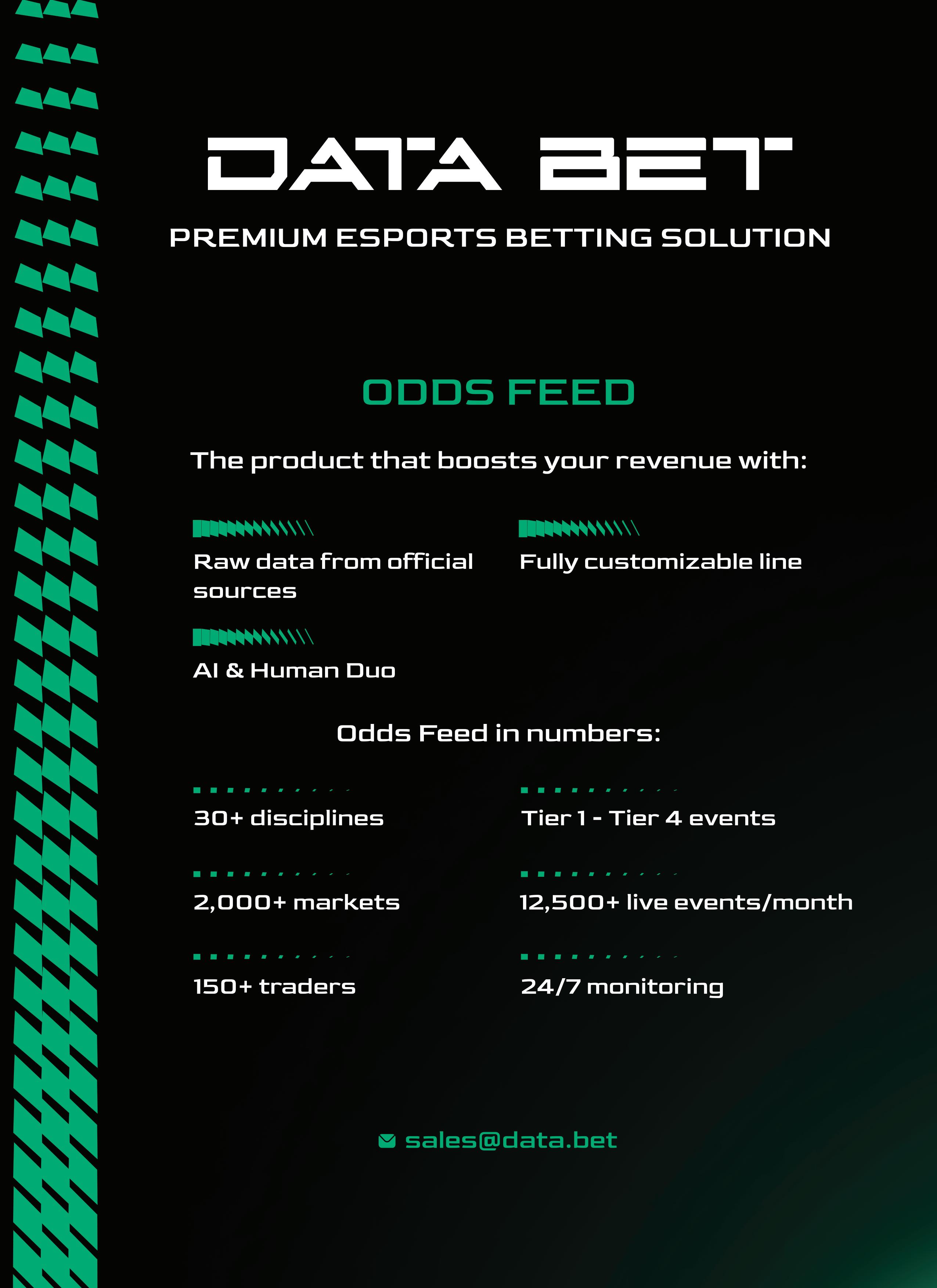
EveryMatrix CEO Ebbe Groes in March, he said he felt personalisation “would have come earlier.” While many have tried their hand at personalisation, “nobody has succeeded,” and in this viewpoint Groes is not at all alone. When we asked Barnes if he feels the current online lottery market matches the description he previously gave, he said: “The pandemic pushed nearly every lottery forward in the digital/personalisation space and the industry in general is trending forward in terms of improving digital service for their players/customers. That said, there is a significant gap between true ecommerce and how lotteries operate online.”
There are a multitude of factors impeding the growth of online lotteries in the US, Barnes suggests, including different policies, regulation, responsible gaming practices and technical philosophy. Some lotteries have even begun hiring non-vendor talent to create a roadmap for online adaption, using research and evaluations to decide how best to tackle online adaption. One factor that may be holding us back, Kaufman suggests, is data privacy. “Tailoring experiences hinges on the availability of user data and balancing user privacy with the need for data can be challenging,” he explained, with data protection a critical factor to consider when integrating personalisation into a platform.
Another factor to consider is the platform’s technical capabilities and the technology a platform has access to. Kaufman suggests that, as AI “evolves and becomes better at imitating human behaviour, the opportunities for creating customised experiences expand,” yet with this still a work in progress, AI does not yet hold a complete personalisation solution. It is also important not to rely on AI as the only solution – in any situation or scenario, placing all your eggs in one basket is unwise. To do this would put the gaming industry in an even more precarious situation than it is in now, and while it is industry appropriate, it is not a gamble businesses should take.
So, if the gaming industry wants to catch up, where can we turn for inspiration?
Kaufman suggests retail as a prime example of a highly personalised industry from which the gaming industry can learn, with “companies like Amazon using sophisticated recommendation engines to tailor product suggestions.” He also points to the entertainment industry, particularly streaming services like Netflix and Spotify, which “offer highly personalised content based on user preferences and behaviour.”
Baumert echoed similar ideas, saying: “In regard to customer segmentation, I believe that the streaming industry shows some
really good examples and iGaming can learn from e-commerce in general about recommendation engines.”
Looking at how other online businesses offer personalisation, both with and without AI, is crucial for the gambling industry to remain at a standard comparable to other industries. For example, consider the content algorithms used by Youtube and TikTok. These algorithms look at data such as what the creators watched, the time spent engaging with a piece of content and then compares this against other data from other creators to suggest content that users may similarly enjoy. In this, no person’s Youtube or TikTok feed is the same, becoming hyper-
them and manipulating it to fit the needs of users. In the case of online lotteries, for example, Barnes believes: “Most lotteries are government-run or sponsored across the world, so it is always paramount to reconcile the public good with any lottery infrastructure investment or endeavors. There just aren’t any true ‘apples to apples’ industries or even jurisdictions when it comes to lottery making economy of scale illusive.”
Barnes also noted how, due to lotteries’ direct connection to government, their flexibility in adding personalisation features is limited, being tied directly to the needs of lottery jurisdictions and their governments. lottery jurisdictions which leaves limited






room for responsive growth toward true personalisation. The industry is making progress, but it may always lag behind
the industries that can adapt in more agile ways.”
So, if an operator feels they are falling behind in their personalisation efforts, what can they do? Below are a few steps:
At the end of the day, innovation is all for nought if it is not something the customer wants. Adding AI systems and

extensive personalisation options may be beneficial to some player bases, but that may not be the case for everyone. Get an idea for your player demographics, see what other online platforms are popular among these demographics and get an understanding of the personalisation options these platforms offer.
In the days of Web 1.0, the internet was like the Wild West. With no status quo established for how a site should be run, creativity was high and, from that, the internet came to form the trends we see today. Taking this idea of Web 1.0 experimentation will allow a platform to stand out, drawing new users to it. Uniqueness is at the heart of why players are drawn to personalisation.
Diversification in hiring is a topic that is routinely brought up among recruiters; that in bringing in people from outside the gaming industry, they can learn from a completely new pool of knowledge, forcing businesses out of operating within an eco-chamber. To bring efficient personalisation to gaming platforms, consider hiring from other industries – ecommerce and streaming platforms, and other industries pointed to as ones the industry can turn to for inspiration – as a place to start. Overall, if an operator is to stand a chance of gaining users and then keeping them, personalisation is a must. Taking in a number of factors... personalisation will be as unique to operators as it is to players. Why go for ‘same old,’ when you can have tailor-made?
“ Gen Z has grown up with technology that offers tailored experiences and they expect the same level of customisation in all their interactions ”
- GR8 Tech Head of Sport Business Unit Igor Kaufman



















Danny Fok, VP of Strategic Projects at Sportradar, speaks all about the supplier’s deal with the Taiwan Lottery, in conversation with Gambling Insider Editor Tim Poole at SiGMA Manila
A good place to start would be if you could give us an overview of the partnership deal and then go on to discuss how much planning and preparation it took.
Sure. I can say that the Taiwan Sports Lottery is a fantastic project and is also a significant corporate milestone for us. In regards to the timeline, if you’re talking about planning work, we had a dedicated team set up around three years ago before we got the contract awarded by the Taiwanese Government. As for the preparations, I think it was important that
we had a few different teams to evaluate this collaboration and get an in-depth understanding of how the Taiwanese and wider Asian markets operated. Then, of course, the next step was to look at parliament and figure out the regulatory requirements, which was very important when it came to the planning stage. All in all, I think we allocated resources effectively during this time. We had a very good routine that got the job done.
So in terms of the the Taiwan market, you said you needed expertise and knowledge
of the market. Could you give our readers and viewers a breakdown of how that market works in Taiwan, such as sports betting and the lottery?
First of all, the Taiwan Sports Lottery is the only government-authorised sports lottery company operating at this time. It works quite similar to those in South Korea, Singapore and Hong Kong, although they have only one betting operator. However, I think the main difference is that the offerings are quite different; In Taiwan, they offer 16 types of sports compared
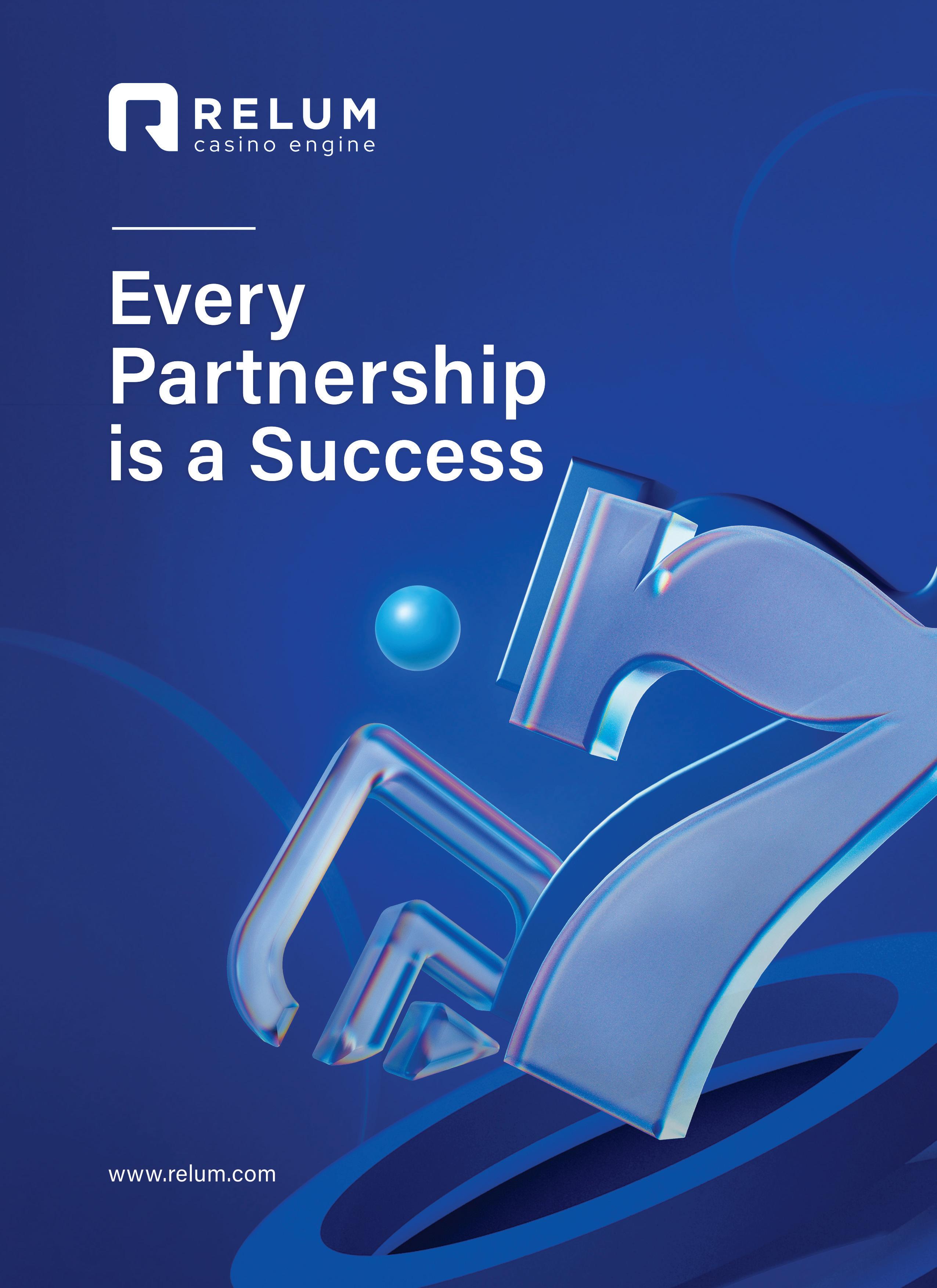
to only one market in Hong Kong with soccer, while Singapore has soccer plus F1. So it’s quite different when they start doing expansions and projects across the different markets. Also, they have a turnover of around 10%-12%, so they need to contribute to the Sport Development Fund. That’s something we think is fantastic, right? When you have this fund to support the local companies and communities. In terms of the set-up, the retailers also have the franchise model, which has been established for a time.
You mentioned that Taiwan offers 16 sports and I imagine football is still quite popular, but which sports generate the most turnover?
People in Taiwan love watching lots of different sports, but especially baseball, basketball and football. I think they do quite well in the World Cup too, and while there’s not a great following for them, I think the trend is changing because you have more offerings with betting. I think the people will follow this as the market continues to grow.
What have been the biggest challenges you guys have faced in this partnership? You mentioned the number of terminals you manage and is that part of it?
We can offer a great experience working with small lotteries right now. I think we have around ten small operators in the group, including those from Hong Kong, South Korea, Singapore,

Danny Fok
Norway and Finland, as well as a service across 2,600 outlets. So I think we really understand the different challenges around things like that, but it’s also very important to us to spend time learning and understanding the aspects of an operation to make it a success. I am very, very happy with the team.
In terms of now and the next steps going forward, what are the kind of biggest day-to-day jobs and activities for you in the partnership?
The partnership is hitting its 10-year mark, if we look back to the very origins of it. But right now, we have a few different things that we’re focusing on. I think it’s very important to enhance operational efficiency and this is something we’re working on now.
Meanwhile, on the end-user side, we’re looking at three different aspects which we hope to focus on more after this partnership is more settled. The first is sports betting, the second is looking at adding more to our betting products and the third relates to the overall system, such as the banking and play management system. We’ve managed to train the system to match data with the audio-visual elements of a streaming service, so we really think this strategy will help to attract more users as well, and in terms of future goals, achieve further targets within the 10 years,
Have you got anything planned for these future targets? Or is it about slowly building on everything you’ve already mentioned?
Yeah, I think it’s about planning 10 years into the future, especially with the innovative technology we’re seeing nowadays. We have two goals we really want to achieve. The first is matching the innovative technology with the full range of our betting service,which should improve the user experience. The second is to help and support local developments, such as athletes and local communities.









































How do you stand out in the market?
The SlotsMaker slogan is ‘build your dream brand,’ so we actually build the brand for our clients and partners; we build a slot game brand. Whenever you need a brand for yourself, you can come to us, and we can build it for you based on your requirements, your target market or target players, we can do it for you. All you need to do is just tell us and we will research everything from scratch. Starting from research to game graphics to animation developments, we cover everything and also maintain everything. We will do it for you.
It sounds very tailored and personalised for each business.
Yeah. So, if you check out our growth you’ll see four different brands we’ve developed for our clients, including Live22, EpicWin, UU Slots and KK Gaming. You won’t find any repeated games between the brands.
And do you mainly develop online slots?
Are you handling any sports betting or poker products, for example?
We’re not developing any sports or poker products yet, but actually, it can be relevant because the concepts and games are entirely dependent on our client’s requirements. There’s
a big focus on Southeast Asia, where slots are the most popular vertical. Although, we don’t stop at the slots, we can also build retention tools based on their market or players.
So you’ve got all these bigger companies that will have well-known products, but they’ll have the same for every client. You build everything specifically for the client and that’s your selling point. In terms of geographical markets, where do you see your biggest business coming from? For SlotsMaker, our clients are mostly from Southeast Asia: Thailand, Indonesia, Malaysia and even Australia. But if you’re talking about the brands that we’ve developed, the biggest market for them totally depends on the business partner. For example, we built EpicWin for our partner, who pushed it to the Indonesian and Philippine markets, so they have the biggest player group over there. While UU Slots, they pushed this to Australia and Hong Kong, so they have the biggest market over there.
You’re doing a lot for the customer, so what are some of the biggest challenges with this approach? I think the biggest challenge is the
customisation, but that’s what we do best. First of all, we have to cater for different markets and different brands, all of which have different requirements. So, for example, if a business partner comes to us and says, ‘Hey, I want to do something different than anything that’s very common in the market, but also better in style.’ We would say ‘okay, why don’t we do a player versus player slot?’ There’s a feature like this in Live22 andthat’s what we built specifically for them –no other brands have it.
Looking forward to future goals, what is SlotsMaker looking to achieve in the next few years?
Our future goal is actually to give our partners a sense of belonging and significance, to build and achieve the dreams with our partners together. We have a lot of friends coming to us and saying, ‘Hey, why don’t you build a brand?’ and we say yes. Hopefully, in three years’ time we can help big partners build their own brands, so they can have their own websites and hopefully can cover the global market. Because, at the moment, we are still in Southeast Asia, so hopefully we can expand to covering the global market.



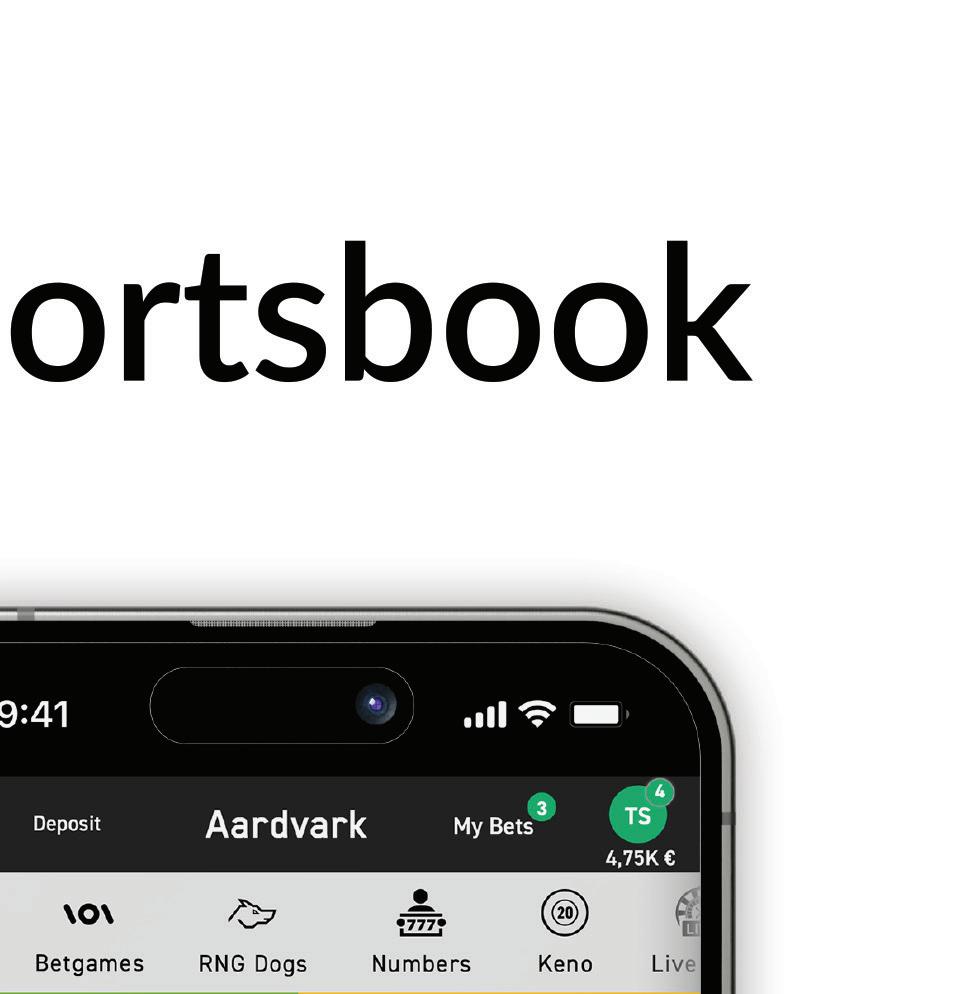
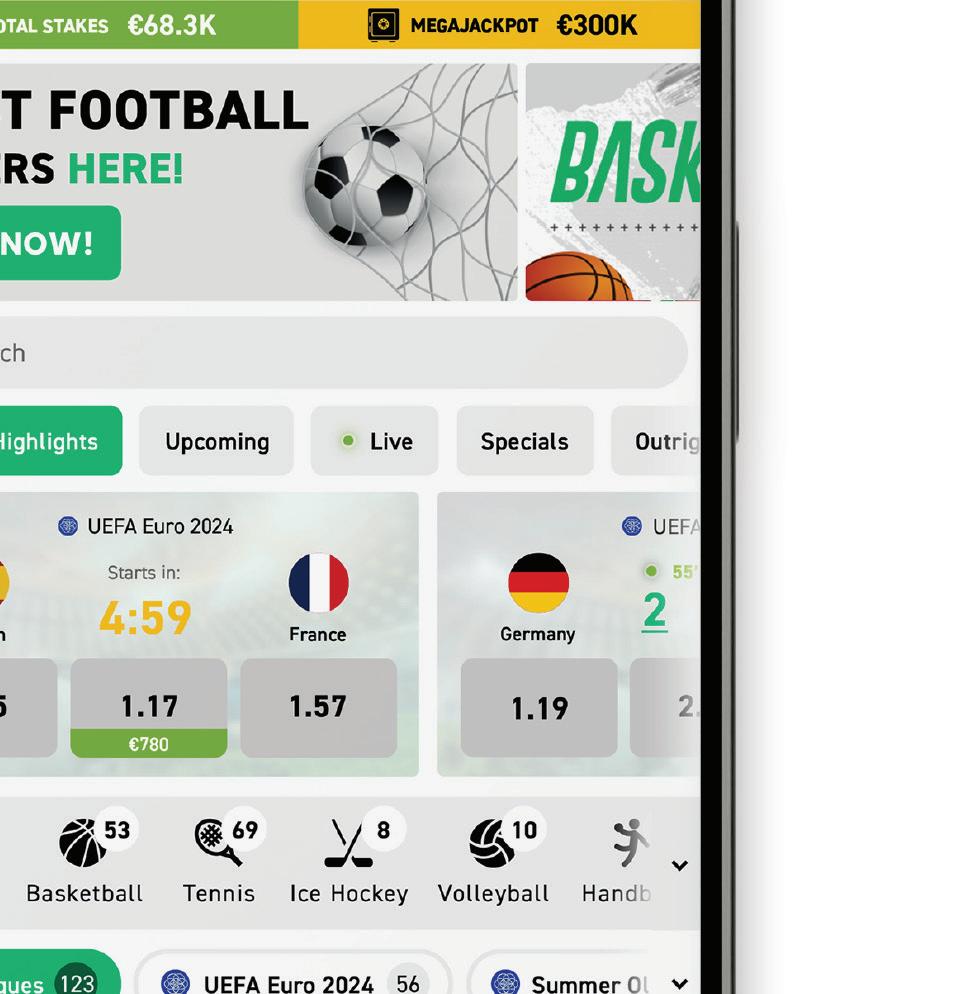
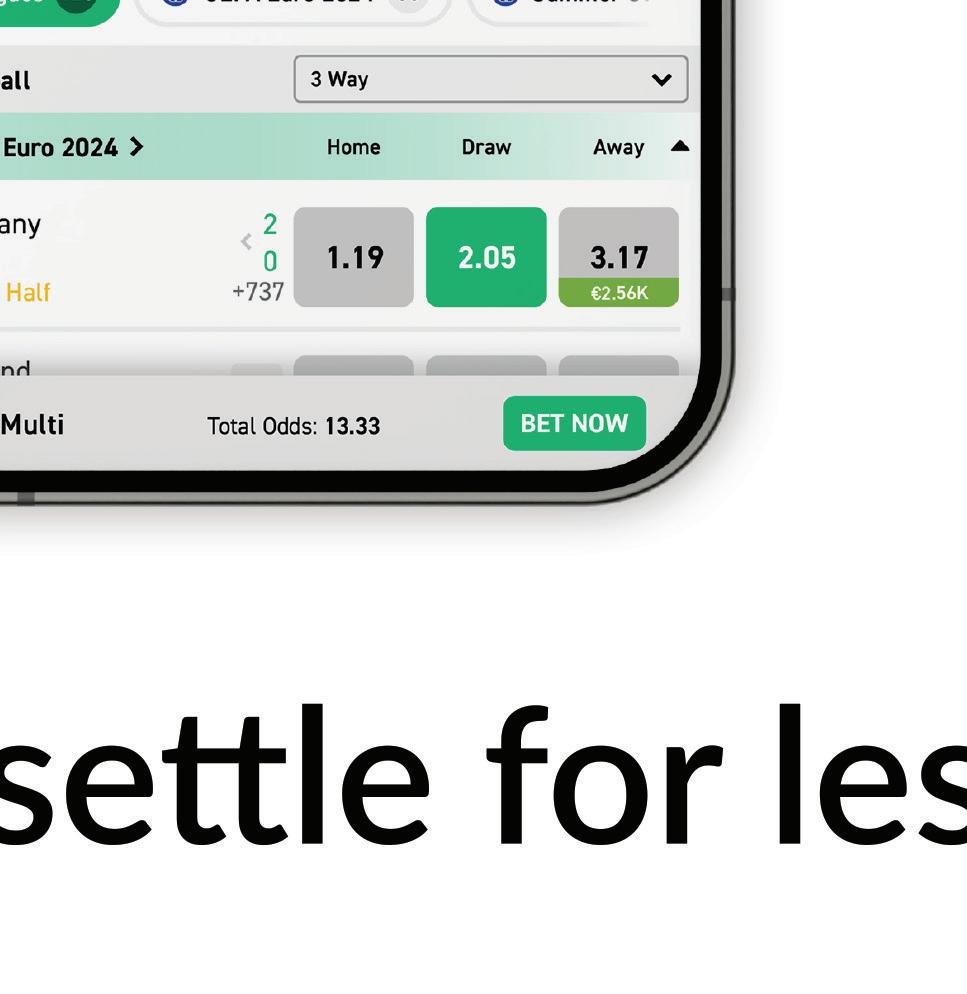



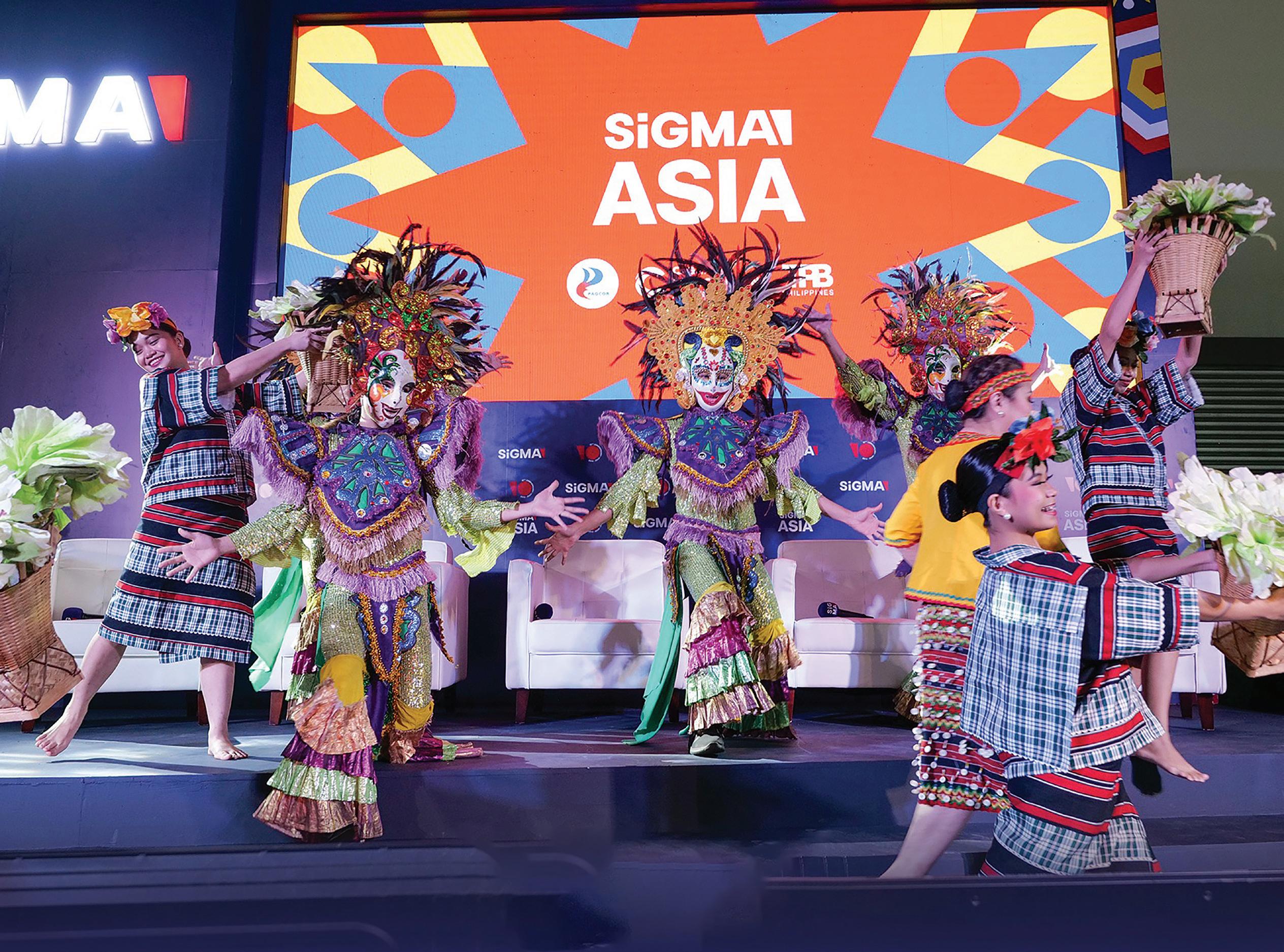
Gambling Insider takes a look back at various conference panels from the SiGMA Asia Summit in Manila 2024. What did we learn?
Gambling Insider attended several panels during SiGMA Manila 2024, with one of the most thought-provoking coming from Jane Thomason, Emeritus Chair of World Metaverse Council. This focused on how several studies have looked into the positive effects gaming can have on an individual, especially games that foster creative projects and teamwork with others. These can include activities that involve using collaborative and group skills to solve tasks or puzzles, or strategies to overcome a wider narrative. This sense of gamification has been widely
adopted by education and business courses to improve team building between students or colleagues, as well as ease feelings of stress and anxiety.
However, there’s no easy way to translate this over to gambling content, no matter how much you describe slots and arcade titles as ‘games.’ Even though they may share some similar aspects as traditional video games, the fundamental mechanics are different; people don’t need to risk money continuously to keep playing video games. Most video games are a single purchase, or a monthly subscription, but do not operate on a ‘pay per play’ system like casino ones do. Not only that, but many developers are careful to balance out the
harmful effects of video games alongside the positive ones. There’s just a little extra that needs to be accounted for when it comes to gambling. This can include transparency with potentially addictive game mechanics, accessible education and protecting vulnerable people; most of which are still ethical decisions on the developer’s part rather than distinct laws. Nonetheless, as the iGaming space continues to grow and expand, it’s certainly a topic that shouldn’t be shied away from. Instead, panels like this can be used to discuss how the gaming industry has navigated this particular issue ahead of us and what we can learn from it going forward. Even if the research into video games can’t be directly applied to casino-style games,
there’s still a wealth of information that should be embraced and analysed, rather than ignored.
The next panel we attended was called ‘Decoding Online Marketing Trends in Asia’ with Mikhail Jon Penalosa, Marketing Director of Saakuru Labs, Gerry Go, Founder & CEO at MagniViral 360 Performance Branding, Karl von Brockdorff, Head of Brand at Wicked Games and Richard Mifsud, Xprizo CEO. They discussed the roles of social media influencers in traditional marketing and how this could be reflected in the gambling industry, along with the importance of localisation for each region. Of course, using influencers is nothing new. Almost every industry under the sun has realised the importance of reaching an audience in the more organic manner that influencers allow for. They will often build a parasocial relationship with their audience and discuss things with them as if they were real friends, which makes their place in marketing vital. If an influencer recommends something to their audience, it feels like it’s coming from someone they trust. However, there’s one thing even more important than being able to use any old influencer, and that’s being able to use a relevant one. That’s where localisation comes in. Even though every product wants to have a localised market in mind, this is even more important when you consider which ambassadors and affiliates could be used alongside them. There’s no point in using a Scottish football player to promote Teen Patti if the Asian audience won’t resonate with him. In a sense, this panel emphasised how knowing your audience is one of the most important aspects of the creation process. They discussed how it’s better to develop meaningful products that will resonate with a particular audience, rather than creating a product and trying to match it with a group afterwards.
On the topic of specific regions, a panel on Southeast Asia discussed some of the biggest challenges these markets are facing. This comes after a wave of big announcements from this region so far this year, including talks on opening a new casino in Thailand, a multiple-entry visa being agreed on between Hengqin and Macau, Malaysia denying reports of a second casino being built and, of course, plans for an Osaka casino in Japan. While there is a growing interest in these markets, government regulations are still a major factor (or perhaps hurdle) when it comes to expanding the industry further than it already is today.
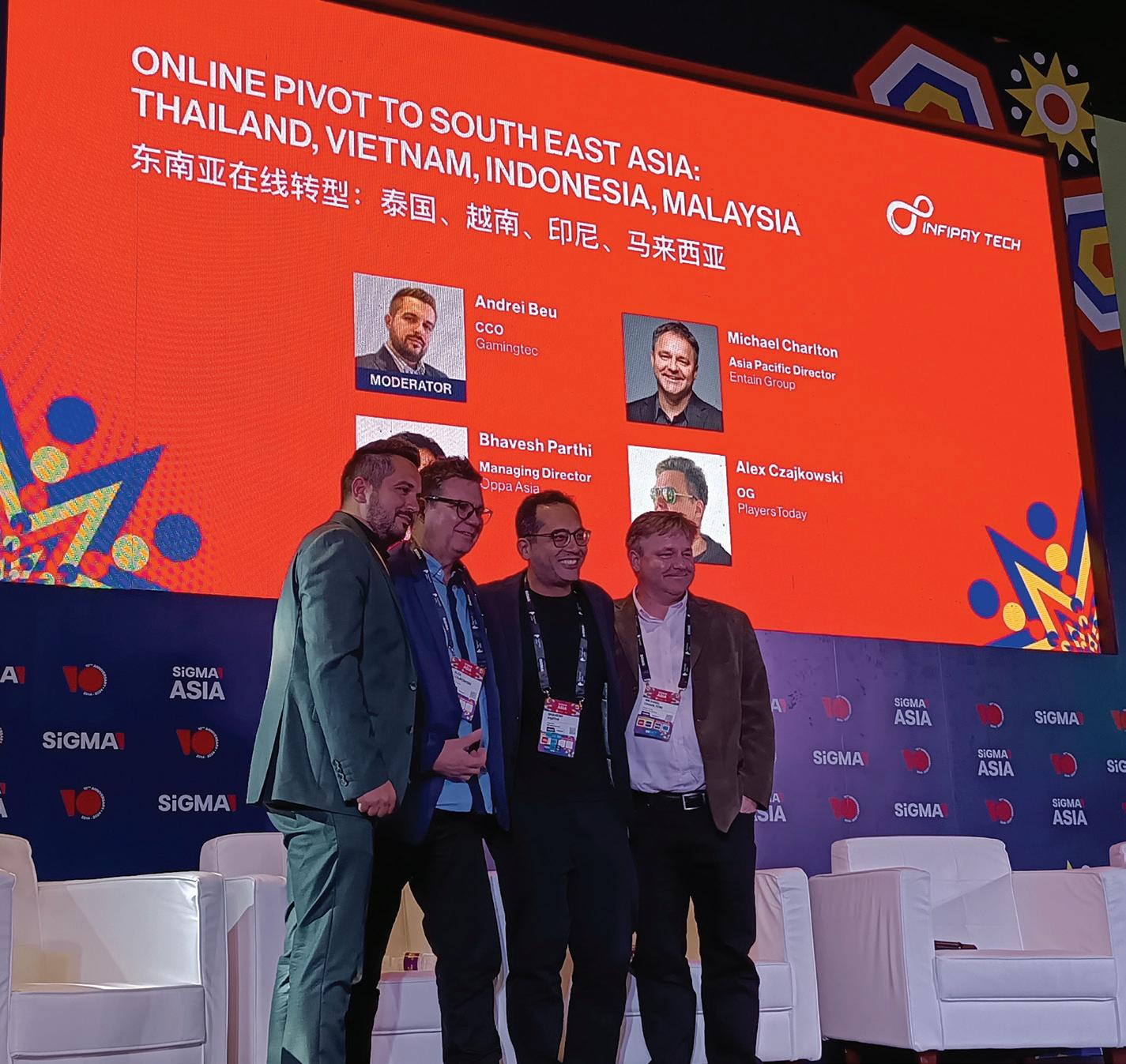
There are frequent discussions held by politicians regarding taxes and other rules, although it seems like there’s not going to be any clear answers any time soon. Some countries are pushing to support gambling, while others are still facing strict resistance from both politicians and the public.
However, the panel did agree that if one of the more influential nations, such as Japan, started to take steps to promote and regulate its industry, other nations might feel confident enough to follow in its footsteps. Not only that, but if Japan can prove that certain rules work to benefit customers, its Government and operators all at once, it’s much more likely that similar laws could be picked up by neighbouring countries. The panel was hosted by Andrei Beu, CCO of supplier Gamingtec and had Alex Czajkowski, OG of PlayersToday, Michael Charlton, Asia Pacific Director of Entain Group and Bhavesh Parthi, Managing Director of Oppa Asia, in attendance.
JAMIR, CRM HCM NEXUS
SiGMA 2024 also hosted a panel on women in the gambling industry, which was moderated by Roanna Jamir, Client Relationship Manager of HCM Nexus, who was joined by Ellen Frojd,
CEO of SmartRecruitment.com, Crystal Nadal, Yolo Group Asia’s Head of Sales and Wong Wei See, Head of Sales APAC of Group-IB. Although several of the panel were asked questions specific to their industries, including cybersecurity and AI, each of them highlighted the importance of inclusivity in the industry, particularly within the hiring process. When a particular field is traditionally male-dominated, such as gambling, it can pose some unique issues that aren’t always instantly obvious.
For one, it can be daunting to place yourself in an environment like that as a woman, as the support systems aren’t always there once you’re on the inside. This is something the panel discussed, saying that one of the most important things men could do was also advocate for their colleagues, especially if they’re thinking of going for higher positions within a company. It’s one thing to have the right experience and attitude to gain a promotion, but it’s another thing to openly have the support of your peers. A recent study showed that, worldwide, there has been a 22% increase in women establishing themselves in the gaming industry, with 45% of this coming from the US alone.
Elsewhere, as part of a keynote speech, SCCG Management Founder Stephen Crystal discussed how casinos in Asia use marketing differently, and how this translates into the way the wider population then views those properties. Crystal explained that every nation, whether it is the Philippines, Malaysia or Cambodia, offers something specific but unique to its customer base.
“There is differentiation in the market in Asia due to the design elements used,” he said. “When people go to a casino, they know they are going to lose money but the challenge is how to get them to spend more and have a good time
while doing it. In Asia, digital signage is at the next level and loyalty programs have been successfully exported from the US. Casinos embody local customs in Asia but also connect their environment through the use of technology today.”
Crystal went on to explain that it’s also the approach to personalisation that has made a real impact. This included individualised notifications, achievement badges and even leaderboards that make customers feel like they’re being invited into the experience, rather than simply being a passive participant.
While it might be all the rage for operators
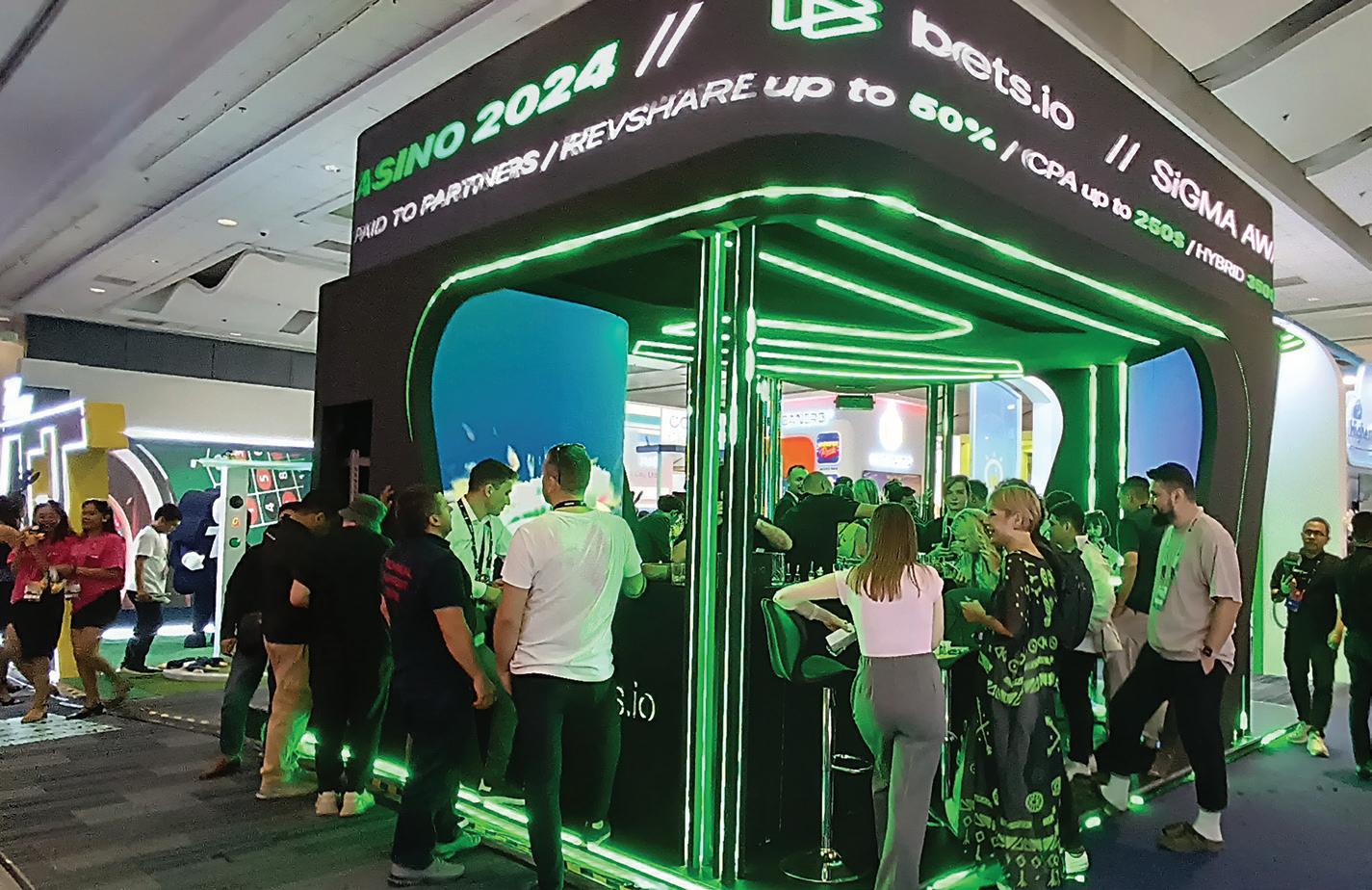
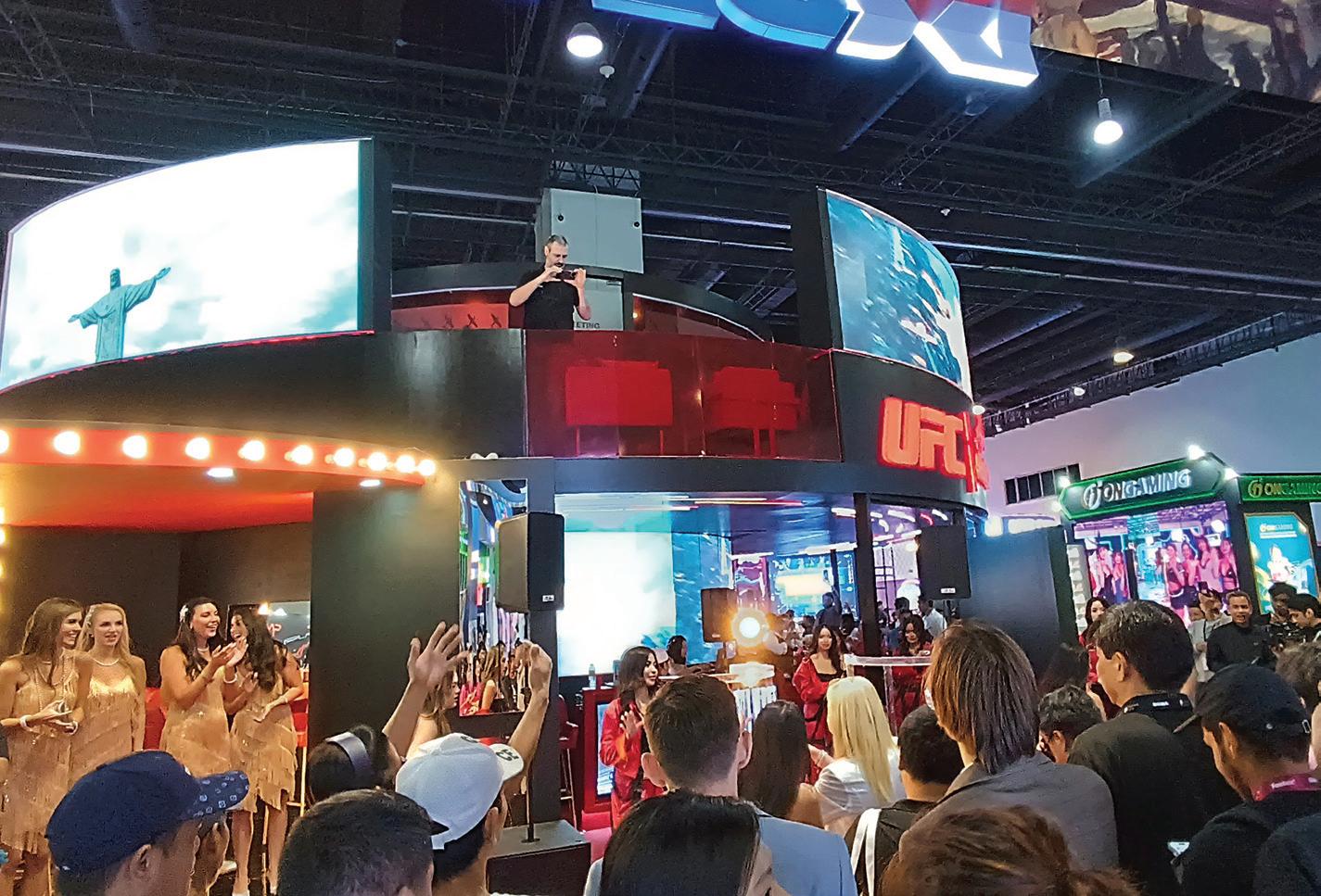
to focus on omnichannel offerings, a panel moderated by Harmen Brenninkmeijer, MD of NYCE International, and attended by Kurt Quartier, President of Tyche Gaming International, Joe Pisano, CEO of Jade Group, Angel Sueiro, COO of PH Resorts and Yo-Sien Low, Senior Director of Moloco Singapore, discussed the reality of it in day-to-day operations. A true omnichannel experience would mean a customer can interact with a casino across its physical retail location and its online platform seamlessly. This could include funds, game progress and even potentially offers. However, the panel noted that there are very few examples of true omnichannel experiences in the gambling industry, especially when it came to aspects like joining wallets.
There is one prominent concern when it comes to omnichannel offerings, however, and that’s the lurking possibility of cannibalisation. If customers can access the same games by playing on their phones at home, will they still travel to their local casinos?
Well, according to both the panel and using Caesars as a case study, an online casino platform can actually entice foot traffic to land-based casino properties. While mobile gaming offers an accessible way to play casinostyle games on the go, live dealers and other patrons at a casino create a unique atmosphere that can be difficult to replicate through a remote platform.
This panel was titled ‘Trends in growth, data AI that will shape the online marketing in casino and sports betting in 2024 and 2025;’ and covered four main areas, those being users, adverts, assets and data. There was a lot of synergy between these topics and, throughout the panel, Gąsiewski discussed how each of them would affect the other. For example, while “AI will be playing bigger roles in the growth activities,” this has to be handled alongside responsible data measures. There is a balance between quality data being collected, while also being collected and analysed ethically without breaching regulations and privacy concerns of its sources’ origins.
This then fed into the need for assets and ads to work together, as Gąsiewski predicted online gambling revenue could reach as high as $136bn by 2029. To adapt to the growth and innovation the industry is currently going through, companies need to keep pushing to keep their technology competitive and their advertisements relevant. However, to keep marketing fresh, companies need to gather data about what consumers want, which calls for greater AI developments to make it easier. It’s all intertwined, and for one of them to progress, the other three need to be making similar advancements at the same time.
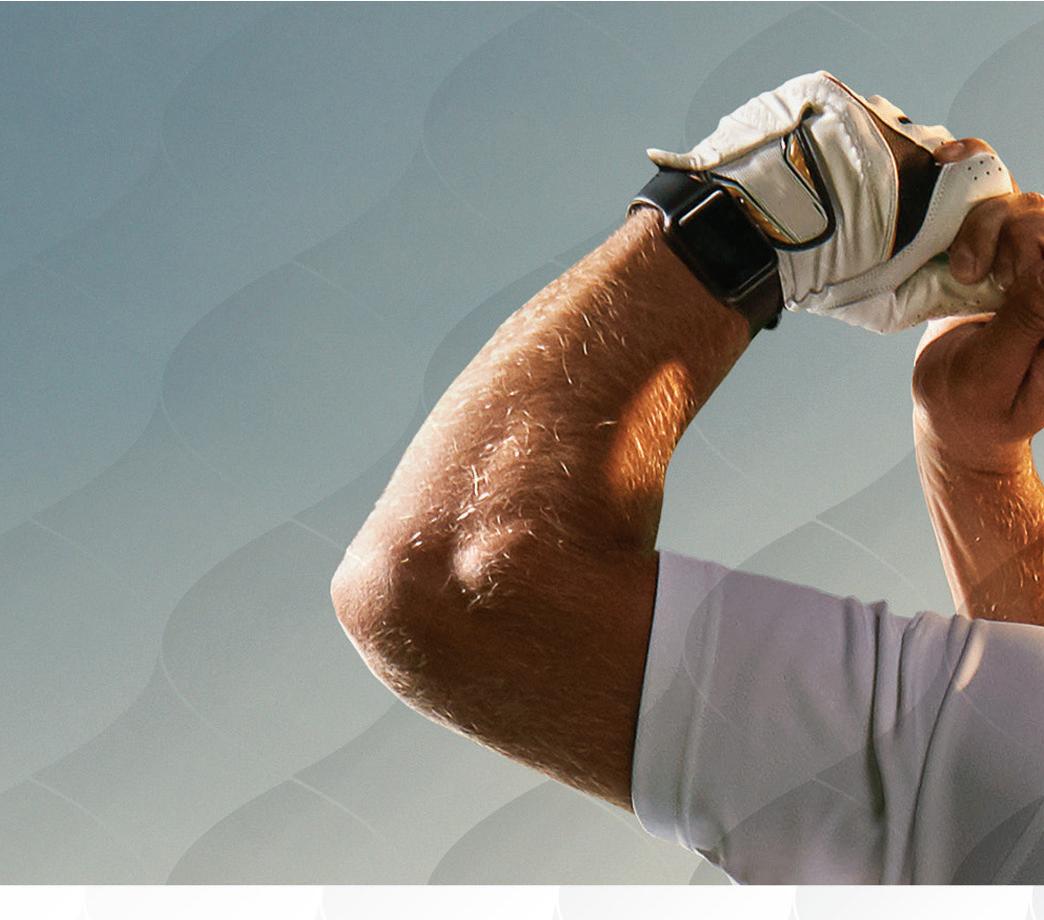
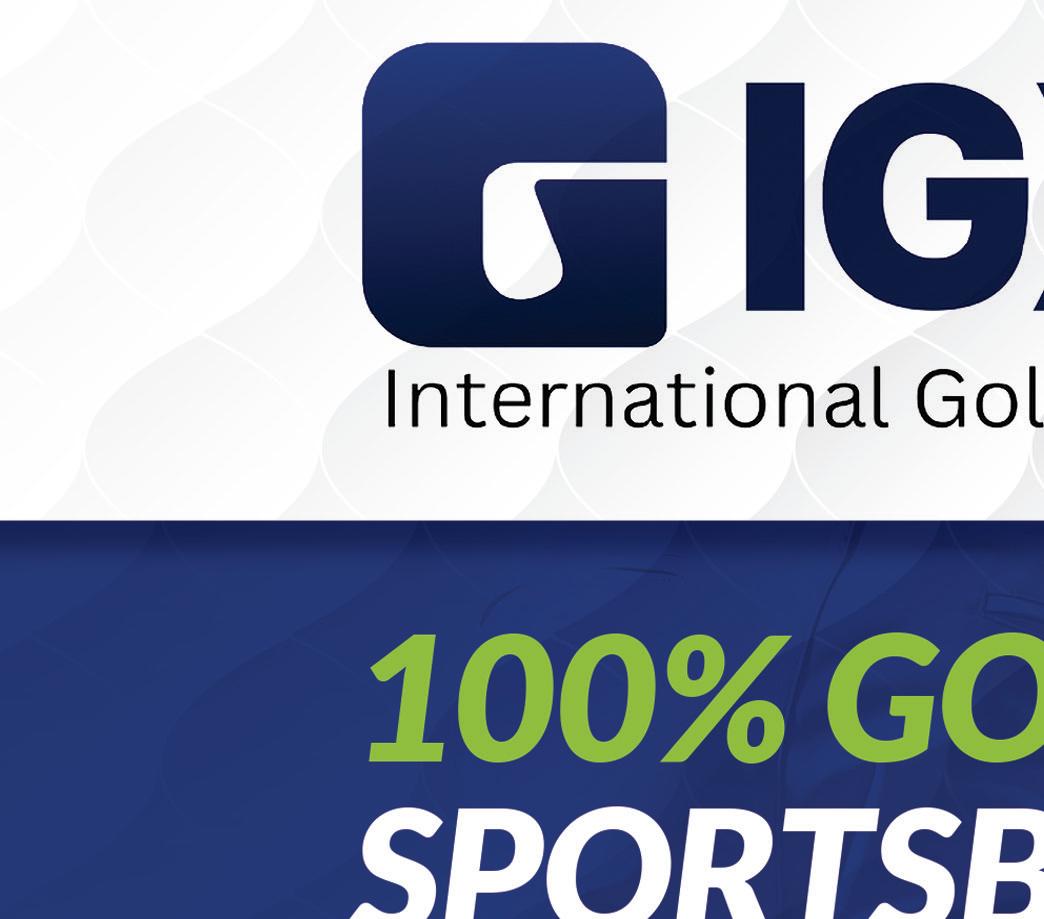



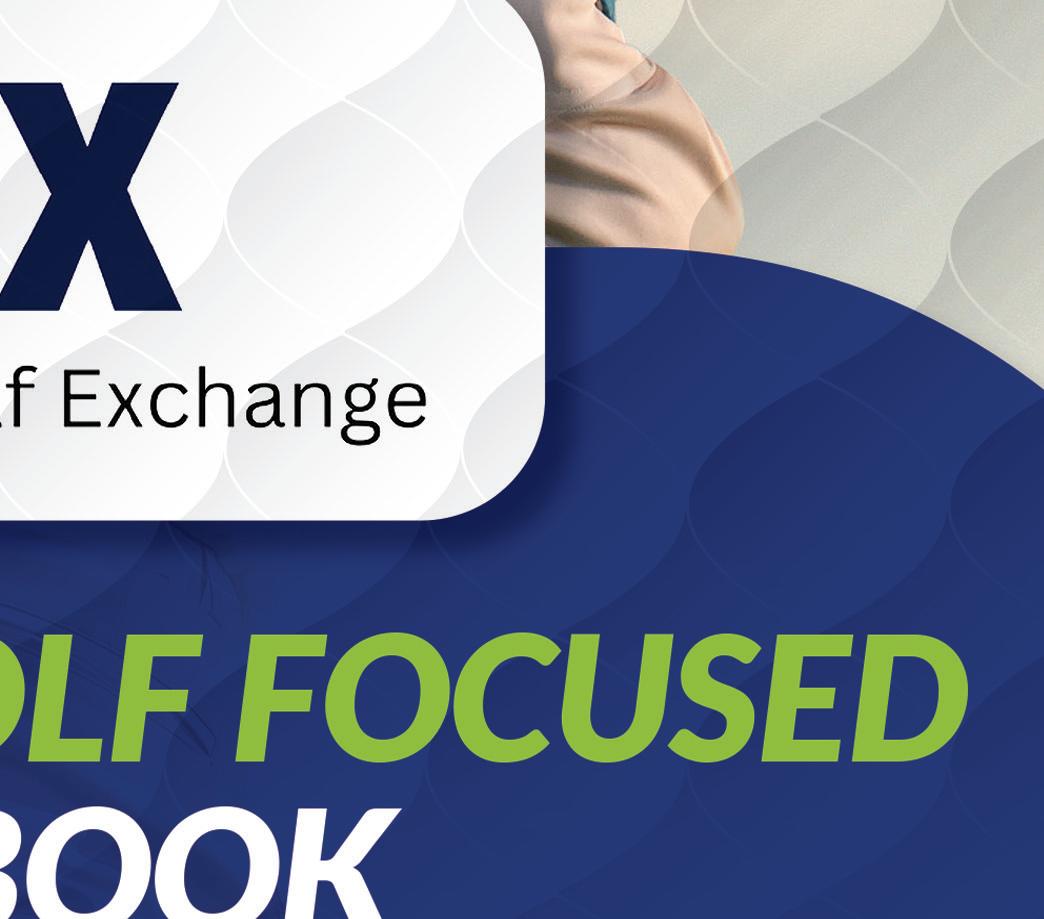









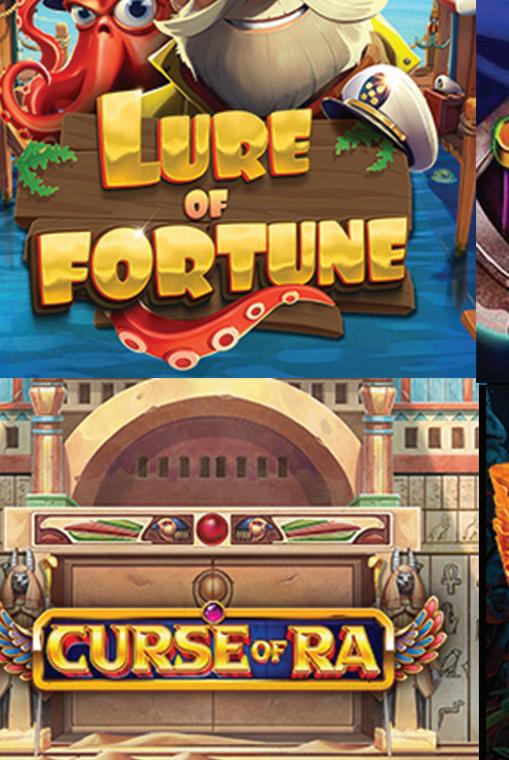
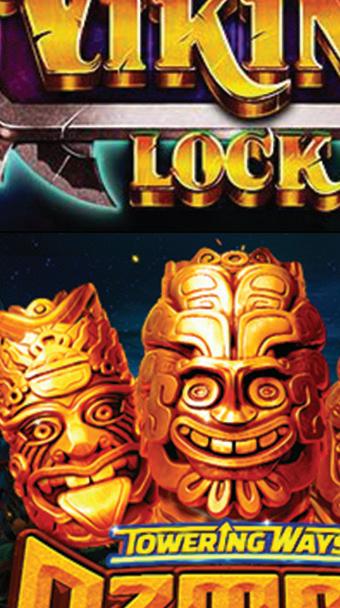

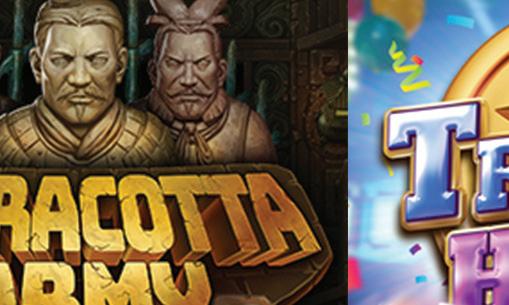








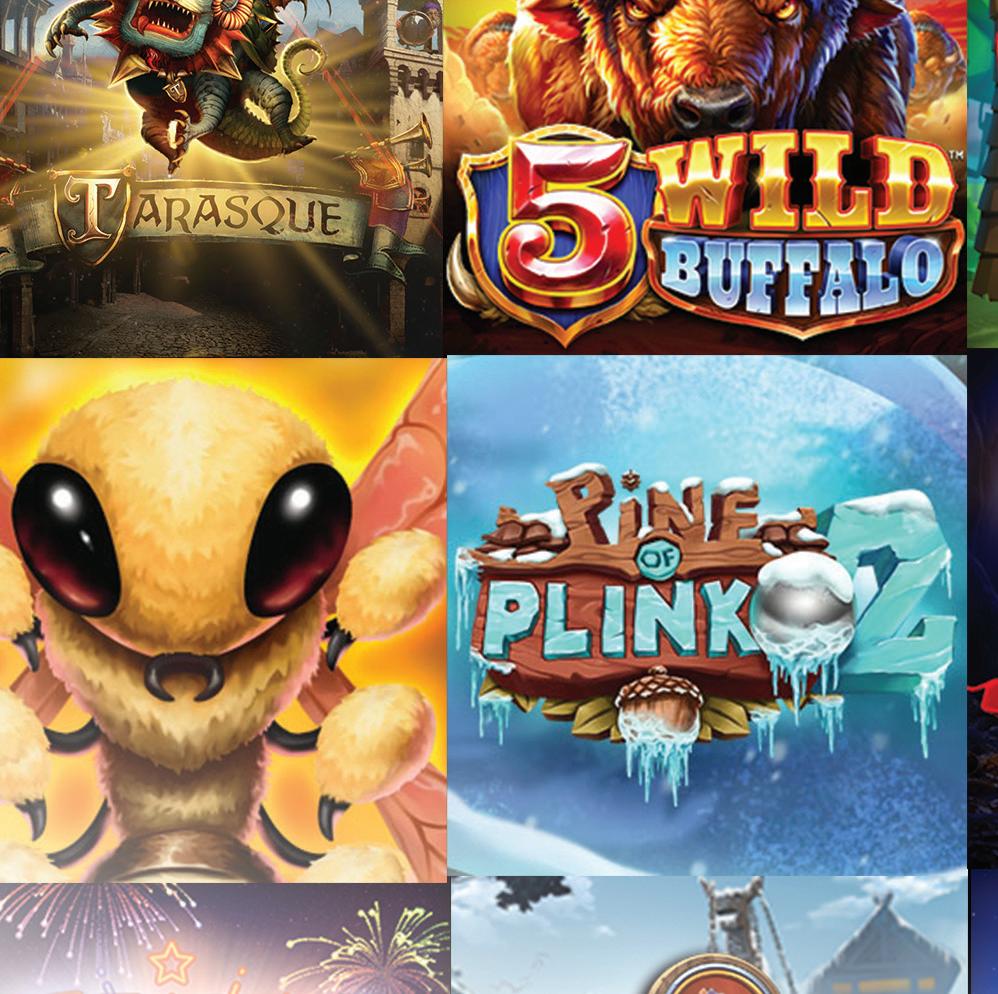


Gambling Insider Editor Tim Poole speaks with Relax Gaming’s new CEO Martin Stålros, about moving into the role and stepping into Simon Hammon’s shoes
What are your initial feelings and aims as the new Relax Gaming CEO?
The chance to get this position is something I’m extremely proud of. It’s great to have the opportunity to become CEO of a company I dearly love. I’ve been here for almost 10 years and there’s a reason for that. Having no plans of leaving, I have the chance to lead us into the next phase, which is something that’s very close to my heart. I think also of how Relax is as a company; we have built something very special. I think the culture we have built over the 15 years we’ve been around is one of the things that has made us succeed and this strong company culture gives us the ability to both attract and retain a lot of talent.
That’s something I see as one of my biggest aims and motivations: To keep, maintain and
grow that specific, relaxed vibe and foster it as we go into the next phase of the company. That said, I think it’s also good to be openminded. Everything is changing, the company continues to grow, the iGaming industry itself is changing, so we have to both be open and eager to follow trends while making sure we stay true to our ethos and DNA.
Where do you feel the company is particularly strong? And, coming in as CEO, where do you feel there may be room for improvement?
Starting with our strengths, I think we had this when we started. We’re not new to the block. We’ve been around for 15 years and even back then we had an extremely strong tech focus. That tech heritage has made
“I think we’re in a phase of the aggregation vertical where there will be movement over the next couple of years and that could lead to a different landscape in the future”




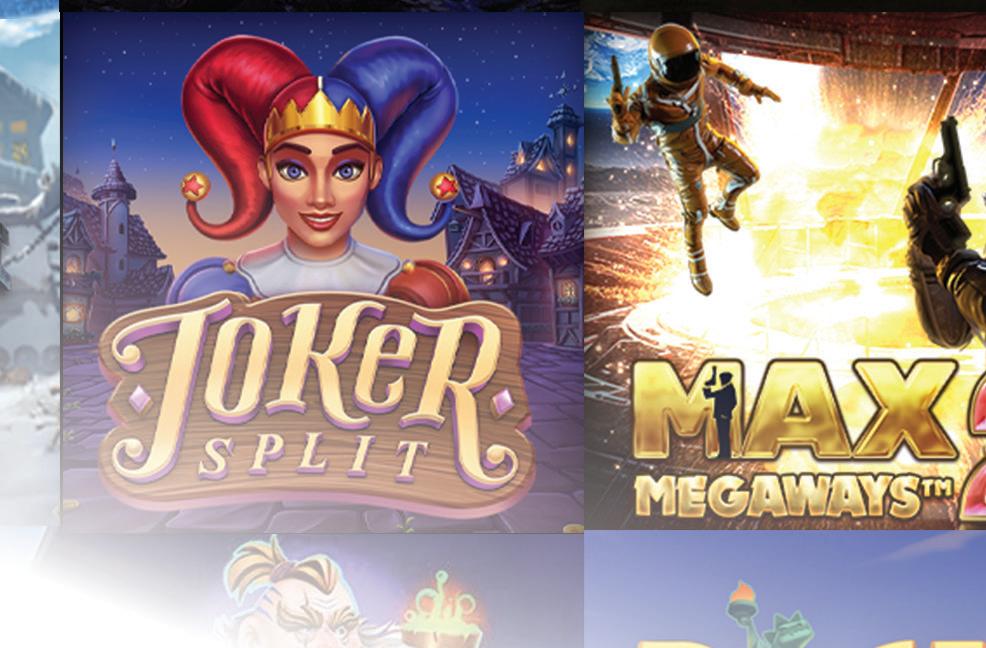
us aim for tech excellence. It’s important for speed to market and it’s important to deliver unique content. It’s important to be a trustworthy supplier. That’s an area we’re strong in, but we’re also continuously challenging ourselves to keep that quality or to improve it. It’s still in our DNA to have our ongoing focus, to keep on going and not falling into the trap of getting settled or too cosy with the position we’re in. That’s one of the strengths I think it is worth fighting for.



what we already do, but I think it’s easy to get settled in the stuff you do well and forget about them. Sometimes that might mean you lose a bit about who you are and I think that can have long-term negative effects… So not necessarily doubling down on our strengths, just not getting settled with them.


We have a mindset in the organisation that we always want to continue to challenge ourselves, continue to challenge the industry, being a differentiator. But having the passion and dedication to continue challenging the status quo and improve; I think that’s both a strength and improvement in the sense that this is who we are. We’ve always tried to push ourselves forward and there are always things we are strong in and areas of improvement. But, in many ways, I also think the improvements might be in your strengths. Because that’s what differentiates you and your core and that can be something you utilise as the catalyst for continuous growth.
What I take from that is doubling down on your specialisation rather than adding something new which you’re not as strong at.
I don’t want to exclude anything, but we’re always trying to improve. We’re always looking at what comes next and we never get settled. So I wouldn’t say it’s about us doubling down on
A word on Simon Hammon. He has this very intimate knowledge of the products and it really came through – you could tell he was into the games and knew every every little detail of them. How are you looking to succeed that?
You’re spot on in the sense that Simon is one of a kind. I would be extremely naive if I entered this role with any ambition to replace Simon. I can’t. I’d even go as far to say that I’m not sure if there’s anyone in the industry who can. He is exceptional in what he does, so I think it would be a bad decision if I go in and try to do things the same way he has. My focus needs to be different. I can’t replace Simon, so my focus has to be on creating my own ways of building and implementing frameworks for supporting the growth we’re in, and also utilising the extremely experienced exec team I have around me.
I’ve been at Relax for a very long time, so I have a very good view of the whole, and I know what works for us and what doesn’t. The exec team and the senior management, as well, their depth of expertise in their domains is incredible. That gives me a lot of confidence – we weren’t a one-man band with Simon and we will be able to continue. It’s important I get to say as well that Simon has been incredible







for the company and the six years he’s invested into it have really elevated us. But at the same time, during that period, he has created an experienced exec team and senior management team and most of the decisions in how we ran the company have been done with these people, so I feel confident we will be able to continue.
You mentioned being at Relax for 10 years. In that time how has the company changed?
The company has evolved a lot over the years and countless things are completely different from what they used to be. We have been working a lot with the culture and with the strengths we started with, and made sure we kept them. But, for context, when I joined we had less than 30 people in the company and now we’re over 300. Over the years, we have expanded our product portfolio so we have
“ The company has evolved a lot over the years and countless things are completely different from what they used to be ”

Stålros
many more verticals to stand on. Now we have 10 offices around Europe and going through a pandemic taught us about hybrid working. The company has grown so much during this time, but it has also given us the chance to grow and have a transition period that has taken us to where we are today.
Everything like that has changed, but the relaxed vibe we are famous for is something that still runs deep. Even when we get new people joining the company today, the company culture seems to be something that people really enjoy.
Tell me about the US. How lucrative could it be for Relax Gaming specifically? It takes quite some time to enter a market, not just the US but any other market we go into. We have high ambitions but we also remain humble in the sense that it takes time to build a local presence. It takes time to create fruitful partnerships with operators, to educate players about who we are, what our games stand for and to make ourselves a household name. With that said, we have been pleasantly
surprised with our experience in the US so far. We only launched in New Jersey in December and we’re very encouraged by the start we have seen. It seems the games resonate well with the player base, so I have increased ambitions for our presence in the US, given the first six months.
We have a lot of places where we can still grow our distribution with operators; they are going live in additional states and, as we continue with our expansion of content, we’re learning about the market with how we should create games that resonate well with the audience.
In terms of current demand levels, how is the demand for aggregation within the industry compared to the traditional routes casinos use to operate?
The demand is consistently high and I don’t see any trends of that going down. The traditional aggregation model is a need for both studios and operators because they are in a chicken and egg situation… That being said, we see plenty of winds of change within
the aggregation industry. So there might be a new business model or different way of setting up that part of the business. There are more studios having ambitions to run their own platforms and taking both the upsides and downsides of that.
I think we’re in a phase of the aggregation vertical where there will be movement over the next couple of years and that could lead to a different landscape in the future. It’s the same for us and I think that’s been ongoing now for a while. To facilitate a new business model, we started the ‘Powered By’ leg of our aggregation model, where if a studio has their own platform, we can make a platform-to-platform agreement where we help them with the distribution, but they have more freedom in relation to how they build on their platform. So new models are bubbling up and I could definitely see trends leading to a different landscape in a couple of years.
Finally, as a COO for a number of years, I guess it was quite a natural transition into the CEO role. Do you think COO to CEO is it the most natural C-level transition out there?
I don’t think there’s a one-size-fits-all answer. It depends on the direction the company is going in or the phase it’s currently in. So it’s the Board that would appoint any new CEOs but I think, for them, it’s going be an exercise to assess what the current situation is and where the company wants to head. They need to ask what the needs are for the company so they can plan the upcoming strategic cycle, and then from there, they go with the type of person they deem the best fit. That doesn’t have to be internally either. It’s the full profile people are looking at; are they more of an operational leader, a business leader or a product leader? This will all depend on what the next strategic phase is aiming to achieve.
“ I would be extremely naive if I entered this role with any ambition to replace Simon. I can’t. I’d even go as far to say that I’m not sure if there’s anyone in the industry who can ”
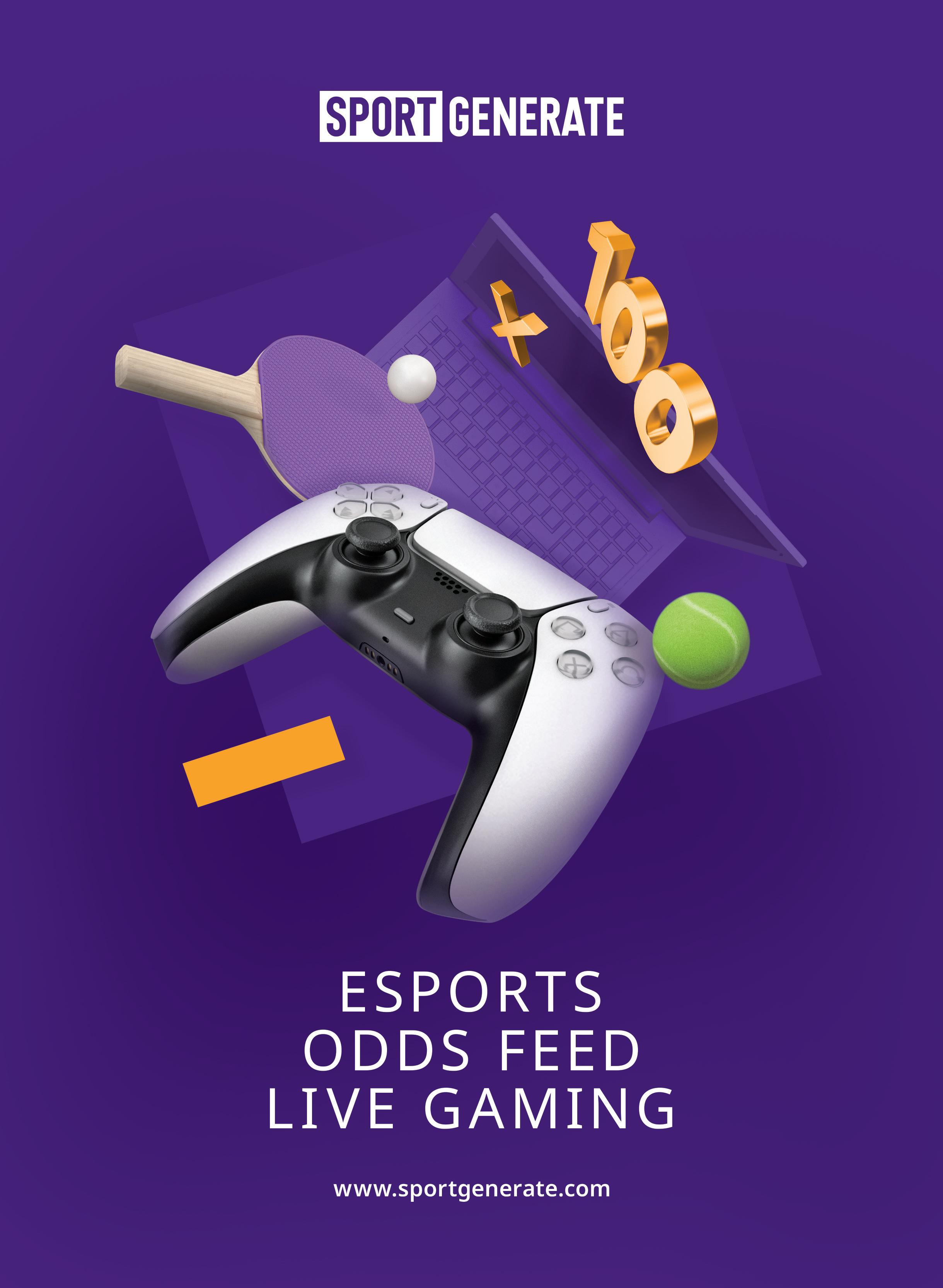
Andrea Boratto, WorldMatch CEO, shares his plans for market expansion and unpicks the challenge of instantaneous interaction in iGaming
WorldMatch owns and operates 300+ casino games, how do you approach the challenge of providing a personal experience for your users while appealing to a range of audiences?
Providing a personalised experience for users while appealing to a wide range of audiences is a complex but achievable challenge. This approach involves designing games that can change and evolve based on player behaviour and preferences, like for instance Egyptian Escape in which players can pick between different levels of difficulty. By ensuring that games remain challenging and entertaining, WorldMatch keeps players engaged for longer periods.
In the highly competitive online gaming market, targeted marketing and promotions are crucial for attracting and retaining players. By understanding the preferences of different player demographics, the company can tailor its promotional efforts to maximise impact.
Building on that, as a gaming supplier, how do you ensure your games tailor themselves to the habits of a given user as they play?
This involves implementing adaptive technologies and strategies. A key factor in WorldMatch’s success is its dedication to continuous improvement through a robust feedback loop. We actively seek input from
clients to identify areas for enhancement and to ensure that its games meet and exceed the expectations.
You just announced your debut into the Philippines, can you tell us a little bit more about your goals in the region for 2024?
Debuting into the Philippine market was a milestone in our path, we’re planning to work hard on market penetration and brand awareness. We plan on establishing strategic partnerships with local casinos, gaming operators, and online platforms to enhance market entry and visibility. We’ll launch targeted marketing campaigns tailored



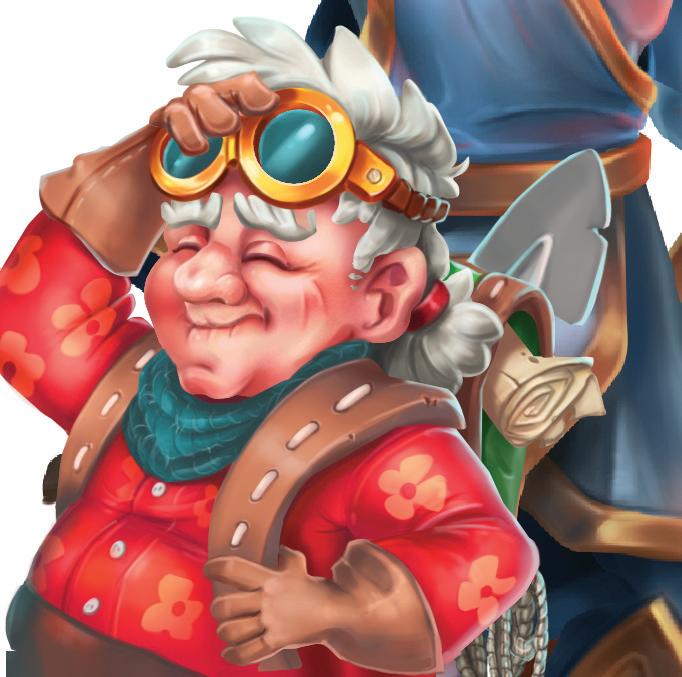



















to the Philippine audience, emphasising local culture, preferences and gaming habits. We also plan on increasing brand recognition through participation in local gaming events, expos, and sponsoring relevant industry conferences.
How has the integration of new technologies such as API integration and HTML5 cha nged WorldMatch’s approach to gaming development over the last 12 months?
Research and development are a constant in our integration and development team, whether it’s about coding or graphics. We use tools and analyses that let us work as top tiers. HTML5 helps to run seamlessly across various devices and platforms, including desktops, tablets and smartphones.
Of course, artificial intelligence has also naturally impacted our work. AI is a valid support for various activities, especially creative ones, even if it cannot completely replace human creative capacity. We research and evaluate the impact of AI in graphics and audio processing, where it can improve the player’s user experience.
We also use artificial intelligence extensively to analyse the performance of our products in detail and to precisely measure the acceptance of new releases on the market.
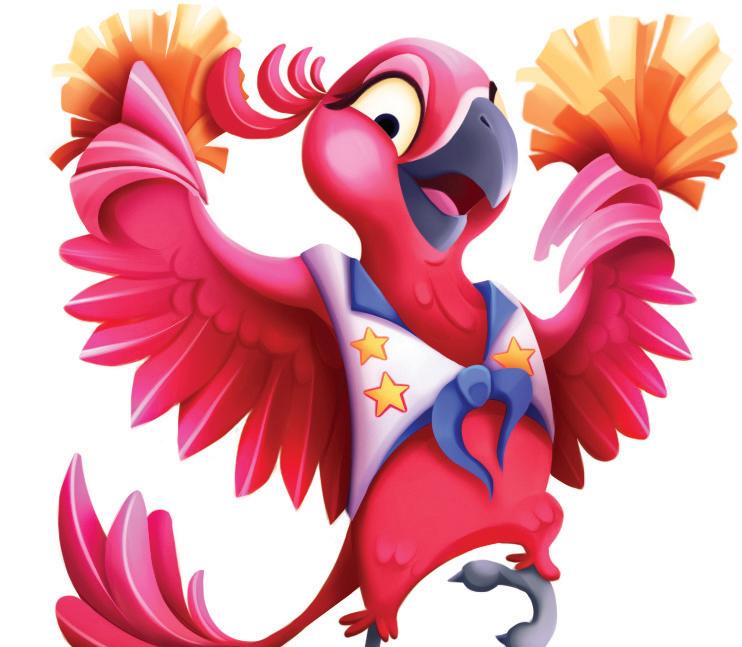


“ Burger Win is another crash game that worked well for WorldMatch, easy to understand and play, with a straightforward premise that appeals to a wide audience ”

When operating in a range of markets, how crucial is localised content for generating a unique player experience?
Localised content is essential for creating a unique and engaging player experience in diverse markets. It enhances cultural relevance, improves user retention, provides a competitive advantage, ensures regulatory compliance and fosters strong community engagement.






Localisation goes beyond mere translation. It involves adapting the content to fit cultural nuances, humour and social norms, which enhances the immersion and enjoyment of the game. Demonstrating an understanding and respect for local cultures can build strong brand loyalty and trust among players in different regions. Different markets also have varying regulations and localisation ensures compliance with local laws, which is essential.
Can you tell us a little bit about your recent global partnerships and any key goals for 2024?
Our goal is to consolidate our presence in the Iberian market, Spain and Portugal in particular. We’re also consolidating our
presence in the Brazilian market, where we have an ongoing development process and direct agreements with local partners. We also aim to expand WorldMatch’s reach and provide a diverse range of high-quality games in all the regulated markets we are already in.
The iGaming market is evolving extremely quickly as you know; how do you ensure that WorldMatch stays at the heart of such an innovative, fast-moving industry? That requires a multifaceted approach that leverages technology, market trends, user engagement and strategic partnerships. We regularly update our gaming portfolio, maintaining a steady pipeline of new game releases keeps the portfolio fresh and exciting. By focusing on continuous innovation, market adaptability, strategic partnerships, enhanced user experience and responsible gaming, WorldMatch can remain at the forefront of the rapidly evolving iGaming industry. This comprehensive approach ensures that the company can not only keep pace with industry changes but also set new trends and standards.
Pragmatic Play COO Irina Cornides speaks to Gambling Insider about the supplier’s goals and aims for live casino promotion Blackjack League
What can you tell us about Blackjack League?
Blackjack League is a headline live casino promotion from Pragmatic Play. It’s available on a wide selection of Pragmatic Play Blackjack tables and games, including Blackjack, Speed Blackjack, Privé Lounge Blackjack and the recently released Blackjack X. The promotion comprises four daily tournaments – Bronze, Silver, Gold and Privé – and offers more than €1m ($1.07m) in cash prizes every month. In total, 500 prizes are up for grabs every day, with a top daily prize of €10,000.

These are on top of the usual wins that can be awarded in the Blackjack games, so they provide extra incentive for players to join their favourite tables and take part.
Could you explain the differences between the levels of the tournaments? Blackjack League tournaments accommodate a range of stake levels, catering for everyone from new and casual players to more experienced high rollers. The minimum stake range is €5-10 in Bronze. The Privé tournament is played on Privé Lounge Blackjack tables, which offer the ultimate VIP experience, seating just one player at a time and providing a range of enhanced game controls. Players can enter the Privé tournament in Blackjack League with a minimum stake of €1,000.
Two tournament mechanics are in play across Blackjack League. Bronze, Silver and Gold tournaments award leaderboard points for consecutive wins on the first 100 qualifying bets only. The Privé tournament bases leaderboard positions on the longest win streaks recorded. In the event of a tie, the player who achieved their score or streak first is awarded either the higher prize or, in the case of Privé, the €10,000 win.
How popular have the tournaments been?
Pragmatic Play’s Blackjack products are among the most popular and entertaining in the industry, so Blackjack League was always likely to be a hit. There’s no barrier to entry for players who want to take part and operator uptake has been excellent. Awarding more than 45,000 prizes between April and June, Blackjack League tournaments are attracting and retaining even more players to what was already a hugely successful product offering.
Do you think this has been Pragmatic Play’s largest promotion?
Blackjack League is the largest online Blackjack promotion of its kind in the industry. Nobody is doing it bigger or better than Pragmatic Play
in terms of the rich diversity of participating Blackjack tables and games, the range of tournaments on offer, and the sheer scale of the €1m monthly prize pool.
Pragmatic Play’s largest promotional product is Drops & Wins, which has a combined annual prize pool of €30m across a range of popular Slots, Crash titles and select Live Casino game shows. Drops & Wins and Blackjack League both benefit from being entirely funded by Pragmatic Play – operators pay nothing extra to participate.
What makes a successful live casino offering?
Outstanding quality, a diversity of classic and original titles, brilliant presenters, efficient and reliable operations, constant availability, and a development process which aims to ensure player-favourite products hit the ground running; and then build on their popularity over time.
Scalability and cost-effectiveness are also important, so products such as Blackjack X and Smart Studio can be key differentiators. Blackjack X is Pragmatic Play’s Blackjack variant played without a live dealer, and Smart Studio allows operators to customise elements of live casino games to produce bespoke environments that showcase their brands at minimal cost and setup time. Promotions like Blackjack League are the icing on the cake when all else is running smoothly.
Do you plan on running Blackjack League again after ending on 30 June?
Yes! Blackjack League has been such a popular choice for players and operators that extending it was an easy decision to make. The current promotion ends on 30 June as planned. Blackjack League will then return immediately for another three months, ending Sunday 29 September. The new promotion will work in the same way as the first, awarding €35,000 in cash prizes every day across four daily tournaments.
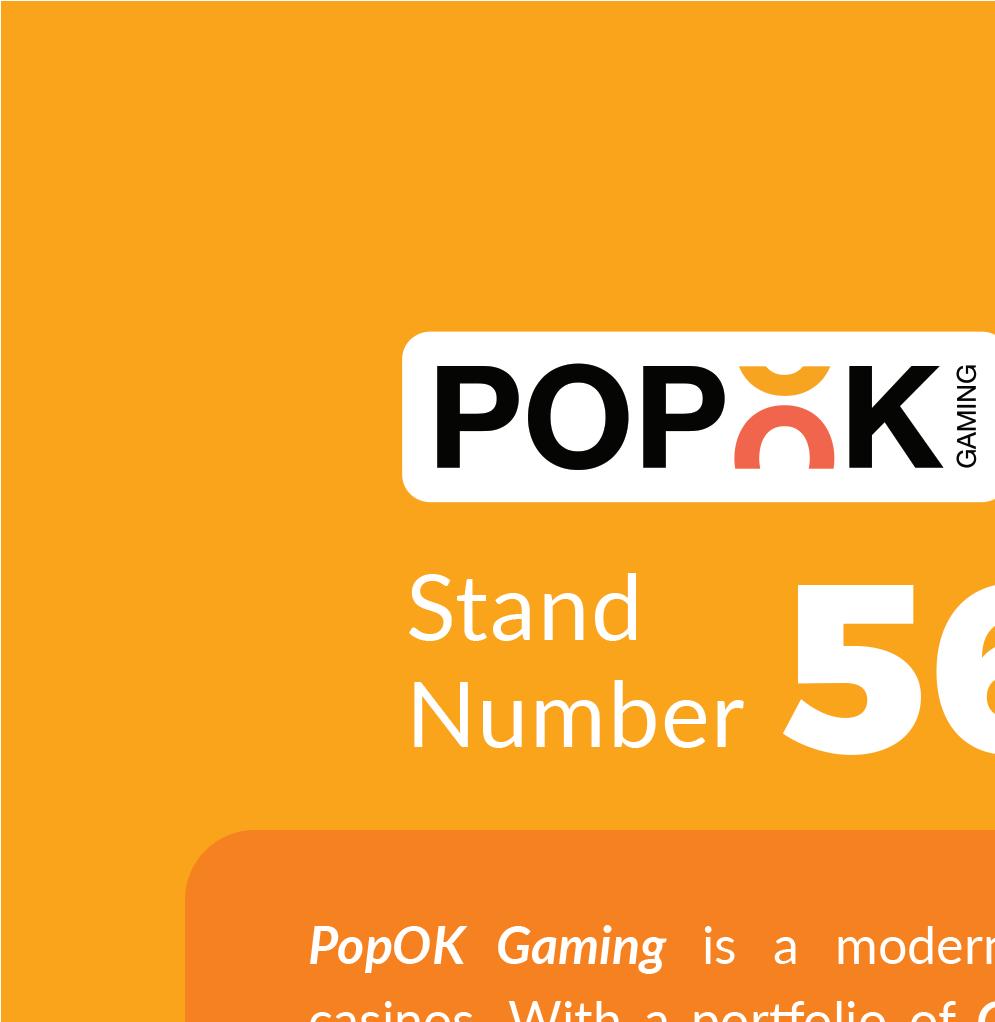
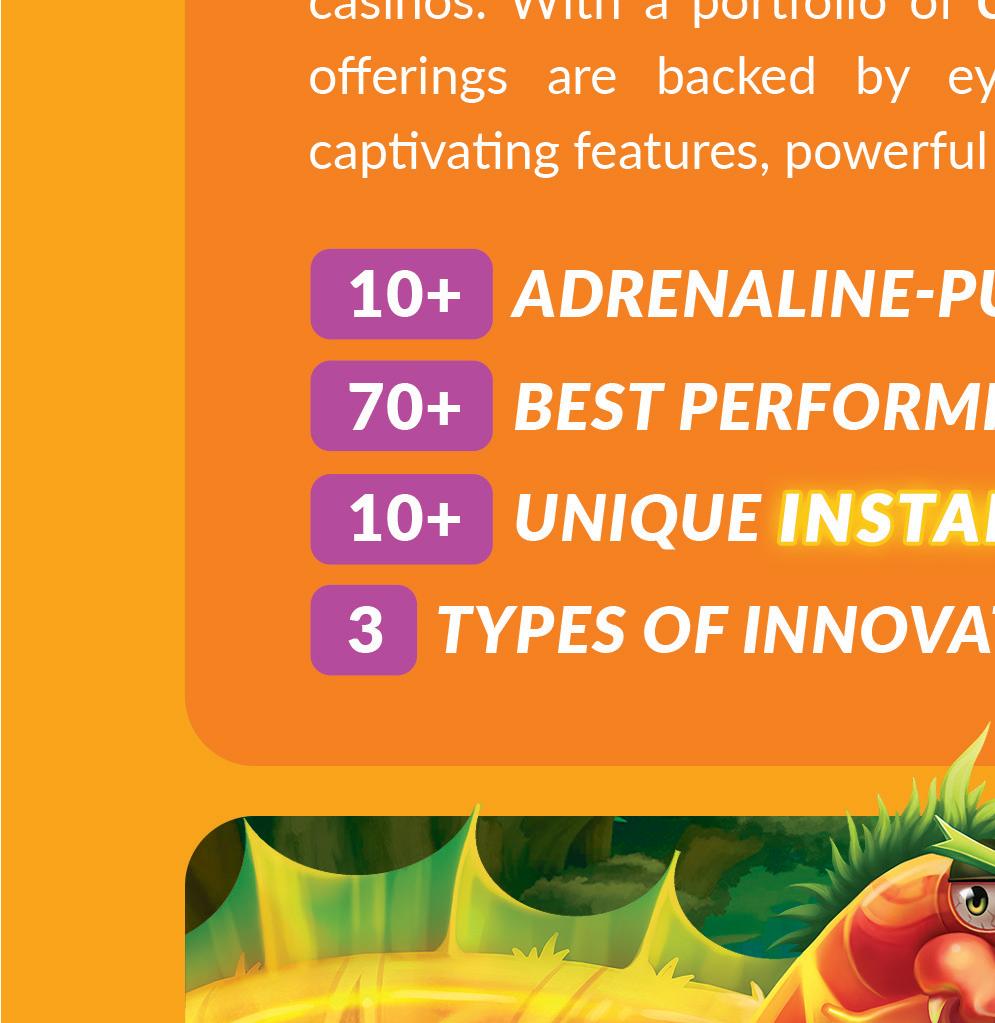

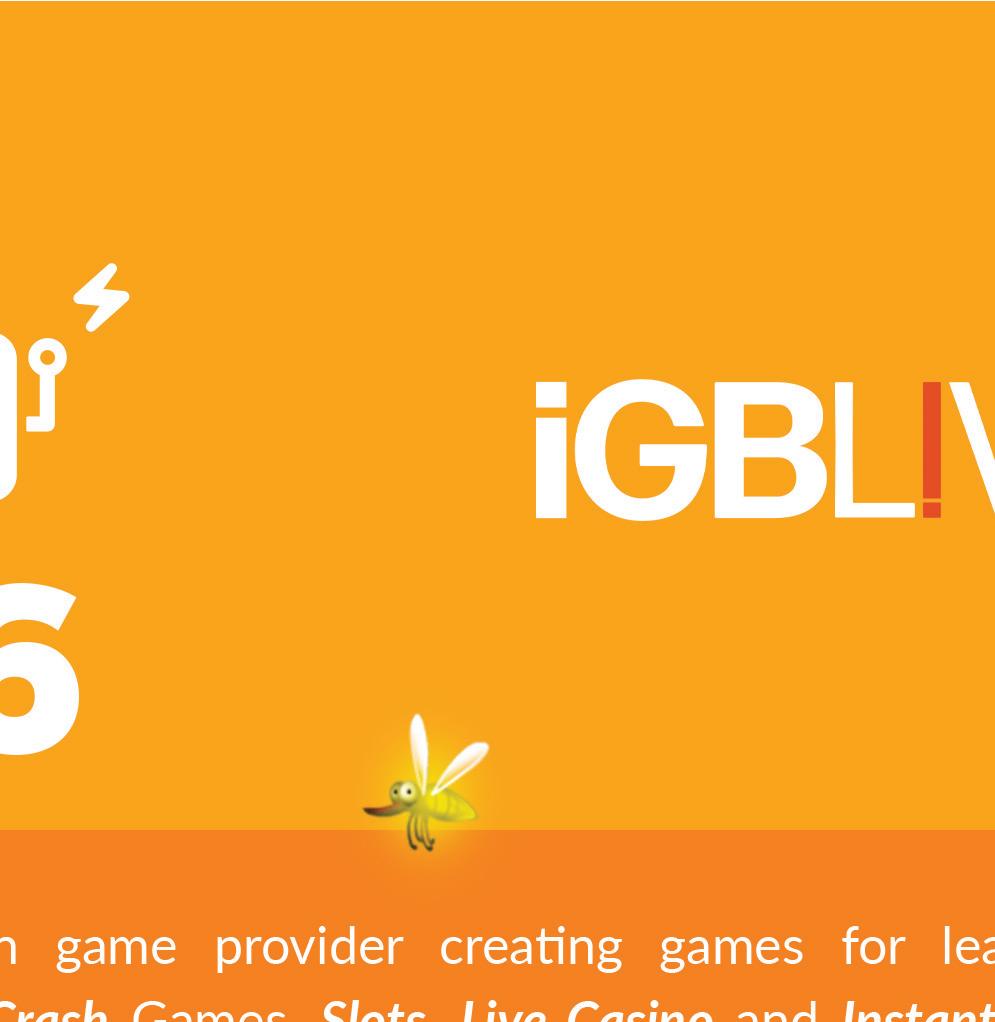
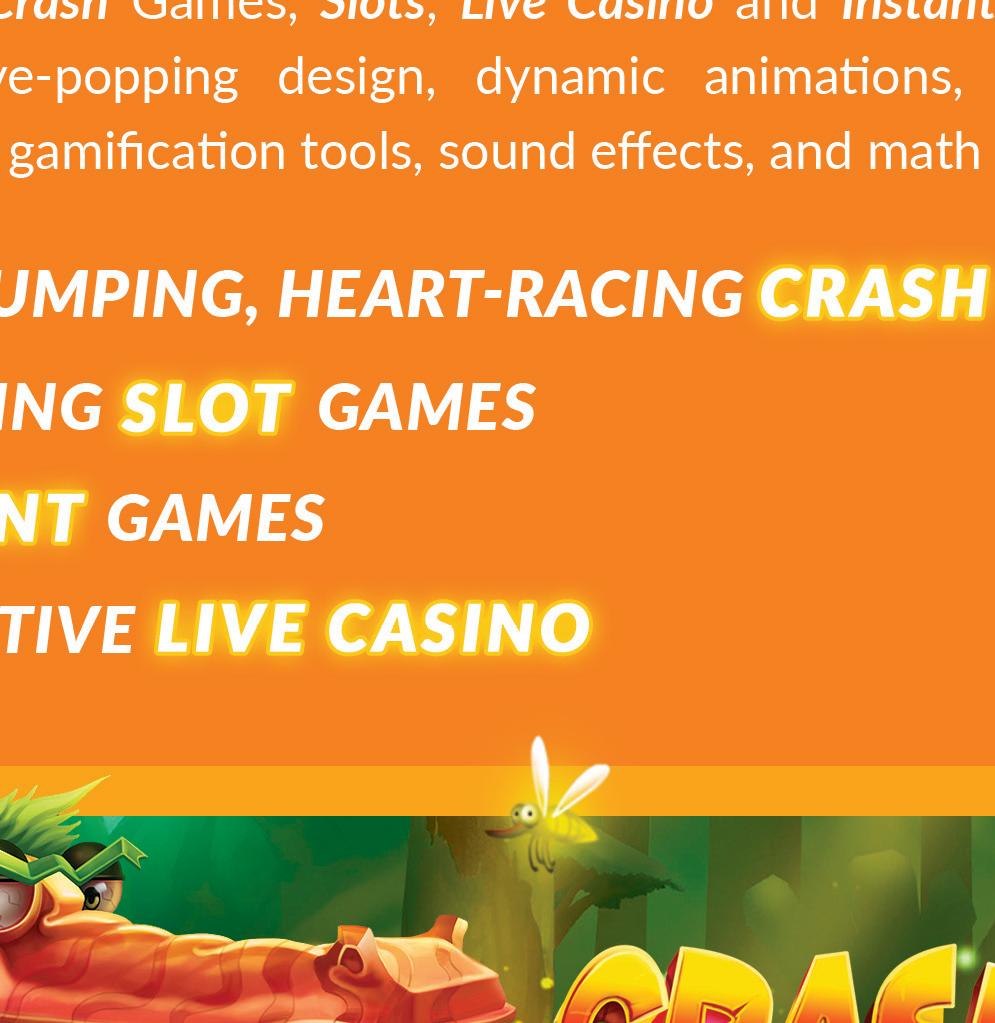




Gambling Insider speaks to Swintt CEO David Mann about the company’s work in 2024, trending modern slots and much more




















David Mann
Swintt has expanded across Europe in 2024. Can you tell us about some key trends in these markets?
I think one of the most obvious takeaways we’ve had as we’ve expanded through Europe is that each market is very, very different. As a provider, we always pride ourselves on supplying a range of games that’s diverse enough to cater to all tastes and preferences, but we’ve definitely had to tailor our approach in the different countries accordingly. In Germany and the Netherlands, for example, players tend to gravitate towards classic slots with recognisable features, so we’ve really pushed our SwinttPremium games there. In the UK and Ontario – where we recently received certification for our games – meanwhile, players tend to want something a bit more cutting-edge, so this was a major part of the reasoning behind our acquisition of Elysium Studios.
Could you talk to us about trending modern slots, especially in the light of that Elysium Studios acquisition?
These days, the younger generation of player wants more than just a game – they want a fully immersive experience. With their exciting themes, engaging visuals and innovative bonus features, I believe titles from Elysium Studios provide exactly what this demographic is looking for – and you only have to look at recent releases like Law of Gilgamesh to see how well they know their audience. Boasting cluster pays, cascading reels and five explosive bonus features, we’re very excited to see how the game performs over the coming weeks. The fact that it’s built with mobile players in mind is also a huge plus – especially in markets like the UK and Ontario, where internet penetration is high and mobile casino play accounts for such a big share of the revenue.
What role does AI play in game development at Swintt?
Swintt is a very people-oriented company, so I think we mainly see the use of AI as a helpful add-on to the great work our team is already doing. While the technology can bring myriad benefits to any business, you still need to have subject matter experts feeding relevant data into the system to get the results you’re after, so the goal should never be to try and replace human input entirely. I’ve met many people at conferences who see AI as a way to reduce costs and fully automate the creative process – and while that might sound ideal to some, it’s just not really the way we do business. Instead, we see AI technology as a means to further empower our team; one that will allow them to gain deeper insights into data and optimise the development process accordingly.
How did the idea for your board game Swinttopia come about?
Swinttopia was originally conceived as a unique way to celebrate Swintt’s fifth anniversary with our valued clients. Originally, the idea was to create a hybrid of Monopoly and Cards Against Humanity, but as our marketing team got more engaged with the project, we soon had a
bespoke boardgame of our very own. Combining dice, trivia questions and booster cards that grant players additional game-changing powers, it’s a fun engagement tool for partners to play while also learning more about the company, our games and the iGaming industry in general. We loved the way the project brought multiple teams together and we’re very proud of how it turned out, so we’ll definitely have more of these creative sessions to mark special occasions in future.
Could you tell us about Swintt’s activities during Mental Health Awareness Month in May?
Swintt’s parent company, Glitnor Group, is very focused on the wellbeing and work-life balance of its employees – and this is a value we’ve really tried to incorporate into our business as well. We do everything we can to ensure our team members are getting the support they need, so Mental Health Awareness Month was a very important occasion for all of us. We created a sort of gratitude/mindfulness board where people could share the things they’re thankful for, and we also teamed up with a mental health charity that vowed to donate money for every employee who wore an item of green clothing to work on 15 May. Of course, we want to broaden this focus on mental health, so it’s all year round and we’ll definitely plan more activities in future.
What does Swintt hope to achieve in the second half of this year?
I think in light of our Ontario certification, the first priority will be to continue adding new releases from Elysium Studios to our line-up, so that we can engage with new players in the province. After that, Greece will be the next market on our hit list and we’ll do everything we can to ensure we hit the ground running there when we launch, as well. We’ll be upgrading the Swintt platform and migrating everybody over later in the year to create a more streamlined experience for our clients; and we also plan to further develop our SwinttStudios programme – both in terms of releasing further titles from Samurai Studios and finding more new partners who fit our strategy.
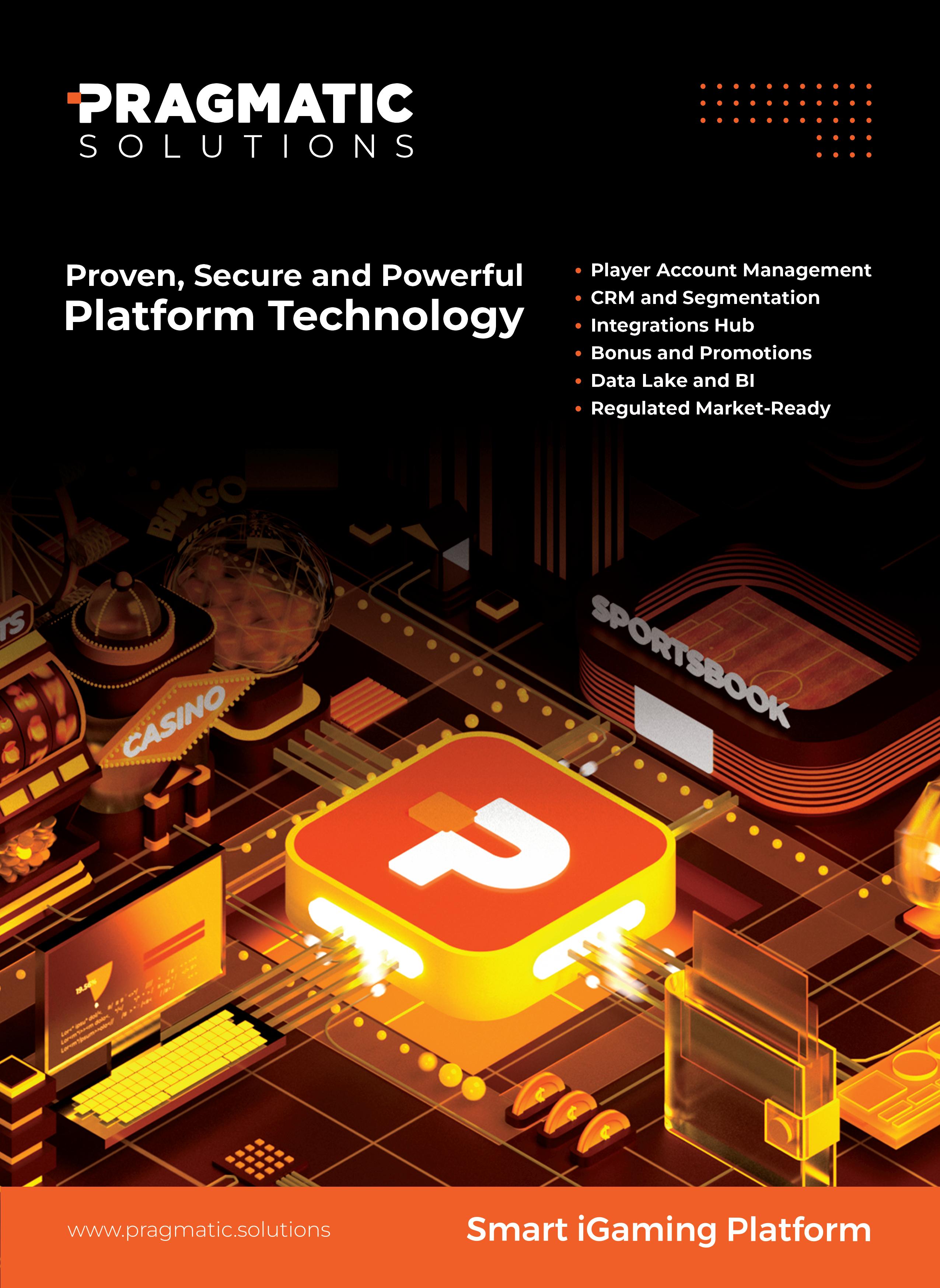
Chief Product Officer Dirk Camilleri explains why gaming is lagging behind in its pursuit for optimal personalisation – and what iGP is doing to move things forward
You have said before that iGP’s strategy is highly user centric. How do you approach tailoring your games to user habits in real-time scenarios?
A problem the industry currently has when looking into user habits is that the information produced is actually quite generic and not as personalised as many think. When you’re harvesting information
on things like demographics, gender and data flows, you can only personalise to a certain extent.
“ I don’t feel we’ve seen anything to really change the industry yet when it comes to personalisation ” “ Predictive analysis is a core step towards greater personalisation ”

What we want to do is create is a Netflixstyle lobby where we will not only consider the individual player data, but also compare with data from other similar players to showcase what you might like. Then, as you go along, the recommendations will be updated. This will be the natural progression of how player data is utilised and should ultimately make the playing experience even better. We are in the process of developing an AIpowered game recommendation engine, which will allow us to learn more about player habits and improve all our stats sources on each player.
Last year, we laid the groundwork for this, ensuring our data was organised and rich enough to be useful to our partners; a step many forget to take.
Has iGP begun to integrate any predictive analytics tools?
This is something that’s been part of our focus recently. At the end of last year, we completed a project where we set up our in-house data warehouse. We centralised all the data into one location. We then put this into action at the start of this year and we have started building the predictive algorithms that will make the data useful. This will allow us to learn even more about important player information, such as their VIP potential, as well as fraud and risk checks. Crucially, this is a key step towards bringing onboard automated and AI-powered solutions.
We talk a lot about personalisation in iGaming right now. How do you feel it is changing the industry?
This is an interesting one, because I think we have some way to go in this area as an industry. From what I’ve seen, there are companies which have tried proof of concept, but you don’t see anything really moving things along. When you compare
gaming with ecommerce and the online streaming giants, we are still lagging behind when it comes to learning more about the player beyond basic data, and this ties in with what I mentioned about our game recommendation engine. I wouldn’t say there is too much focus on personalisation per se, but we need to focus on doing it in a more refined way with better long-term results than we’re currently doing.
With regard to player acquisition and retention, how have new technologies such as AI changed the landscape for iGP?
Automation and predictive modelling have been in the industry for a couple of years now, and it’s something we’re embracing more and more. We already have third-party partners in this area, but from late this year or in early 2025, we will focus on improving our existing automation and how we can use AI to aid the data-heavy processes that AI can feed off. We select our partners based on their AI capabilities that can support us. While we already have processes in place, the plan is to use AI to enhance those automations and processes. We may have used AI already to make an immediate impact, but the focus is now on working out how to deploy it for our processes and automation.





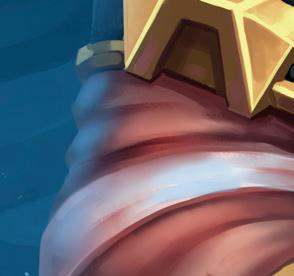




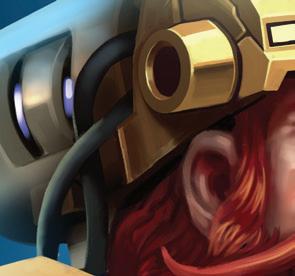





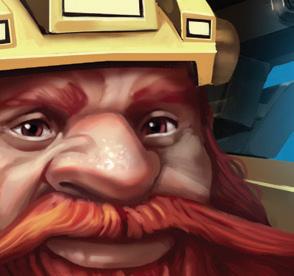








































Imagine Live’s new CCO, Barry Mahon, speaks to Gambling Insider about settling in to his role, player interaction and harnessing live dealer for the small screen
When it comes to constructing an interactive live dealer experience, how do you design your games to recognise and respond to player behaviour?
As a live casino game provider, it is key for us to develop a product suite that engages all player segments. Our games are designed to both acquire and retain all such segments. We track key metrics such as game preferences, betting patterns and session durations. This data allows us to tailor the gaming experience in real time. We also offer dedicated studios, which is another personalisation for our partners, where they can host branded tables, ensuring a unique player experience aimed at building brand recognition.
Building on that, are there any specific examples of personalisation features you feel have been effective? We have implemented various generic





personalisation features that have proven effective in tailoring the gaming experience to individual players. These features include user interfaces, customisable bet limits, multilingual interfaces, player game history visualisation etc. By incorporating features like these into our games, we aim to create a more immersive and enjoyable experience for players, driving increased retention and loyalty for our partners.
You have recently stepped into the role of CCO at Imagine Live. Can you tell us a little bit about your career history and what you hope to achieve in your new chapter here?
Before joining Imagine Live, I spent over 30 years in the gaming and entertainment industry, all on building commercial strategies that align with product development. In my new role, I’m here to drive innovation in the live dealer space and enhance our partners’ player engagement by entering true business partnerships, where the operators’ requirements drive our product development. We believe these collaborations will expand our market reach. My goal is to solidify Imagine Live’s position by delivering premium gaming and fostering a strong, loyal partner base.
How do you balance trying to achieve that live, in-person feel with ensuring gameplay is engaging in a way that is unique to a virtual environment?
Balancing the live, in-person feel with unique virtual engagement involves a multifaceted approach. To replicate the authentic casino atmosphere, we focus on high-quality video streaming and professional dealer training. At the same time, we incorporate interactive elements unique to the virtual environment, such as real-time chat. Our games feature immersive graphics and sound effects that try to bring the excitement of the casino floor to the player’s screen.
How do you hope your robot arm dealer will change the Imagine Live experience moving forward?
The introduction of our Robot Arm technology was set from the beginning to enhance the Imagine Live experience significantly. By providing a clear, unobstructed view of the actions, players feel they are sitting around the table, adding to the authenticity and immersion of the live casino experience. The Robot Arm’s precision and consistency in dealing and game operations ensure that every action is transparent and fair. This technology not only enhances the visual and interactive aspects of the games but also sets a new standard for innovation in the industry. As players increasingly seek unique and engaging experiences, the Robot Arm plays a pivotal role in meeting and exceeding these expectations. Recently, we have also added Gold Blackjack, where our partners’ players can enjoy seamless play with Robot Arm. We believe this will be a crucial development for the industry in the coming years as it transfers the land-based casino to screens.
Finally, do you feel personalisation is as far along as it should be within the gambling sector?
While the industry has made significant strides, there is still ample room for growth. Currently, many operators offer basic personalisation features, but the potential for deeper, more meaningful customisation is vast. At Imagine Live, we are committed to pushing the boundaries of personalisation by utilising the latest technology and dedicated studios to create highly individualised player experiences. We believe the future of gambling lies in our ability to understand and anticipate partners’ and players’ needs, offering tailored experiences that enhance engagement and satisfaction. The industry should continue to innovate in this area to meet and exceed player expectations.

























Industry experts answer Gambling Insider’s burning questions on all things related to nding the best solution for a sportsbook platform, including SoftGamings, Altenar, Kambi, Aardvark Technologies and Pronet Gaming






DZIANIS NIASMELAU Head of Sportsbook Product SoftGamings
ISIDOROS SIDERAKIS Product Operations Manager Altenar


Dzianis Niasmelau: 2010-2020 Risk-Management Trader Officer at Marathonbet. 2020-2024 Head of Sportsbook at SoftGamings.






LEESE CEO Pronet Gaming














With an educational background in electrical engineering and computer science, Isidoros Siderakis is a product manager who has held a range of related roles. In 2021, Siderakis joined Altenar as the Product Manager, quickly working his way up the ranks until he was appointed as the company’s Product Operations Manager in February 2024.
Alex Leese has over 14 years of experience as a leader within the online gaming sector. He joined the company in 2019 from William Hill, where he was Director of Emerging Markets. His vast experience, including managerial roles at Sportingbet, GVC Holdings, and Offside Gaming, has helped the firm win a string of new deals.












SARAH ROBERTSON SVP of Sales Kambi
ARIJUS DENISOVAS Commercial Director Aardvark Technologies
Sarah Robertson is SVP of Sales at Kambi. Having previously served as Head of Business Development at Income Access, Robertson joined the company in 2018 and is responsible for managing its global sales function and commercial strategy.













Arijus Denisovas is an accomplished professional with over 15 years of dedicated experience in the gambling industry. His journey began as a cashier at Ladbrokes, where he swiftly ascended to the position of shop manager. With a solid track record in managing both B2C and B2B businesses, Denisovas' progression from a betting cashier to a Commercial Director speaks volumes about his commitment, strategic acumen, and profound understanding of the gambling industry.

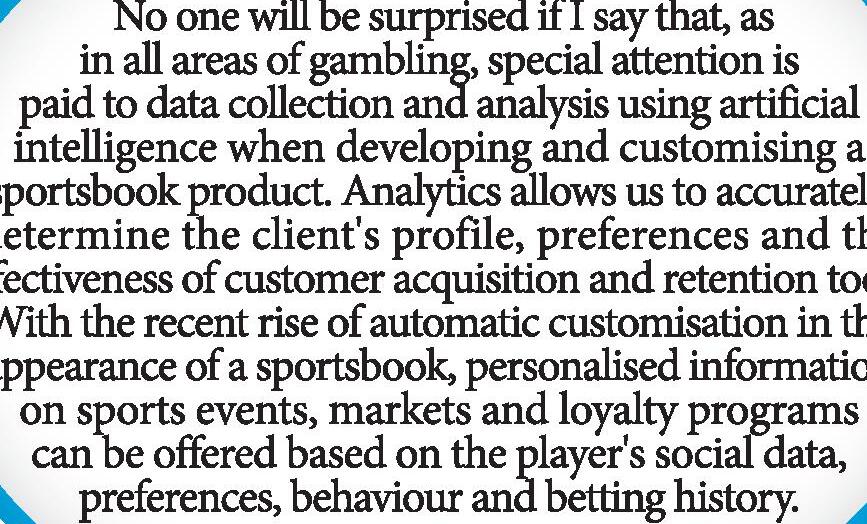






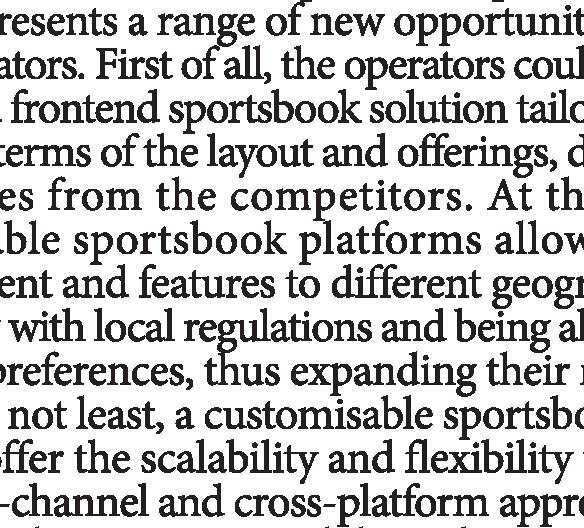


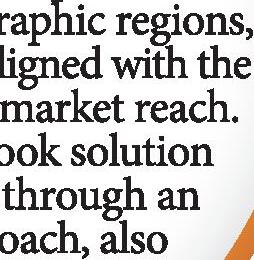


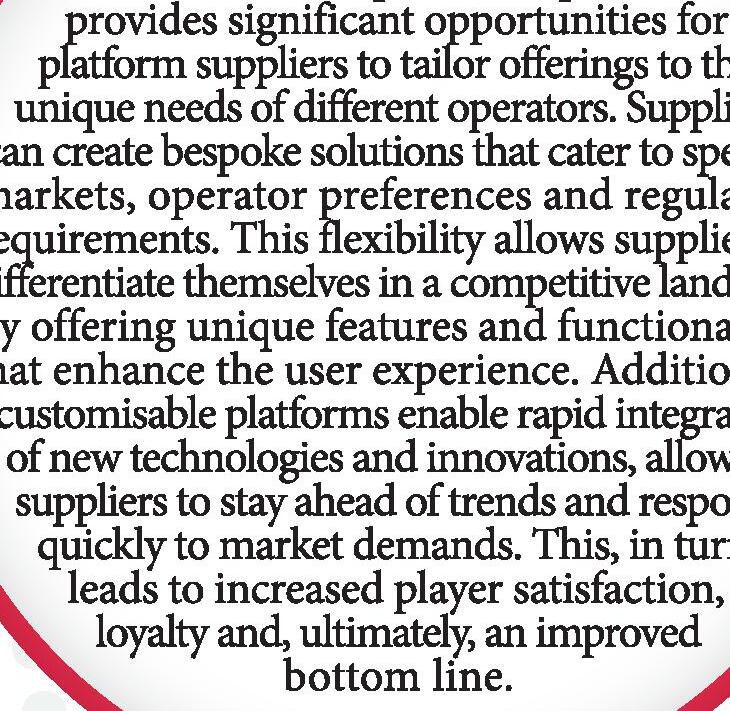


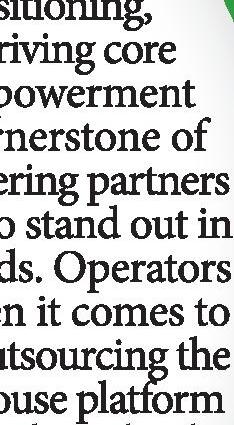


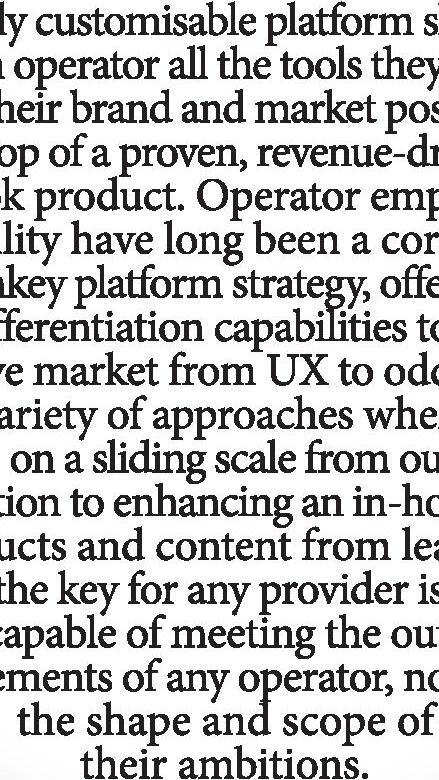







WHAT NEW OPPORTUNITIES DOES A CUSTOMISABLE SPORTSBOOK PLATFORM OFFER TO SUPPLIERS




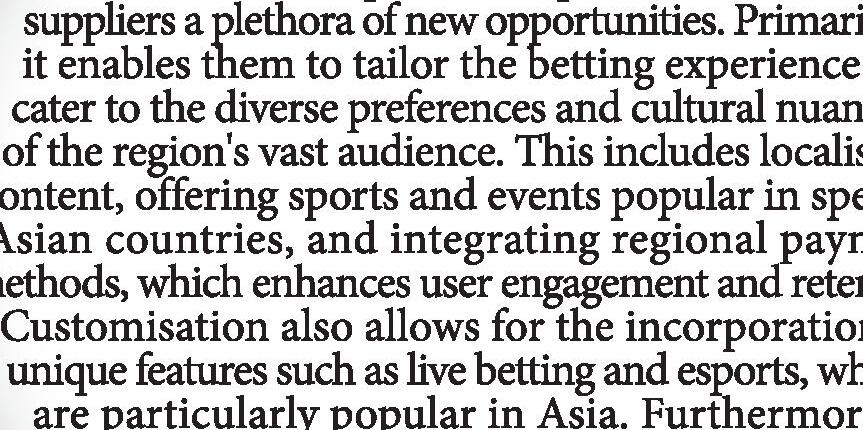





















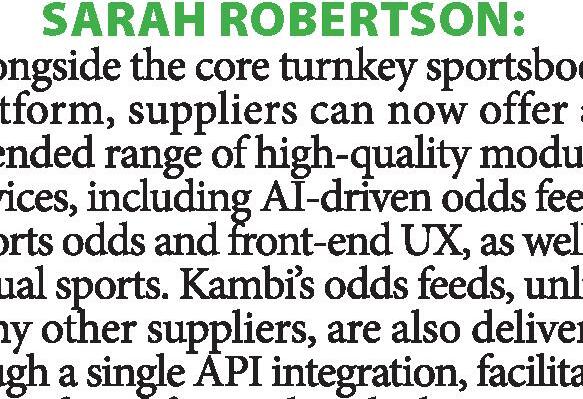












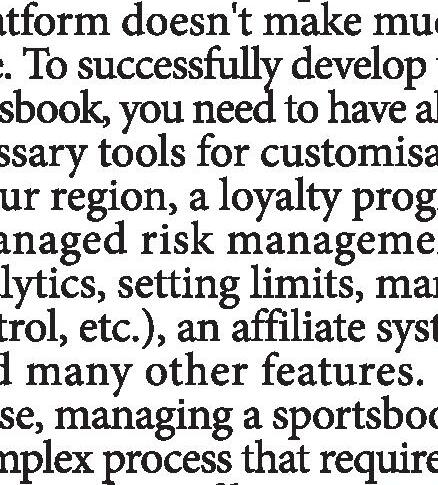
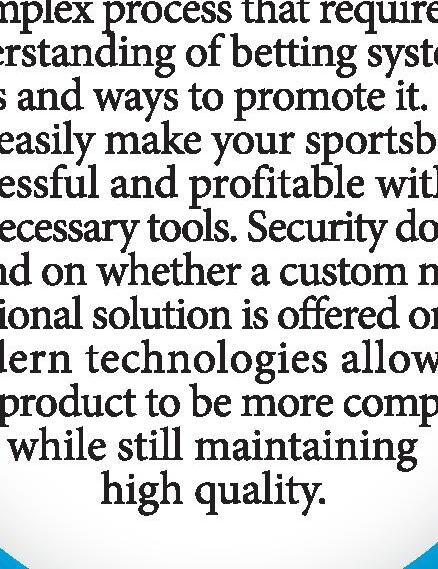

















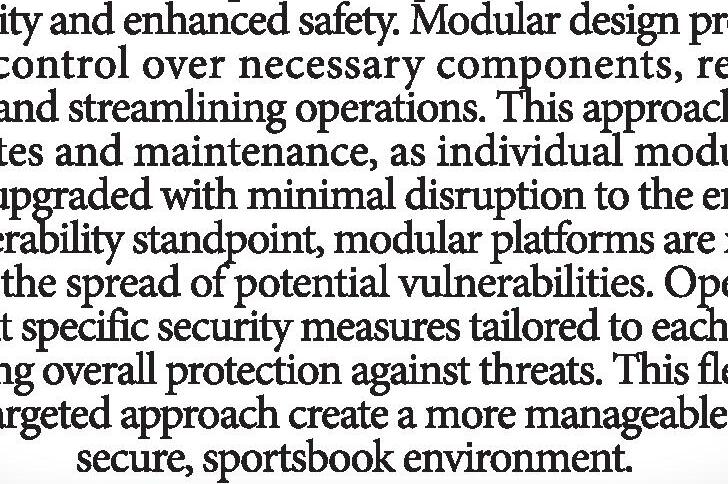
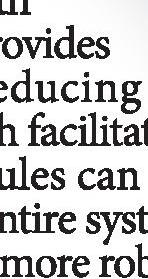


















DOES A MODULAR SPORTSBOOK PLATFORM OFFER A SIMPLER AND SAFER OPTION
















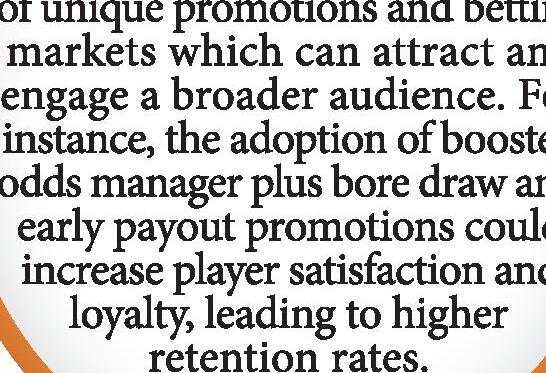


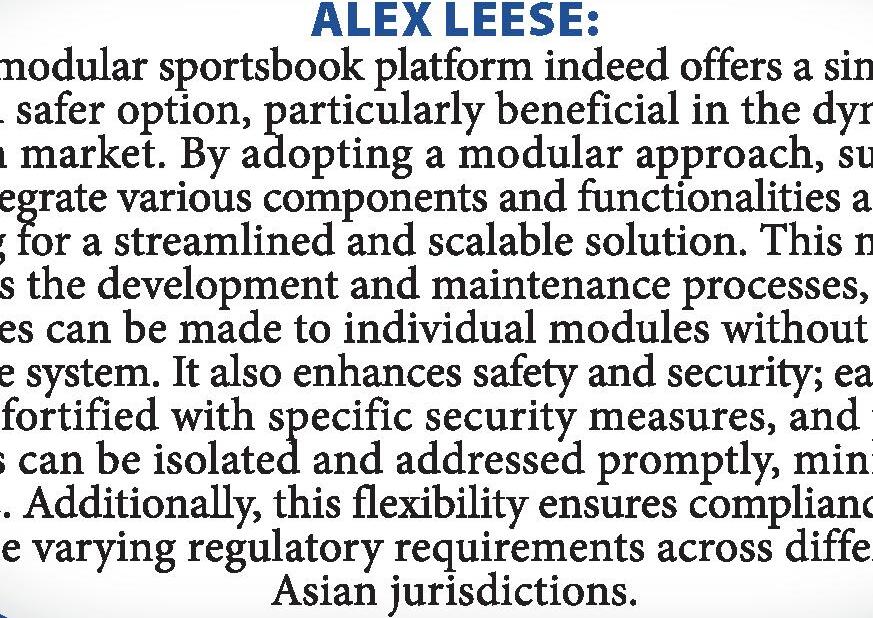
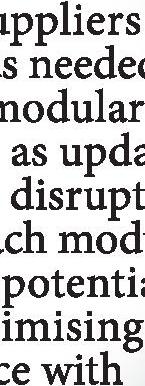
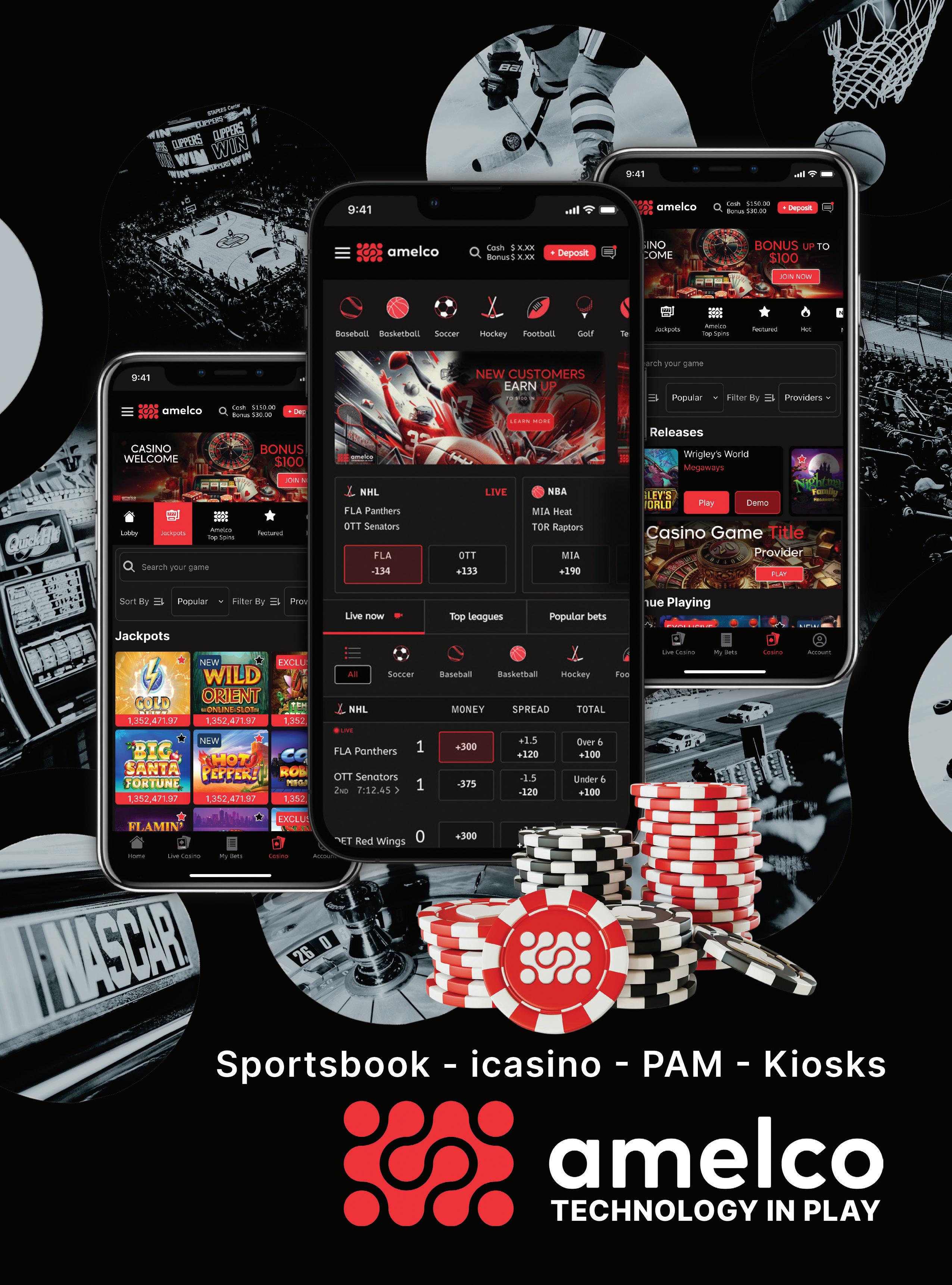



























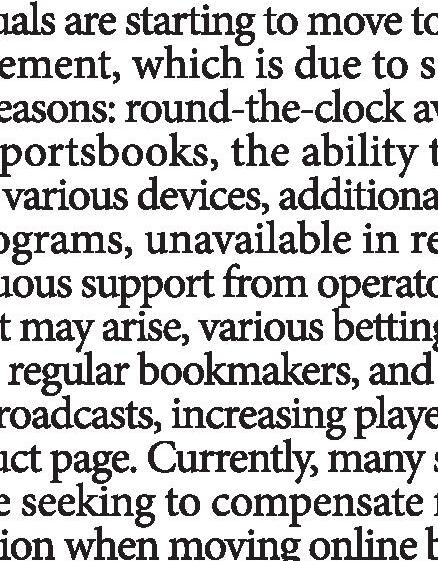





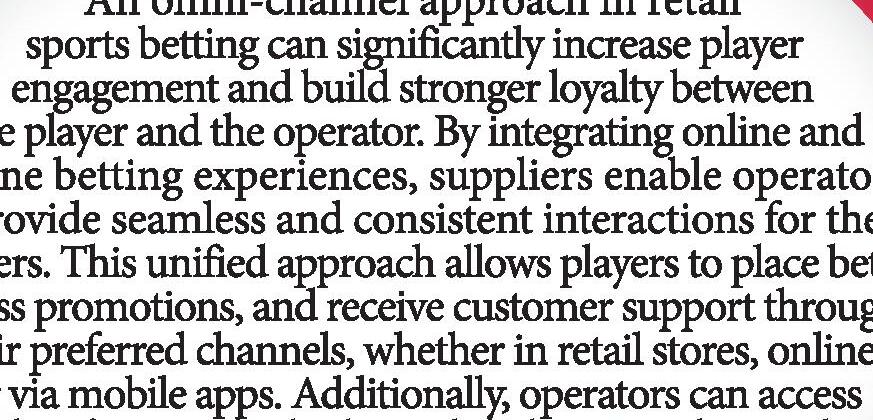


























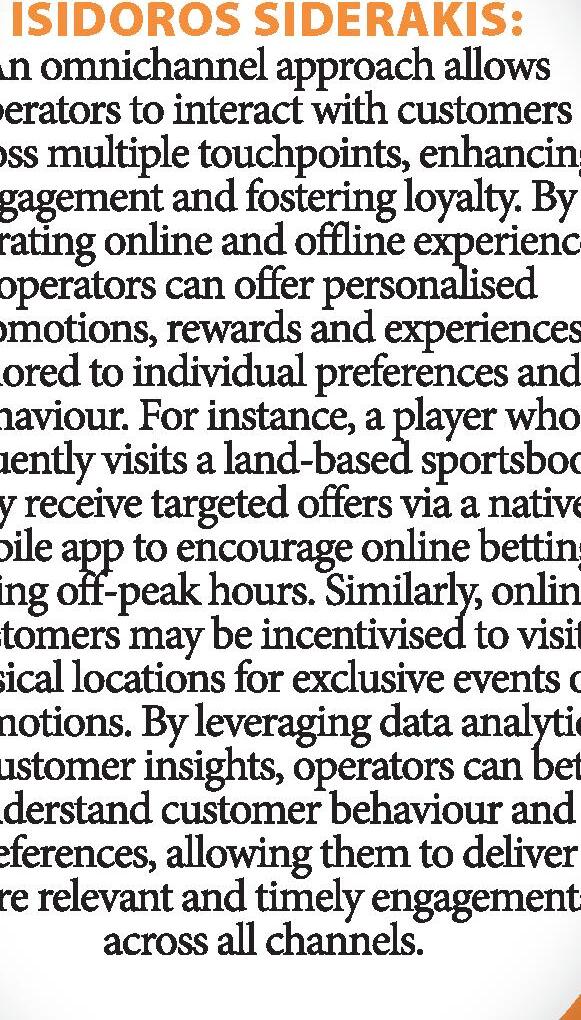






WOULD AN OMNICHANNEL APPROACH IN RETAIL SPORTS BETTING OFFER BETTER ENGAGEMENT WITH CUSTOMERS
















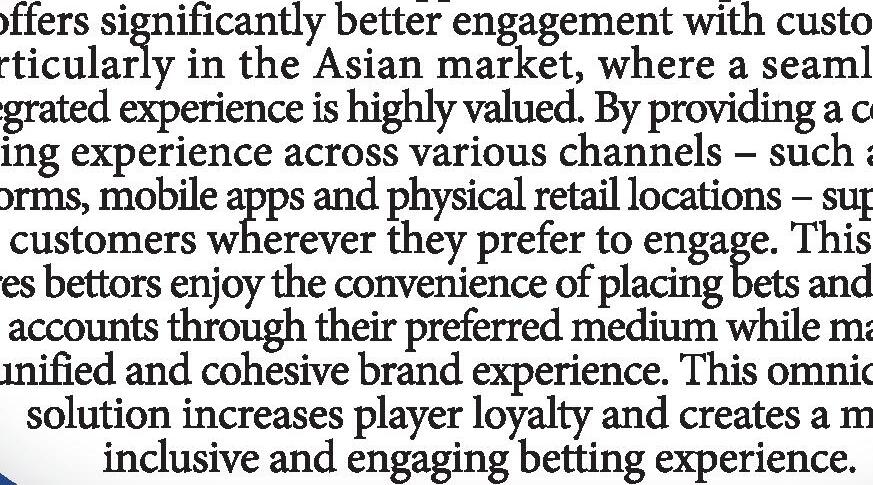



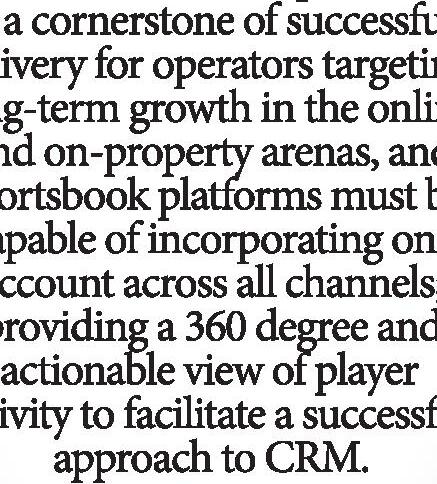


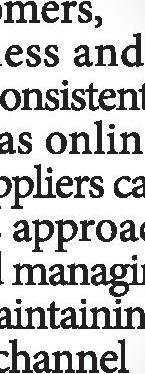

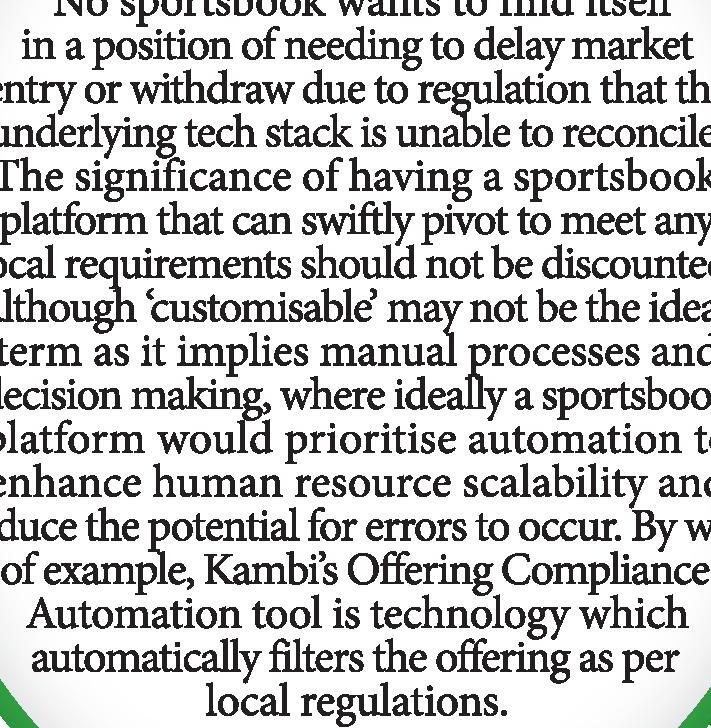






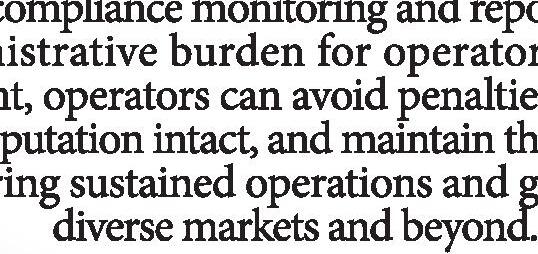

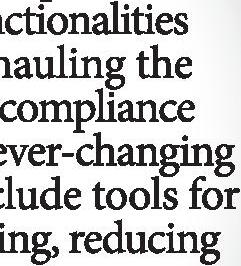






HOW CAN A CUSTOMISABLE SPORTSBOOK PLATFORM HELP TO COMPLY WITH AN EVER-CHANGING LEGAL LANDSCAPE
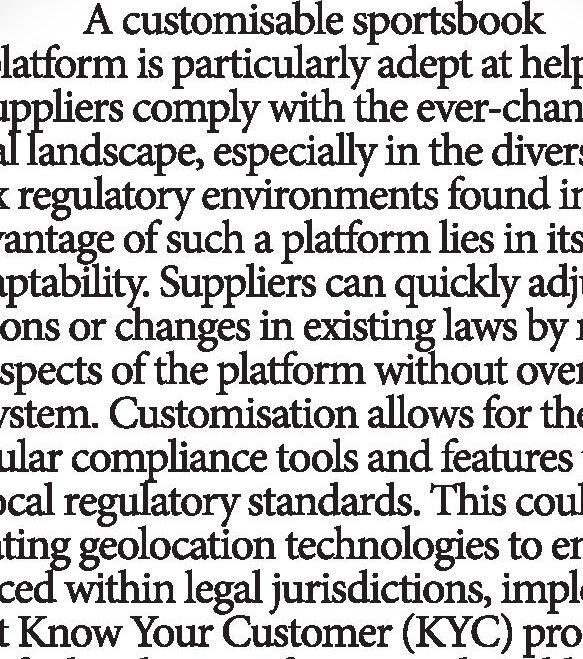






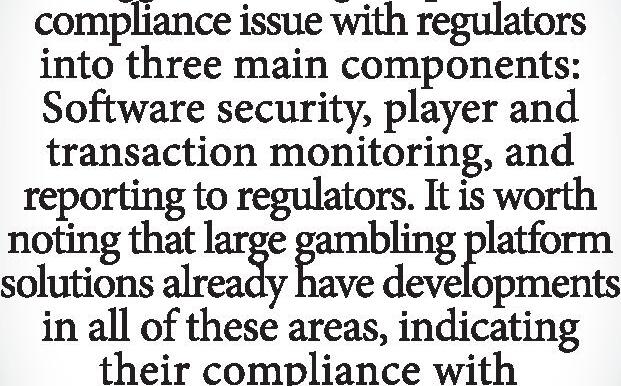



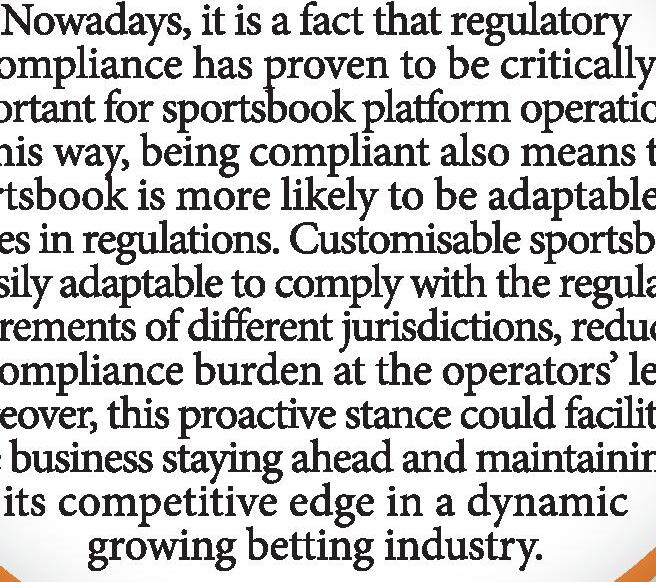























Paul Newson , Gambling Insider contributor and gaming regulation expert, provides an overview of Australian casinos’ continued regulatory issues. As NSW, mired in another regulatory inquiry, struggles to steward casino reform, the Victorian regulator declares Crown Melbourne suitable and lifts it hardened lens to the wider gaming market…
Compliments between rival jurisdictions are rare and even unbecoming for entrenched partisans, but Victoria and its gambling regulator deserve recognition for navigating the political maelstrom; and their management and handling of the leadership, governance and compliance failings identified though the 2021 Royal Commission into the Casino Operator and License.
Sans a partisan agenda, it’s rare for governments to willingly establish a Royal or Special Commission, because once unleashed it’s a sentient creature buttressed with independence, a weighty appetite, and enormous powers to forensically inquire and examine past events and conduct, amid charged atmosphere and craving for punitive action. It’s also terribly difficult to put the genie back once unbottled, or shepherd towards a politically helpful or preferred outcome. But once advocacy surmounts attempts to corral or divert an issue, and manoeuvring is exhausted, Letters Patent are issued and Pandora eagerly fossicks through the corporate underclothes. The announcement of a Royal


Commission leaves some stakeholders braying for scalps, creates uncertainty, and competing forecasts of the outlook and meandering path ahead.
The Victorian Gambling and Casino Control Commission’s (VGCCC) emphatic decision in March this year found that Crown Melbourne was suitable to operate the Melbourne casino and that it was in the public interest that the licence continue in force. Having an understanding about the compelling reform agenda and key talent involved in uplifting capability and performance, the VGCCC’s decision was unsurprising.
Royal and Special Commissions lift the corporate veil, with suasion or brute force where necessary, surfacing all manner of failings. The magic ingredients? Appoint an esteemed commissioner armed with compelling terms of reference, underpinned with unassailable independence. Then assemble a posse of senior legal minds marshalling coercive powers, and whether its misconduct in banking and financial
services, greyhound racing, aged care quality and service, or violence, abuse, neglect and exploitation of people with disability, the meticulous fossicking will surface a plethora of shortcomings, wrongdoing possibly rising to criminality and stories of human misery. This is the apex of scrutiny and, while disheartening, I am unpersuaded that any mercantile field or human endeavour could be carefully weighed and measured by such instrument – and not be found wanting.
The powerful independent monitoring arrangements established to maintain close and continuous oversight and exert control over Crown Melbourne were an extraordinary and unprecedented regulatory intervention. And while the scale of intervention is unmatched, it provided a comprehensive mechanism and pathway for Crown’s redemption. While enormously costly, the comprehensive independent monitoring arrangements, VGCCC’s stewardship and Crown’s response have re-postured it as a global leader in financial crime and safer gambling in casino
operations, and accelerated the rehabilitation of its tarnished brand.
It’s a stark contrast with the parlous outlook for The Star, Sydney. The Star is reported in recent media arising from another Inquiry as ‘leaderless and depleted.’ The Star’s highly accomplished Chief Executive Robbie Cook has departed, as it navigates the latest examination into its suitability. It’s tempting to sheet the weight of culpability for the seeming disfunction to the casino operator, but it’s perhaps prudent to pause and ask how did we get here? What explains the contrast in approaches and outcomes between jurisdictions, largely tackling the same issue i.e. shortcomings in leadership governance and compliance at a major casino operator?
On its face it’s difficult to comprehend how, after three regulatory inquiries, NSW casino arrangements remain in disrepair. However, a shorthand attempt to highlight some apparent differences in approach between Victoria and NSW might be instructive:
• In August 2019, the NSW regulator issued an instrument of appointment under the Casino Control Act to establish the ‘Bergin Inquiry’ and received the Inquiry report in February 2021. The NSW regulator had principally directed the Inquiry to look into and report on matters involving Crown Resorts, and the adequacy of its own powers into the future. The Star, the only casino operator in NSW at that time, was not the subject of the Inquiry.
• In response to adverse media concerning The Star, in late 2021 the NSW regulator issued terms of reference and appointed a senior barrister under the Casino Control Act to conduct a review of The Star’s suitability to hold a casino licence and received the Inquiry report in August 2022. In response to adverse finding, the regulator took disciplinary action against The Star: suspended its licence indefinitely, issued a pecuniary penalty of AU$100m (US$66.6m), and separately appointed a manager with full control and responsibility for the business of the casino.
• In February 2024, the NSW regulator announced it was establishing another inquiry under the Casino Control Act to look into The Star and appointed a senior barrister to conduct the inquiry.
• If the NSW Government had adopted a similar approach to Victoria and established a Royal Commission independent of the regulator, would it have comprehended the importance of inquiring and reporting on casino operations and regulatory settings in its own jurisdiction? Would an early and persuasive examination of NSW regulatory arrangements and performance of The Star have better informed NSW Government policy decisions?
• Instead of a comprehensive overhaul, the NSW Government established the NSW Independent Casino Commission (NICC), adding another piece and shuffling the already muddled board. The addition of the NICC created a third organisation with responsibility for gambling regulation, joining the Independent Liquor and Gaming Authority and Liquor & Gaming NSW. Regulatory structures move in cycles, often a back-to-the-future arrangement, and are at the whim of ministerial preference and machinery of government changes, but further segmenting gambling regulation in NSW after ruinously rationalising the function into its Customer Service Department in 2019 was a curious move.
• The independent monitoring arrangements for Crown Melbourne involved the appointment of a statutory Special Manager from January 2022, supported by an office consisting of public sector and professional advisory staff. The special manager produced regular comprehensive public reports, as well as a confidential final report on its structure, approach and activity, evaluating Crown’s progress towards its reform program.
• The NSW regulator appointed a manager in October 2022, with full control and responsibility for the casino business
of The Star; however, it does not appear to have produced comprehensive public reports on its activities and evaluation of The Star’s remediation efforts.
Regardless of whether the NSW position is viewed as a complex puzzle or an intractable problem, Victoria deserves commendation for its effective stewardship in creating the conditions for rehabilitation of Crown Melbourne and by extension Crown Resorts. While onerous, through rigorous supervision and strategic oversight, Victoria has not only revamped regulatory practices but also enabled Crown to rejuvenate its brand. This transformation has rekindled the allure and vibrancy of its entertainment and hospitality services, setting a benchmark for regulatory success in the casino industry.
Paul Newson is Principal at Vanguard Overwatch and Founder and Director of Regulating the Game, a premier gambling law and regulation conference held in Sydney and London. Paul is a Patron and former President and Trustee of the International Association of Gaming Regulators and a former Trustee of the NSW Responsible Gambling Fund. He has also held the position of Deputy Secretary in the NSW Department of Industry, with responsibility for liquor, gambling, and racing policy and regulation.
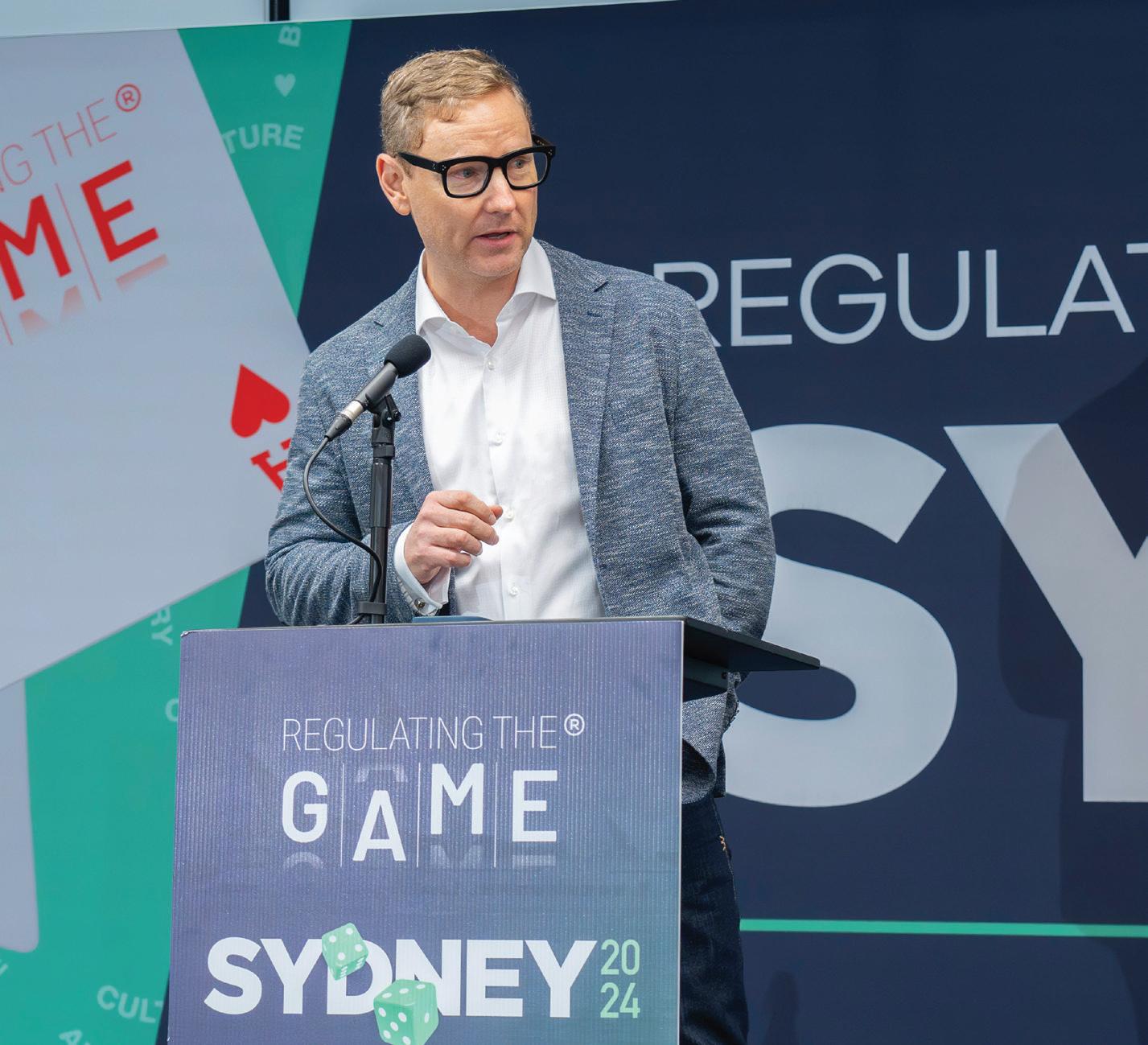
Marketing expert and new Gambling Insider contributor Hryhorii Shelest gives an overview of the importance of
In the modern world of gambling, metrics play a key role in managing and analysing gaming processes. They help casino operators and online platforms better understand player behaviour, optimise marketing campaigns and improve the user experience. However, not all metrics are equally useful. Some are crucial for achieving success, while others can be overrated and fail to provide significant insights. Additionally, some metrics have hidden, non-obvious meanings.
REG2DEP AS A MEASURE OF CONVERSION
I do not believe in the importance of Reg2Dep as a marketing metric (registration to deposit). When calculated using the classic formula, it’s important to understand that, over time, Reg2Dep will grow due to FTDs not being made on the first day (nonNDC).
Classic Reg2Dep formula:
Reg2Dep = Regs/FTD
Where:
Regs = Player registrations
FTD = First-time deposits
Thus, this indicator may not be very effective during day-to-day operations work. An interesting case can arise when traffic acquisition declines but, due to delayed FTDs, Reg2Dep begins to grow significantly.





Conversely, when a source just starts driving traffic, Reg2Dep will initially be lower but will increase over time without any changes in the acquisition approach.
Personally, I find the average FTD metric much more representative as it comprehensively evaluates not only the quality of traffic acquisition but also the overall player user flow from the visit to the first deposit.
Average FTD = Average first-time deposit of a player
However, Reg2Dep is very useful for an affiliate manager in the context of monitoring the performance of PSP methods. It effectively shows the pass-through rate of payment solutions, allows for quick decisions on stopping traffic and can be considered when deciding to change CPA without waiting for feedback from the Payment department.
OPEN RATE AND EMAIL DOMAINS
The Open Rate is a favourite KPI for email marketers, motivating them to work on the subject lines and subheadings of emails. This is indeed a crucial part of their work, enabling them to convey promotional offers to users. But its usefulness ends there. A good Open Rate does not correlate with a high percentage of reactivated users.
Reactivated users: A player who was inactive for a declared period but made a deposit and/or placed a bet after receiving a marketing communication.
operational benefit for email marketers. Although it is not a business metric, it allows real-time monitoring of product functionality – how well the email sender is working and whether email domains and servers are blacklisted.
Many metrics in gambling are borrowed from classical marketing, but some common metrics for online projects do not fit well for online casinos. For example:
Total Unique Visitors: This metric is often used by SEO specialists but is highly susceptible to multifactorial influences in gambling, making it a mediocre KPI. Traffic flow can be caused by competitor DDOS attacks, poor quality traffic acquisition, nonfunctioning key elements of the operator’s front end, and much more.
Time Spent on Site: This is another classic indicator often used in website promotion. However, like the total unique website visitors, an increase in time spent does not always lead to increased revenue. Sometimes, a long time spent on the site can indicate a confusing interface where the gambler spends excessive time finding the registration or login button, making a deposit, or activating a bonus.



Page Depth: In traditional web analytics, page depth is considered important as it shows how interested users are in the product. However, in gambling, it’s not always relevant because a player can reach a game page in just a few clicks, and part of the user flow involves modal windows that are not full-fledged web pages.

In the CRM department, it’s much more important to work on Average TO, Retention Rate and Deps/active.






Average TO = The average turnover, i.e., the total bet amount wagered by active users over a period




Retention Rate = The percentage of players returning from the previous period
What conclusions can we draw from these cases? Marketing and product are closely intertwined within the business. While some metrics are traditionally marketing-oriented, they can highlight potential product issues or evaluate its functionality as a tool that marketing works with. Sometimes, they do this much better than traditional online business metrics.




Deps/active = The number of deposits per active user
Like Reg2Dep, the Open Rate has a hidden
Hryhorii Shelest is an iGaming expert and CMO, with 4+ years of experience in landbased casinos and 6+ years of experience in online gambling.
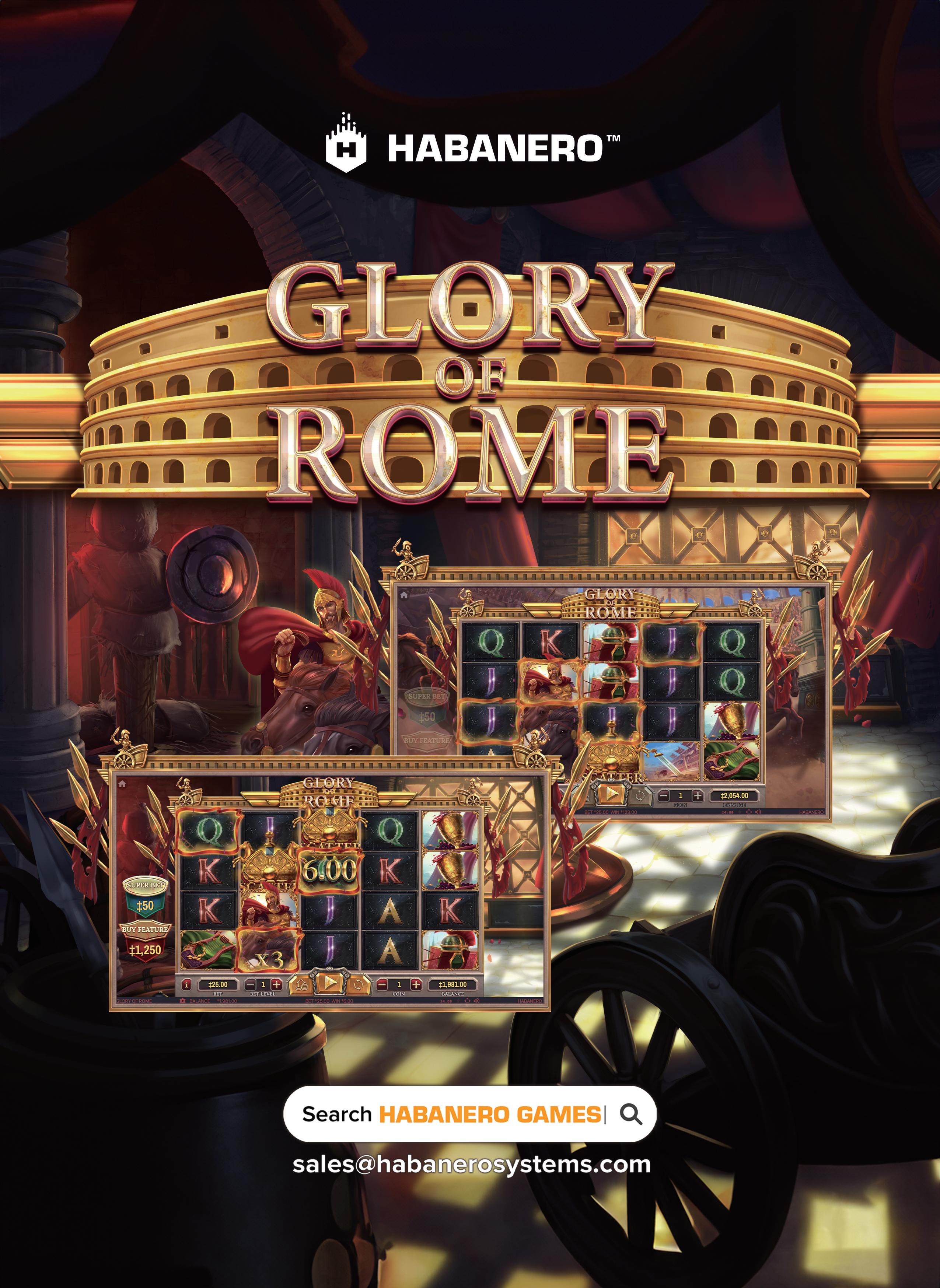

Christoph Neubauer , Head of Group CR & ESG at Novomatic, sheds light on the increasing importance of Environmental, Social & Governance (ESG) in the gaming sector and reveals measures the supplier is already implementing

Tell us a little about yourself, your role and experience within ESG?
I have been in this position at Novomatic for almost three years now. Before that, I worked in the financial sector for over 10 years. I have been involved in environmental, social and governance issues for many years and have been following the development of this area for a long time. From this, it has become clear to me that significant changes have taken place.
How do you measure your ESG indicators to ensure continuous improvement?
A topic like this is not as tangible as, for example, a financial report.
We have an annual report that contains a report on ESG that is voluntarily audited. This report is prepared annually together with the financial report. As of September 2023, we no longer have any listed bonds and are not required to publish the report on our website, but we continue to prepare internally. We have also implemented numerous initiatives both at our headquarters, as well as at our subsidiaries. These measures cover a broad
spectrum, from player protection to human rights and employee interests. Our annual reporting serves as a common basis in which we document all figures and quantitative measures. This allows us to continuously track our progress, and successes and highlight them.
How has the importance of ESG developed for gaming companies?
From a core business perspective, ESG has become increasingly important. In the past, the industry often relied on attractive images and promising texts, but without implementing significant changes. We have left that behind us. At Novomatic, player protection and the safety of the players are fundamental to our core business, so we have created a comprehensive ESG framework around these priorities, encompassing environmental, social and governance guidelines.
This framework is also essential for securing and maintaining our licences. Operating in any market requires a solid foundation and ESG issues are of huge importance today.
On top of this, penalties for non-compliance have increased dramatically, underlining the importance of maintaining these standards.
How can smaller companies put ESG initiatives in place, compared to bigger organisations (like Novomatic) who have greater resources to allocate?
I would say being small is not always a disadvantage. If you are a smaller company, focus on the opportunities you have. With fewer employees and a smaller number of operating companies, you often have the opportunity to implement projects and measures more quickly. I always compare a large oil tanker with a speedboat, but of course you can’t apply this directly to projects and processes, but neither one is always at an advantage or disadvantage.
How has the release of your Novovision™ Casino Management System gone for the company so far?
Excellent, we have some 30,000 EGMs worldwide currently running on the system and the numbers are constantly growing. At the core of the Novovision™ access solution is a biometric registration process, which means you produce a template from the customer’s fingerprint or facial scan. Once the initial identification, blacklist checks and registration of the customer are completed, they can enter the premises fast and easy with a quick fingerprint or facial scan, where their unique and untransferable biometric characteristics are checked against the template in the database. So you know exactly who is coming, who is leaving and who is joining the game. It’s a very strong tool to facilitate player protection and responsible gaming, by ensuring your guest is an adult and not a minor, and that they are legally permitted to take part in gaming.
much more reliable than a traditional player’s card. Novovision™ is a powerful tool, which goes far beyond biometrically supported access solutions – it is a fully fledged casino management system that fulfils GDPR compliance, KYC compliance and AML regulations and it’s also audit-proof. So, with Novovision™, you can prove your results to auditors and all other relevant entities in the right way.
How did you react to the new CSRD (corporate sustainability reporting directive) for EU companies from 2025? The CSRD and EU legislation represent major challenges. We are already preparing for implementation for the fiscal year 2025. Not an easy task, because there are several hundred data points, hundreds of topics and subtopics, disclosure requirements and so on. And this runs through the entire Novomatic Group. It’s a huge amount of work, but we’re managing it step by step and I’m sure we will be successful across the group.
With all the departments you have mentioned, is it difficult to streamline the implementation of new directives across all your teams?
It becomes more difficult the larger the organisation becomes, because you may already have information in a different organisation, but we have to transfer that to the new framework and build it from scratch.
Can you tell us all about your latest photovoltaic installations in Austria? It represents a very important topic and we are increasingly focusing on green energy in the future. We have already installed photovoltaic systems in a number of smaller markets












and subsidiaries in our core markets. This year, we will be commissioning the largest rooftop photovoltaic system in Lower Austria, with around 5,000 photovoltaic panels on around 20,000 square metres at our headquarters in Gumpoldskirchen. We have over 2,000 megawatt hours of peak power here. The new system will enable us to save hugely on CO2 emissions, over 1,100 tons per year. As we are not only an operator but also a manufacturer, we have our largest production facility in Austria, where our headquarters are located, and we want to use the green energy generated by our plant for production.
You mentioned earlier that, in the past, there were plenty of pretty pictures and words without too much action. For any company looking to step up their ESG strategy, how would you advise on the best way to actually make change, rather than just making it look like change? I would say that the most important progress has already been the new regulations. They really focus on transparency. With the new requirements, every major market player has to be transparent on key settings and issues. I believe we will be seeing significant progress in these areas coming out of this as well.
Are there any final messages you’d like to conclude with?
Looking at the ESG sector, I would say we are facing major changes and the challenges they bring. But, in my opinion, you can only improve from challenges. By recognising weaknesses, you can use these challenges as a turbo to emerge bigger and stronger. I am happy to be working in this field and all of us can play a part in contributing to this important area.



























You’ve already touched on this in that last answer but, on a wider scale, what role does biometrics play at Novomatic? For us, it’s very important to know who our customers are. Are they above a specific age? Are they above 18 years or above 20 years old in the respective legislations? It’s very important to ensure that our customers are above the legal age for taking part in the gaming offers in our operations. Biometrics guarantee the unique identification of customers, fast, easy and discreet – and are

















































































































In every issue, Gambling Insider commissions guest columns and interviews with people at the heart of the gaming industry – to discover more about the challenges its leaders, pioneers and innovators face. These contributors form The Insiders





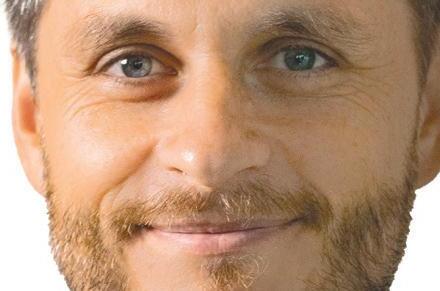










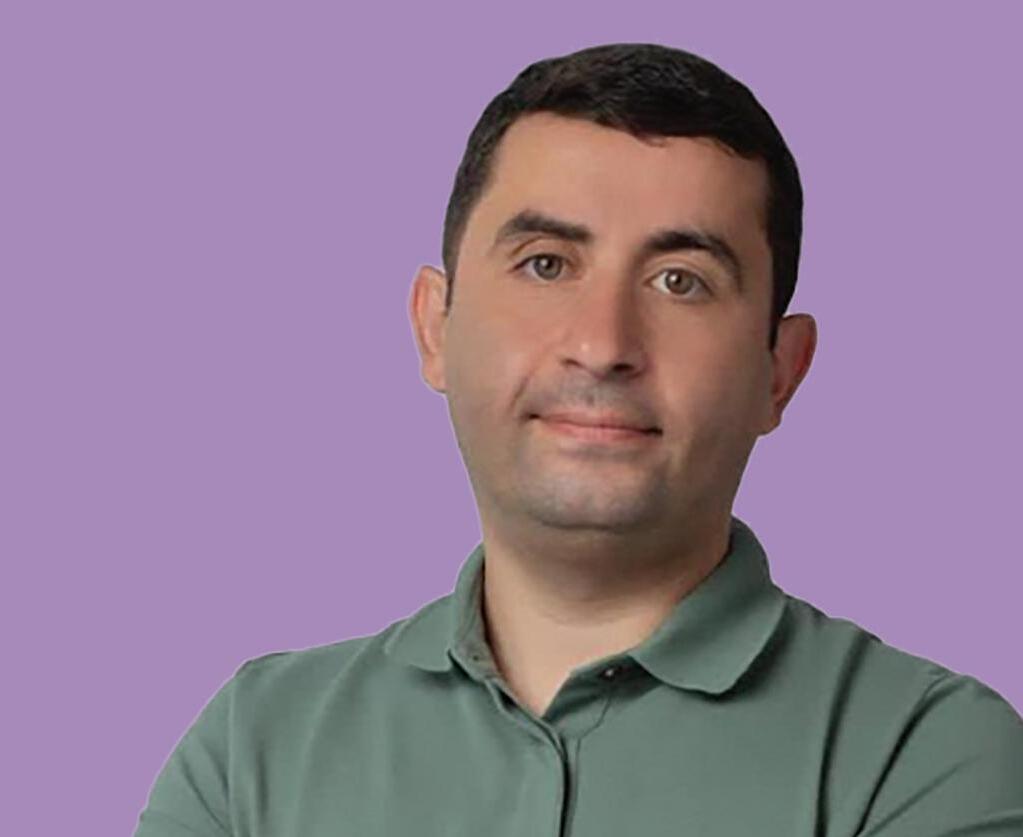





DIMA REIDERMAN
INTERBLOCK







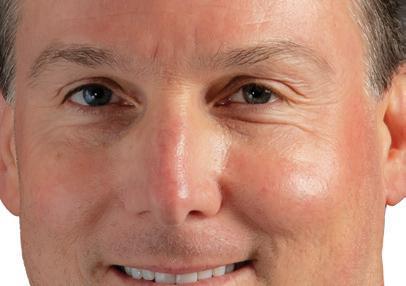
















Greentube CFO Michael Bauer speaks with Gambling Insider about the supplier's new platform, ‘Mynt,’ and its plans for the remainder of 2024






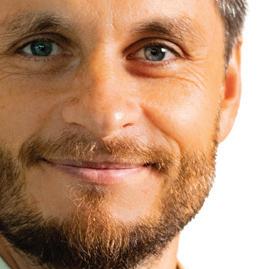






online casino or sportsbook in the market. Most of the updates we have seen so far relate to operations and not so much the products themselves. It will be important to establish reasonable timeframes for moving the as-yet unregulated offer into the regulated market and grant grace periods to operators to fulfil all new requirements. Companies will need time to implement specific local requirements into their platforms, as will suppliers, to get their games certified and compliant.

You have operations across the globe, but how have emerging technologies like AI helped you differentiate your products across regional markets worldwide?
AI continues to prove beneficial across various business sectors, especially in producing graphics and, to a certain extent, in our first-level customer support operationally. Having said that, I think we are still only at the beginning of a much more widespread use of AI. To better understand the possibilities and challenges AI delivers, we have created an internal expert panel that applies a more detailed focus on the topic. Coming back to the actual question: so far, AI doesn’t understand slot production enough to be able to truly create localised products. But when you look at the adoption speed of AI within the last year, I don’t think it will take too long until it will be really helpful in producing localised slots as well.
I have seen you discuss Brazil as a potential for your LatAm strategy in the coming months; how have you reacted to the latest updates in its legislative structure?
At the moment, we do not intend to operate our
How do you hope your experience in the North American and EU markets will aid your expansion plans in newly emerging LatAm markets?
Our parent company Novomatic has been present in LatAm for a long time. That means we bring a certain level of experience to the table – at least from land-based. In addition to that, I’m confident we will be able to identify key mechanics and themes for these markets as well, and provide games that cater to local tastes. Last but not least, it is important to not forget the logistical aspects of game supply to a regulated market – it is a bigger
"While it is good to establish a framework for advertising as well, I see it as critical to limit influencers from promoting specific games"
challenge to serve a fully regulated market than a pure.com operation.
Your new platform Mynt is about to go live in South Africa; how do you hope the platform will serve the needs of operators in this and any other future markets it may be added to?
We are currently preparing Mynt and our games for market certification. As the platform is both cloud and on-premise ready, we can serve both remote markets and those that require a local setup. Additionally, we will bring new exclusive studios and games to the market via Mynt. Gamification features and jackpots will be available and will help operators entertain their players.
What was the thought process behind debuting Mynt in the South African market?
When we are tackling an entirely new market, our strategy going forward is to use Mynt and not the old stack. Looking at LatAm, for example, we plan to use the aggregation platform of our Italian subsidiary Capecod to combine games from our old stack, Mynt and Capecod combined to serve markets with the biggest possible collection of group content. An interesting additional detail here is that Capecod has focused on developing crash games for the last half year. That means we will have slots, video bingo, table games and crash games on offer.
Outside of the burgeoning LatAm market, what are Greentube’s main goals for the remainder of 2024?
We are still working on going live in Connecticut and Pennsylvania, which is now scheduled for Q3. Looking at established markets in Europe, our goal is to gain additional market share and increase our presence in all regions we have entered so far. We are looking at a busy second half of the year.



























































































Playtech VP Sales and Customer Development Sergey Harutyunyan speaks to Gambling Insider about live casino, globalisation in gambling and more
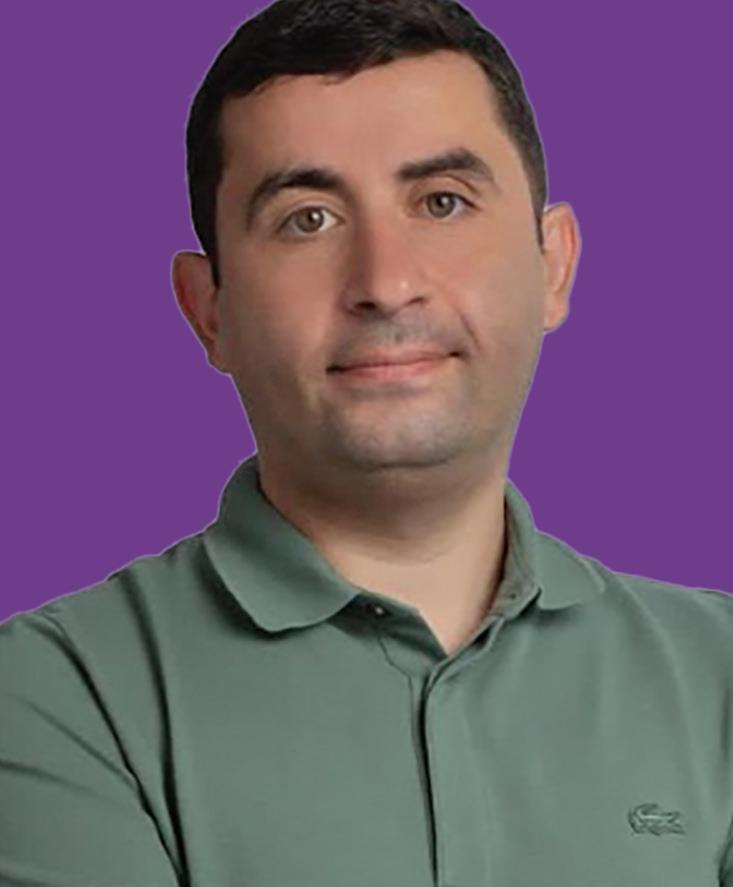
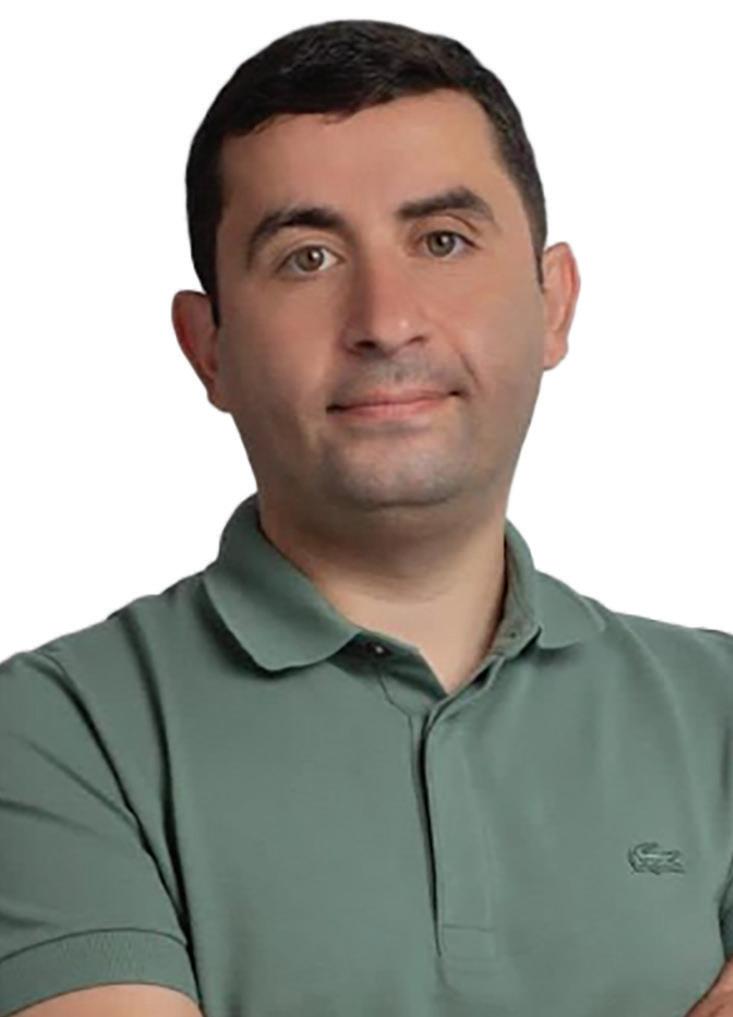
What have been some recent developments for Playtech?
We’ve had a great first half of the year at Playtech, particularly celebrating a milestone for the business – Playtech’s 25th anniversary in the industry. We’ve entered new markets such as South Africa through our partnerships with Tsogo Sun, Hollywoodbets and Betway after growing demand for iGaming options in the region. Playtech has also signed high-profile deals in existing markets.
Across different verticals, our teams are continuing to develop games, particularly in response to increasing appetite for live casino in a number of markets, especially the Americas. We are continuing to deliver innovative solutions for our licensees and invest heavily in our technology. We’ve got plenty more to come later in the year, too.
The main theme of this issue is personalisation. What role does this play for Playtech?
Personalisation is a key aspect of Playtech’s strategy, and we usually focus on three different types of personalisation areas, including safer gambling personalisation and market/player personalisation.
At Playtech, we understand the importance of promoting responsible gambling and BetBuddy is our responsible gambling (RG) analytics platform, built around data mining and predictive analytics. It combines the latest research into gambling behaviour patterns with the power of artificial intelligence, delivering a sophisticated solution to proactively identify and engage with players who might be at risk.
We also recognise the importance of adopting a personalised and localised strategy to ensure the content we provide our licensees, and their customers is the best gaming content for that market. Our local teams, equipped with strong market knowledge, collaborate with our development teams to create games that resonate with the local player base. This could mean incorporating popular themes, characters, or cultural elements into our games.
How important are live casino games to Playtech?
Live casino is one of the main verticals in our product portfolio, and one of our most exciting growth areas. Playtech’s Live technology brings the real-life casino experience to the online environment; and we’re continuing to build momentum following the release of several live casino games over the last few months, such as Sticky Bandits Roulette Live, Mega FireBlaze Lucky Ball Live, Cash Collect Live Roullette and Jumanji: The Bonus Level. All of which have been hugely successful and well received by our licensees across markets.
We’ve taken advantage of the rapid market expansion in live and we now have three live casino facilities open in the US, having recently opened one in Pennsylvania. But we’re not stopping there. As demand for live studios continues to accelerate, we’re investing in both physical infrastructure, and the development of new and exciting live casino content for our licensees across the globe.
Playtech has secured severalof partnerships so far this year across Europe. But which of these have been most important to the company? We’ve been really pleased with the
number of new partnerships we’ve already announced this year and equally important for us and our licensees is how we’ve extended some of our current partnerships. For example, across Europe we have signed new deals with 10bet in Sweden, Boylesports in the UK and Ireland, and securing the winning tender in a rigorous Public Procurement Process for Live casino games for Veikkaus in Finland. I’m sure there is more in the pipeline for later in the year, as well.
Finally, could you give us an overview of the growing globalisation of the gambling sector from your perspective? This has grown quite significantly this year. Growth in the market is primarily driven by regulation in markets at the beginning of their journey, such as Brazil, Canada, South Africa and the US. We were particularly pleased to see Brazil take initial steps towards legalising online gambling this year. LatAm has strong structural drivers towards regulation, so we’re pleased to see this market develop, and we look forward to building on this as markets across the region continue to regulate.
In the US, the regulatory landscape is evolving well. A year on from signing our landmark agreement with Hard Rock Digital, we’re continuing to establish and grow our presence by delivering our innovative content to even more states. Everyone has seen the market expand considerably in the last couple of years, and we’re growing our offering in response.
It’s also been important for us to capitalise on the growth in emerging markets in South Africa. We recently signed an exciting deal with Hollywoodbets, which we’ve seen go from strength to strength so far this year. We expect to see the sector’s globalisation and trend towards regulation continue over the next few years. Further steps towards regulation in the US and Brazil will be welcome, and we expect other countries such as France to consider legalisation in the next few years.
Pragmatic Solutions CEO Ashley Lang discusses the main considerations operators must have when choosing their iGaming platform
How important is it for a business to have the right iGaming platform?
Platform selection is arguably the most important product and technical decision leadership teams will make – it can define the destiny of the business for years to come, and separate the winners from the losers in a competitive market. The Player Account Management (PAM) platform acts as the heart of the technology estate of the operator and, as such, its functionalities can define the capabilities of the operator’s technology stack. If not chosen correctly, the PAM platform can profoundly impact the ability to execute business objectives successfully and hamper the ascending operator from scaling beyond the competition.
Choosing a platform provider goes far beyond an evaluation of features and capabilities against the operator’s current requirements. It is comparable to a marriage in that the operator is entering a long-term relationship with a strategic partner with whom they will build their future. As with choosing any long-term partner, it is essential to understand their history and values (how did they get to where they are today and how do they conduct themselves), their commitment and contribution to the relationship (what do they bring to the table), and their vision of the future (does it align with yours?).
Could you give us a brief overview of your platform selection guide?
The goal is to assist key decision makers – senior stakeholders and board members – in the critical decision of upgrading their PAM platform technology by providing strategic considerations that go beyond the usual feature comparisons. One key point we advocate for is for operators to start by outlining their business objectives for the next two to five years. Rarely will these objectives be technical (although they may be dependent on technology). Their strategic business objectives should be the compass points that all secondary implementation decisions are weighed against on their value to positively impact successful execution,
minimising cost and risk. With this as the foundation, we then set out other key factors to consider, with technology positioned as the enabler of commercial business objectives rather than the development of technology itself as the business goal. This concept alone is often a very powerful reflection point for senior stakeholders and opens their minds to see the platform technology landscape differently.
How do an operator's business goals distinguish which PAM platform is best for them to use? It is not just about which PAM platform is right for the operator, but it is equally about which PAM platform provider is the right long-term technology partner for the operator. Technology is ever-evolving and ours is a very fast-paced industry, with diverse and differentiated regulatory requirements across various markets. What meets an operator’s requirements today may be obsolete or inappropriate for the requirements and opportunities that emerge tomorrow.
The PAM platform technology must always be at the service of the operator’s business goals. To do so, it is strategically critical to prioritise an evaluation of the capabilities of the platform strategy and partner to respond (now and tomorrow) to the demands of the market. In this sense, it is crucial to evaluate the velocity of development possible by a strategy/partner, and the expertise and loyalty of key senior engineers involved in the platform’s lifecycle.
Beyond a feature comparison exercise, the questions to ask are: Who is the right technology partner? Who is strategically aligned with my business objectives? And who has the core technology and development capabilities to forge a longterm partnership towards mutually beneficial commercial success?
What should operators consider when choosing their PAM platform? We strongly advise operators to think of it as


a strategy decision, considering the platform providers’ goals, current and future capabilities, and type of relationship they can offer. In this sense, it is essential to deeply evaluate the platform design architecture. At Pragmatic Solutions, we present a modern, hybrid approach that frees operators from the restrictions of single-vendor agreements and monolithic technology stacks, and offers them licensed core platform technology in an open format, supported by elastic development resources to service operators’ forward requirements.
We call this option the “CPU model,” a PAM platform that, like a CPU in computing, allows for the integration of varied components –be it third-party services or proprietary technology – without limitations. Such flexibility is indispensable for tailoring offerings, swiftly incorporating superior third-party products, enhancing the user experience and gaining a competitive edge. Ultimately, the selection of a third-party PAM platform, is a strategic alliance. We commit to a partnership that prioritises stability, scalability and the rapid response to the needs of operators.
Gambling Insider speaks to Hasmik Gevorgyan, Head of Product & Integrations at Relum, about how the company is helping its partners stand out in the market

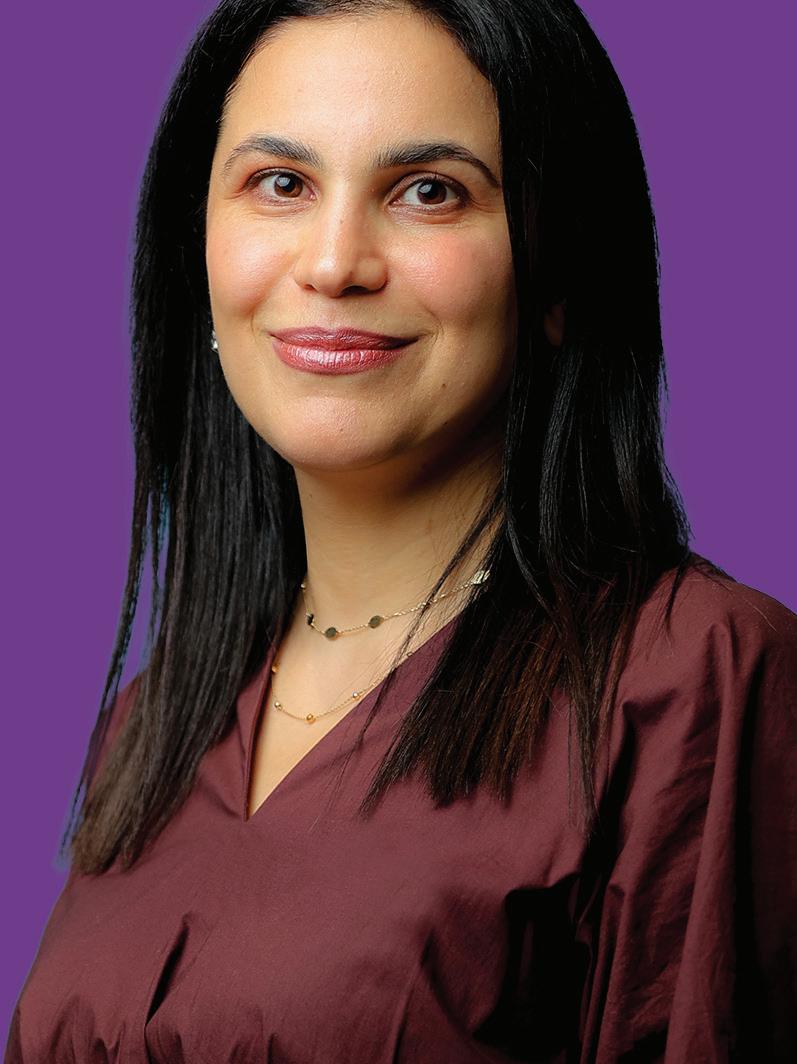
How does Relum help its partners maximise their offering?
Relum’s strategic focus is centred around the ‘casino engine,’ a key component of our content and platform. This casino engine is not just a tool, but a driving force behind our product and roadmap. Our dedicated product team is actively exploring various scenarios and solutions to boost player activation, engagement and retention metrics, which are levers for revenue growth. We are also developing a range of innovative promotional tools to equip operators with diverse strategies to play with experimentation and find working scenarios to increase revenue.
Analytics play a crucial role in B2B products, providing valuable insights into business performance and offering detailed information on critical areas. In line with this, another focal point of Relum’s product offering is analytics, which encompasses our reporting tool. We are
dedicated to continuously enhancing its analytical capabilities, ensuring it covers vital financial metrics, content performance and insights about promotional campaigns.
Can you explain your Partner Success Service?
One of Relum’s client solutions for casino partners is our Partner Success Team. We offer a holistic product solution and service support. As mentioned, we provide partners with ongoing service support, content and toolkits after the post-integration launch. The Partner Success Team provides strategic planning services covering operational and marketing areas for casino gaming content mix growth opportunities. Typically, this can include new player acquisition, activation, retention, reactivation, marketing campaign planning, ROI forecasting, marketing and business milestone recommendations the partner would require.
In such a congested market, how can operators retain players?
It cannot be overstated how crucial it is to know your customer audience. Player data analytics is the linchpin in providing a point of difference. By
"It cannot be overstated how crucial it is to know your customer audience. Player data analytics is the linchpin in providing a point of difference"
analysing player behavioural data, marketing teams can significantly enhance their techniques. They can achieve this by delivering more relevant content and promotions to the player. It is vital to understand the key player drivers to unlock further insights and this can be done using Relum’s analytics to review preferred gaming content, track engagement metrics and promotional campaign activity and so forth.
How key is game personalisation when tailoring to player needs?
As highlighted earlier, the strategic use of behavioural player preference data is not just a tool, but a competitive advantage for any digital business. In a market where we are all vying for players’ attention, this data becomes the key to unlocking their preferences and delivering experiences that truly resonate. Game personalisation, therefore, is not just a feature, but a strategic imperative for enhancing game sessions and experiences.
Every consumer/player yearns for a brand that not only caters to their needs but also understands their emotions. Game personalisation, in this context, is not just a layer in the process, but a powerful tool for building this emotional connection. It’s not just about customising the product, but also about personalising the experience based on factors like the time of day, day of the week, game session, device use and more.
What can we expect from Relum in the second half of 2024?
Our focus is on continuing to add the bestquality gaming content from studios with regional appeal in growing markets such as Latin America, EU and other target regions. We will also continue to develop our platform’s promotional toolkit functionality, allowing for more streamlined marketing operations with the partners’ casino team, to support their performance marketing processes and revenue goals.
Interblock Global CEO John Connelly speaks to Gambling Insider about the company’s move into the online space and the differences with more traditional offerings
Interlock is finally entering the online space soon. Could you tell us a bit more about that move?
As you know, Interblock is owned by Oaktree Capital and, as part of that partnership Oaktree Capital has also acquired a live streaming online gaming company, a little over a year ago; whereby Interblock is intending to distribute its content via that other platform and technology stack. Beginning in the US with Caesars, BetMGM, FanDuel and then expanding into Latin America, and the rest of Europe. Interblock is excited that, by the end of this year and for the first time in our history, we will be providing our content online in a live streaming format. Players will be able to play Interblock content with a camera in either a casino within a casino environment, on a casino floor, or within a studio environment in regulated markets, so that’s one component of our strategy.
The second, which is more traditional in nature, I would say more historical, is the remote gaming server approach, where most companies have their servers either in the Isle of Man or in Malta and they deploy content from a remote gaming server
to various B2C sites and regulated markets around the world. We will, in parallel, also be launching that by the end of the year. So, both the remote gaming server approach and a live streaming approach.
When you do go online, will your traditional ETGs remain the focal point of the business, or do you think you’ll move slightly away from that?
No, Interblock first and foremost is and has been a leader with electronic table games. That’s our primary focus as a company. With that said, we continue to expand, innovate and broaden that ETG scope on casino floors around the world, and I think we will continue to broaden that scope at this year’s G2E in Las Vegas, surprising people and bringing those concepts and innovation online. So it will be as this omnichannel discussion continues to proliferate, we will be taking the Interblock traditional gaming content that players are used to seeing in various forms, into the online space.
The main theme of this magazine is personalisation. And so, we were wondering, what role will game personalisation play when you do go online?
"My feeling is that the traditional casinos have far more leverage and power that is yet to be utilised and when that comes to fruition the land-based casinos will be driving this omnichannel evolution"
There are dozens of theories, and I call them theories because nothing's really been proven at this point. But, personally, I feel that the importance of the traditional casino space relative to the online world, at least from my perspective, will become emphatically more important as the omnichannel evolution continues. The ability of players to migrate between online and a traditional casino floor and vice versa will become much more user friendly and I think much more common, both from a player demand perspective and quite frankly from a content perspective, and obviously content tends to drive demand. So, with Interblock at least believing in that theory, we are aggressively continuing to install all of our electronic table game products around the world and our innovation protecting it both from a traditional and the online perspective.
And then by the end of this year, we want to begin that endeavour into the online space, creating that omnichannel from a traditional




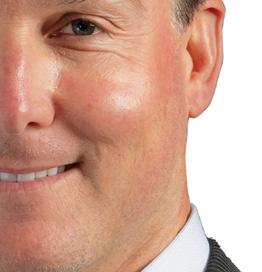









casino floor towards the online space, rather than the online space towards the traditional casino floor. My feeling is that the traditional casinos have far more leverage and power that is yet to be utilised, and when that comes to fruition the land-based casinos will be driving this omnichannel evolution; versus the online space coming down into the traditional casino space and driving the decision making.
Looking more at land-based casinos, as you mentioned, what differences have you noted since Interblock expanded further into the tribal gaming market?
There’s been a lot of discussion about traditional casinos and the non-tribal versus tribal perspective. Quite frankly, it fascinates me because I think whether it’s a tribal casino or a non-tribal casino, it’s a casino in the traditional space with very similar demographics and a very similar product offering amenities. So I personally have a tough time delineating between a tribal casino and a non-tribal casino. I think we see both areas of the traditional casino space very synergistic, both best-in-class and both very similar in product offering and demand, from our perspective as an ETG supplier.

AAardvark Technologies www.adv.bet
T: +370 640 50001
E: sales@adv.bet
Aruze Gaming
www.aruzegaming.com
T: +1 70 2361 3166
E: sales@aruze-gaming.com



BBBIN www.bb-in.com
E: service@mail.bb-in.com
bet365 www.bet365.com
T: +44 80 0028 8365
E: support-eng@customerservices365.com

Betradar www.betradar.com
T: +41 7 1517 7200
E: sales@betradar.com

BtoBet www.btobet.com
E: sales@btobet.com
BetConstruct www.betconstruct.com
T: +44 20 3709 9010
E: sales@betconstruct.com


CContinent 8 www.continent8.com
T: +44 16 2467 8888
E: sales@continent8.com

DDigitain LLC
www.digitain.com
T: +3 74 6070 0400
E: info@digitain.com


EEveryMatrix www.everymatrix.com
T: +40 3 7104 2222
E: info@everymatrix.com



Evolution www.evolution.com
E: asrealasitgets@evolution.com
Evoplay evoplay.games
E: business@evoplay.games
Exacta Solutions www.exactasolutions.com
T: +356 2134 4249
E: info@exactasolutions.com



FastTrack
T: +44 113 320 2245
E: letsgo@fasttrack-solutions.com

Interblock www.interblockgaming.com
E: info@interblockgaming.com

KGaming Arts www.gamingarts.com
T: +1 702 818 8943
Global Payments Gaming Solutions
www.globalpaymentsgaming.com
T: 702-822-7000
E: tiona.petty@globalpay.com

Greentube www.greentube.com
T: +43 1 90 171
E: o ce@greentube.com

HHabanero www.habanerosystems.com
E: sales@habanerosystems.com

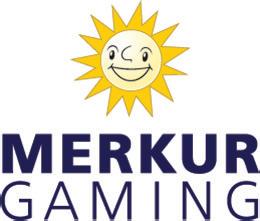
MLKambi www.kambi.com
T: +356 21315514
E: sales@kambi.com N
LeoVegas A liates leovegasa liates.com
T: +356 27780258
E: a liate@leovegas.com
MERKUR GAMING
www.merkur-gaming.com
T: +49 5741 2736 9301
E: sales@merkur-gaming.com


IGT
www.igt.com
T: + 1 702 669 7777
E: info@igt.com
Neosurf
www.business.neosurf.com
T: +44 1483 3630 91
E: sales@neosurf.com

NOVOMATIC
www.novomatic.com
T: +43 2252 606 0
E: communications@novomatic.com


TPariplay www.pariplayltd.com
T: +3 56 2756 3725
E: info@pariplayltd.com
Pragmatic Play www.pragmaticplay.com
E: sales@pragmaticplay.com
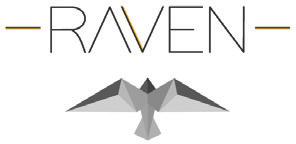

RRaven Track www.raventrack.com
T: 07799 898 175
E: adam@raventrack.com



SRelax Gaming www.relax-gaming.com
E: sales@relax-gaming.com

Trustly Group AB www.trustly.com
E: sales@trustly.com


VVallettaPay www.vallettapay.com
T: +44 151 947 0483
E: info@vallettapay.com Y
World Match www.worldmatch.eu
T: +39 049 785 1905
E: sales@worldmatch.eu

Suzo Happ www.na.suzohapp.com
T: 888-289-4277
E: sales@suzohapp.com

Soft2Bet www.soft2bet.com
E: office@soft2bet.com

Yggdrasil Gaming www.yggdrasilgaming.com
E: sales@yggdrasilgaming.com
Zitro www.zitrogames.com
T: +352 266 33
E: info@zitrogames.com

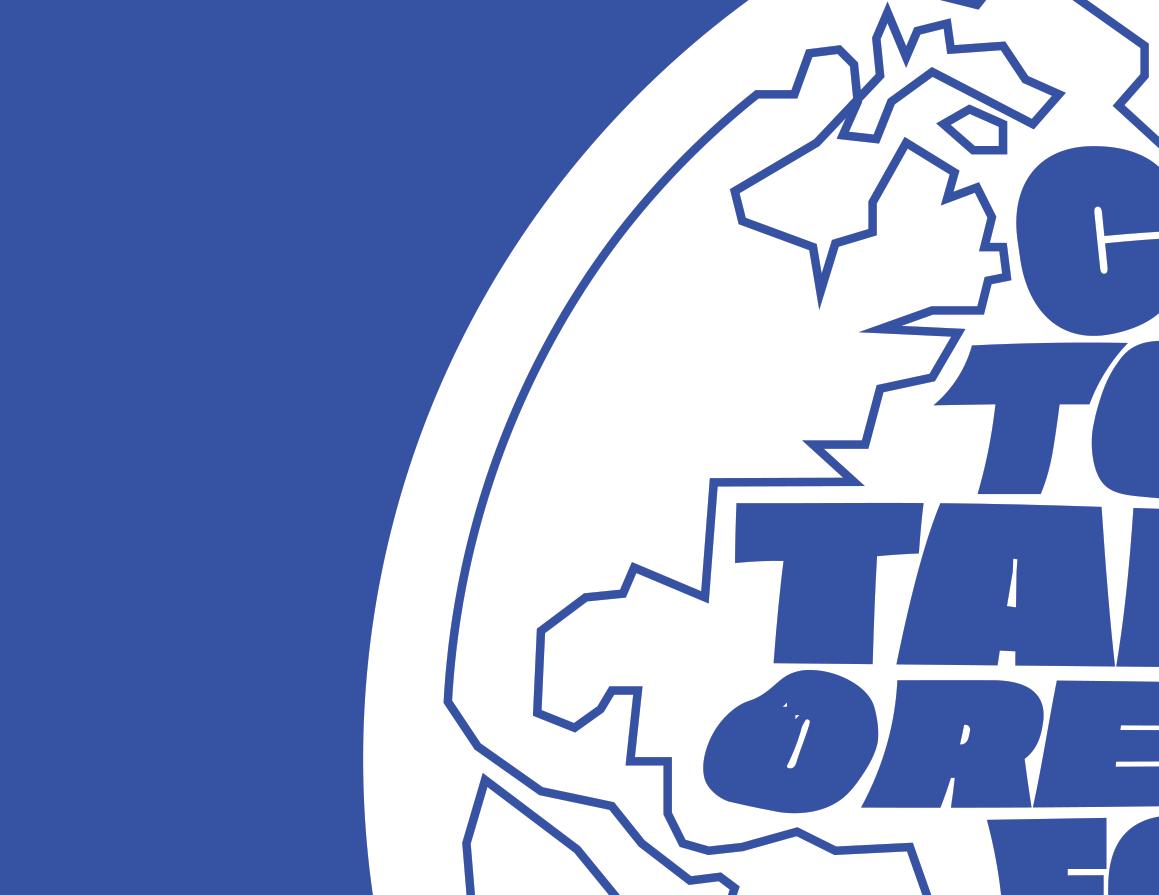




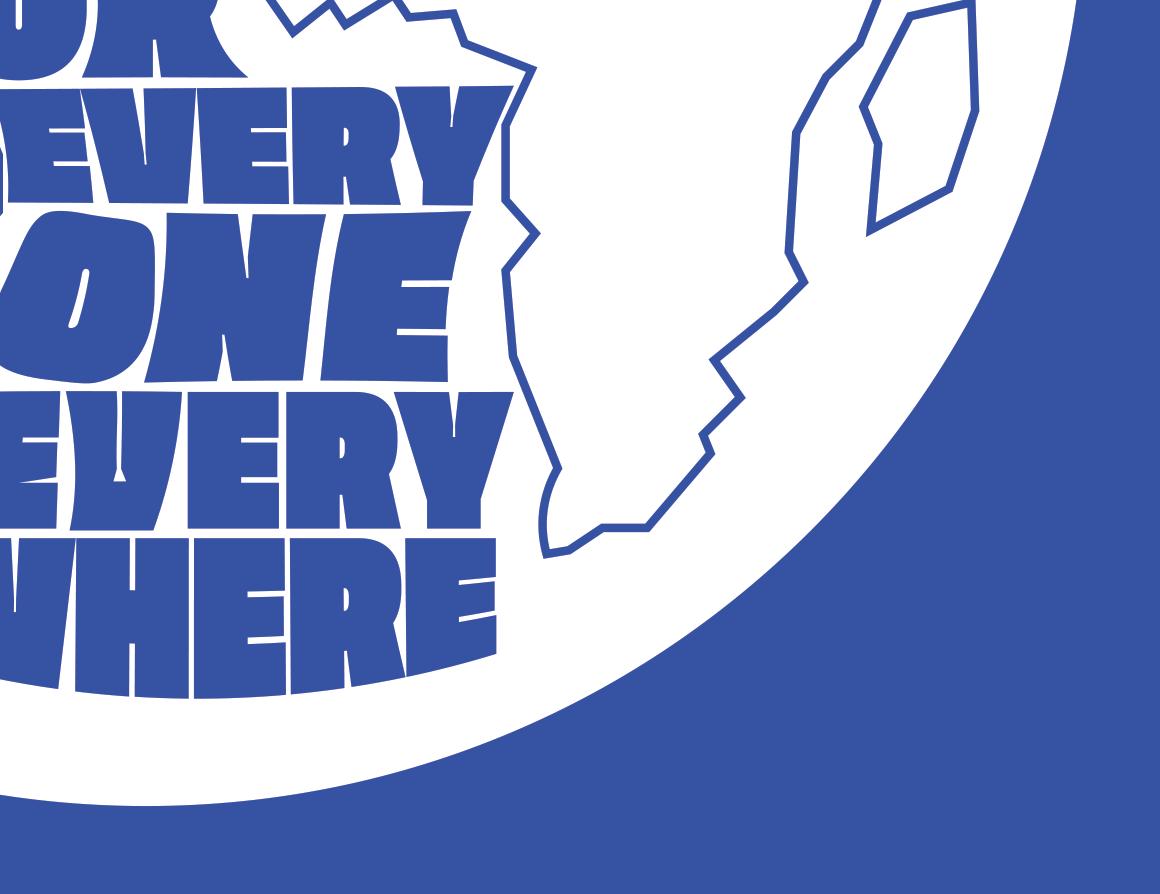

Gambling Insider takes a close look at some of the exciting new products now available on both the retail and digital casino oors, covering land-based, lottery and more
REVIEW: SMARTLOTO’S SMART DRAW 1D2
Lotteries have long been a popular form of entertainment and an important source of revenue for governments around the world. The lottery industry has undergone substantial changes and advancements, especially with the introduction of lottery machines. The core part of the lottery game is composed of a lottery machine, which is used to conduct physical lottery draws and generate lottery numbers through random numbers to ensure, transparency, impartiality and fairness, which can enhance player trust.
INTRODUCING SMARTLOTO’S SMART DRAW 1D2
Designed for lottery games, this machine plays a key role in ensuring fairness, transparency and efficiency throughout the process.
A key feature of the 1D-2 is the physical aspect. The use of a physical lottery machine can increase the visibility and interactivity any lottery experience. As can be seen with the sleek, stylish appearance of this piece of lottery machinery.
Equipped with an AI system and API data-docking technology, the 1D-2 offers high stability and supports 7X24 hours full automatic running. These innovative features simplify operations while minimising errors. The machine also has strong security features,
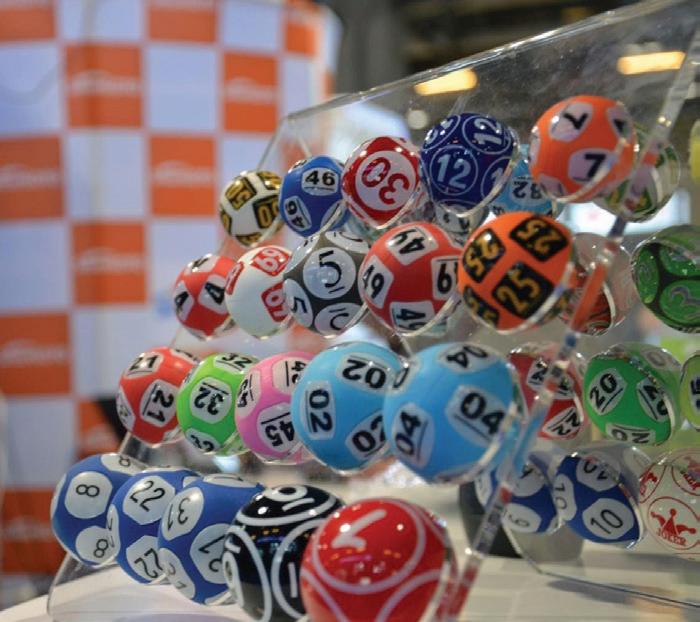
such as an RFID automatic identification and verification device system, which can be tamperproof and prevent unauthorised access.
Another key aspect of modern lottery machinery is connectivity and data management. Lottery machines, like the 1D-2, are connected to centralised systems for real-time data collection, analysis, reporting purposes, facilitating effective record keeping, winner verification procedures, and regulatory compliance measures.
Today, physical lottery machines are widely used in the lottery industry, and it is expected to provide more innovative and engaging lottery gaming experiences while maintaining the highest standards of integrity and player protection.
The 1D-2 displays all the key featuresof a highly efficient and engaging modern lottery machine.
With an excellent product portfolioand more intelligent lottery systems, products like the 1D-2 highlight SmartLoto’s commitment to meeting the needs of its customers and providing customised services, including system design, development, maintenance, andlive broadcast design and construction.
SPOTLIGHT ON NOVOMATIC’S SOPHISTICATED V.I.P. XPERIENCE
huge 85” game screen and the comfortable Mamba chair as a matching throne, it celebrates the Very Important Player X-Perience in majestic style.
The exciting V.I.P. X Dream™ 2.43/3.43 delivers the gaming sensation players dream of. With the towering set-up of two 43” game screens plus the optional topper and the exceptionally comfortable chair, there are no limits to the Very Important Player X-Perience with this cabinet.
And finally, the elegant V.I.P. X Lounge™ 2.32 is the spark that ignites gaming excitement, offering the Very Important Player X-Perience in a space-optimised lounge format. Multiscreen game presentation on two 32” screens and the exquisite Mamba chair combine laidback comfort with the thrills of gaming. Thomas Schmalzer, VP Global Sales and Product Management at NOVOMATIC AG, explains: “We challenge operators to think big. But not only that. With our V.I.P X series we have established a new class of gaming devices in the ultra-premium segment in all sizes and screen configurations. This provides the tools to our customers to elevate their offering and provide a first-class experience to their players. Operators will introduce a truly exceptional Very Important Player X-Perience on their floor – and their guests will love how that feels.”
year, will love how that feels.”












NOVOMATIC, one of the largest gaming technology groups in the industry, is known for its innovative product portfolio made up of stateof-the-art gaming solutions and its dedication to their customers. This year, NOVOMATIC is shining the spotlight on the V.I.P. X series: Think bigger! The V.I.P. X Galaxy™ 2.65 presents itself in its galactically large form and scores points with unique seating comfort and design. With the ultra-wide set-up of two 65” game screens and its adjustable luxury seating comfort, it skyrockets players into new galaxies of gaming enjoyment. Because every player deserves to feel like a V.I.P.


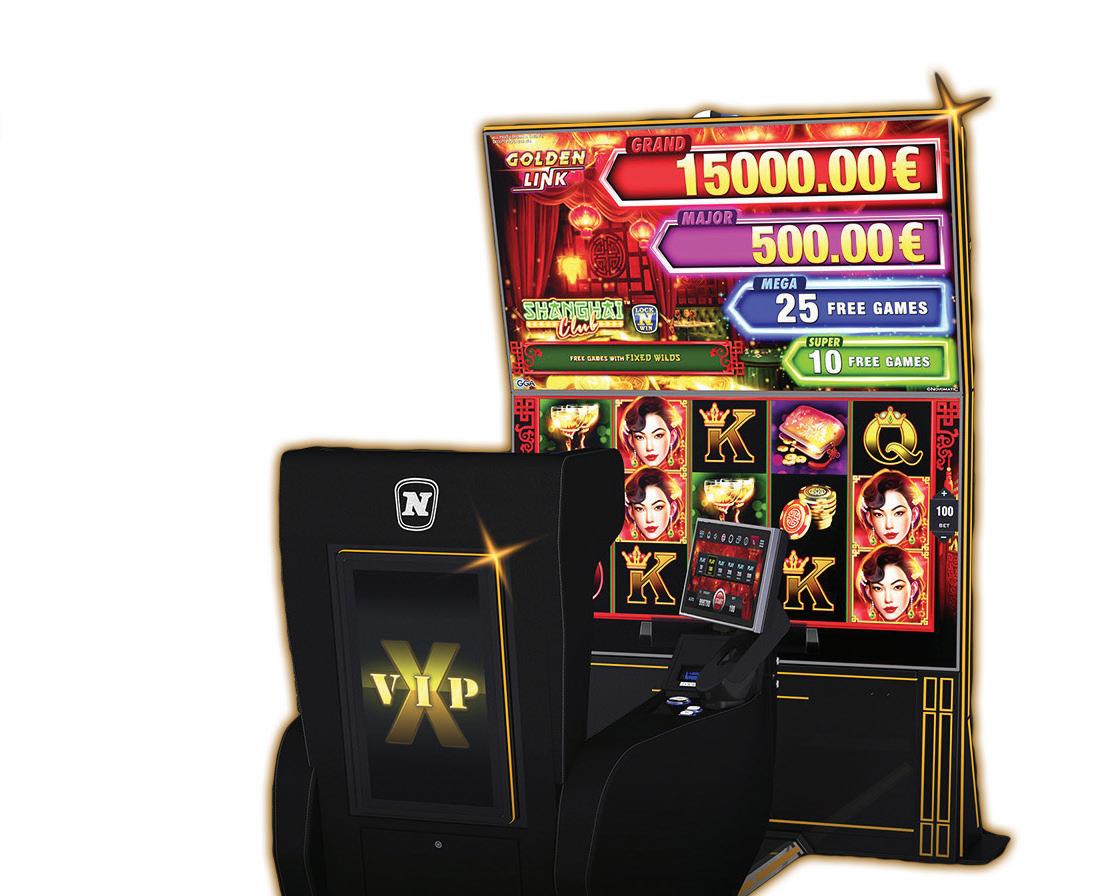


A monument to the to the kings and queens of gaming: The impressive V.I.P. X Royal™ 1.85 takes gaming above and beyond. With a truly royal game presentation on the

REVIEW: ELECTRIFYING FUN WITH ZITRO’S ENERGY LINK
Embark on an electrifying adventure with Energy Link. Featured on the Allure Glare cabinet, Energy link is an engaging slot game that introduces players to four captivating themes, each highlighting the innovative Link Up feature. Activated by 6 or more Link symbols, and featuring additional symbols based on the player’s chosen bet and game theme, this dynamic experience offers diverse gameplay options. At a 50-credit bet the game behaves similarly to the renowned Link King Bonus, while a higher bet of 75 unveils the Bonus Link, introducing the Clone Symbol or Volt symbol for larger symbols and enhanced values. For players who choose a higher bet of 90,the Bonus Link takes a surprising turn with the inclusion of the Clone Volt symbol. Here, each Clone Volt symbol mirrors the largest amount to the rest of Clone Volt Symbols, and awards mystery amounts to the additional link symbols. Energy Link promises electrifying fun for all players!
the inclusion of the Clone Volt symbol.
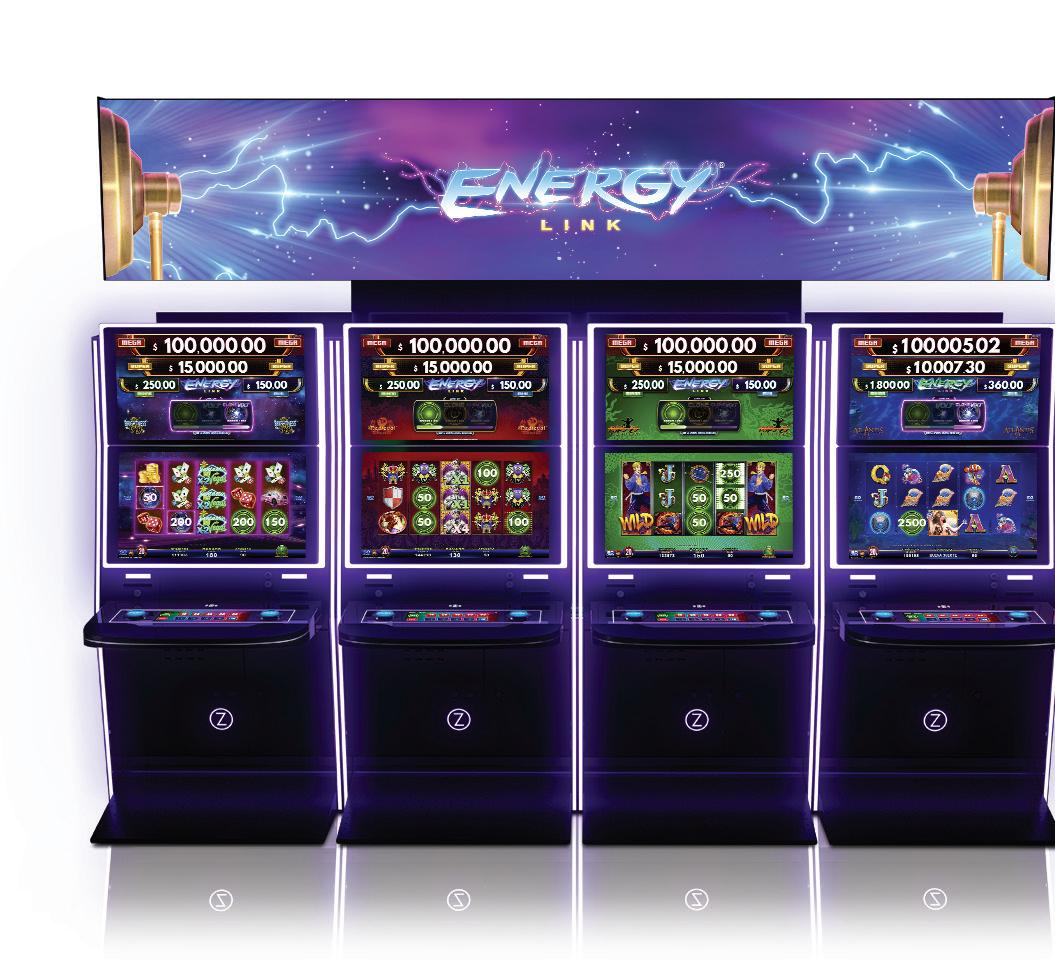
SPINTEC’S NEW CHARISMA LINE
Charisma has everything: From sleek design to super exciting new games
Spintec’s latest Charisma line is a big testament to player-centric design. It boasts an outstanding visibility of the roulette wheel and a matchless player comfort. It covers all bases with immersive, user-friendly touchscreen interface on two different high-resolution displays (24” FHD and 27” UHD/4k), comfortable seating, handy surfaces for snacks and drinks, wireless and USB mobile chargers and easily accessible bill validators and ticket printers. Following the newest trends, Charisma offers compact solutions that can fit any casino floor, including 4, 5, 6, 8,10 and 12 play stations.
Charisma also features Galactic Spin: a super fun new game with exciting random payout multipliers that can go up to 300x and average more than 3-4 special multiplier numbers per game. A three-level jackpot with an adjustable participation limit invites players to go even bigger and averages more than two free spin surprises per game. Overall, a player can get up to 12 special numbers in one game with star multiplier numbers, free spin numbers and galactic jackpot numbers.
Alternatively, Charisma can also support a Lucky number Jackpot and Hotspot Roulette multipliers that offer payouts of up to 900x; and up to 6 Hotspot multiplier numbers in a game, and still retain the standard roulette hold. It can also be connected to other playing stations within the casino or at
other venues, which is especially interesting for larger jackpot setups.
Charisma can be a standalone multigame station with a large upright 43” UHD screen: it looks like a slot machine, yet it delivers so much more! This unique gaming experience offers the versatility of













































different monitor sizes (from 43” to 27”) and enables operators to connect to live wheels or tables, automated games as well as Spintec’s proprietary games and features. Moreover, the player is free to dictate the pace of their game using the Start button, which ultimately translates into even more games per hour.
different monitor sizes (from 43” to 27”) and
















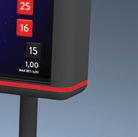





























EDUCATION OCTOBER 7–10, 2024
EXPO HALL OCTOBER 8–10, 2024
THE VENETIAN EXPO, LAS VEGAS
G2E is the catalyst for gaming - fostering innovation and driving growth by convening the global industry to define tomorrow. CONVENING GAMING






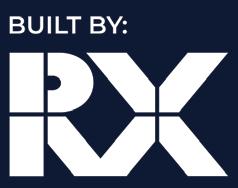
Alex Scott writes about how gambling regulators failed poker players...





In my last article for Gambling Insider I wrote: ‘The poker market is again dominated by private companies run by poker players and by a worrying number of black-market operators.’ In this article, I’m going to dig into that second statement regarding the black market.
Before Black Friday, the USA accounted for over half of the entire online poker market by revenue. Today, legal online poker is allowed in just eight states, only five of which share liquidity with each other. But online poker is booming in all fifty states, as long as you’re willing to take a chance on a black-market poker app.
The US poker black market falls into two categories. The first are traditional sites that openly flout the law – accepting US players via underhand payment processing techniques and especially cryptocurrency. It’s essentially the continuation of the pre-Black Friday market, only more sinister.
The second is a trend that emerged first in Asia, and later spread to Latin America, Europe and the US – the poker app that masquerades as a social gaming platform. In this style of app, players compete for a virtual currency such as gold or diamonds, usually in private games organised by clubs. You’ll find these games openly advertised in the Apple and Google app stores, because ostensibly they don’t facilitate real gambling. But the reality is, virtual currencies are just a facade, and the apps’ creators have created

extensive tools and networks to enable the conversion of these currencies to real money.
In the US this black market is far bigger than the market in the eight regulated states, however you measure it. I’ve heard through connections in the industry that some of the poker apps have more cash game players than PokerStars.
This is an enormous failure of gambling regulation and enforcement. I’m in favour of regulation, but I find it hard to defend the position the US states find themselves in - having created a scenario where nobody is likely to flourish, both because of oppressive regulation and a lack of enforcement against the black market. No tax revenues are being collected, no economic growth is being created and no players are being protected. If those involved in US regulation are not embarrassed, they should be.
To those of us who were involved in the poker industry before Black Friday in 2011, it’s an insult. Back then, the leaders of PokerStars and Full Tilt made genuine efforts to engage with US lawmakers and promoted the growth and development of the game in the US. If it had been available at the time, both sites would have jumped on the regulation train at the first opportunity. But, the hammer was brought down nonetheless.
Today’s black market is cynical. It is not lobbying for better regulation or to grow the game. It is here to squeeze money from online poker as quickly as possible and then get away


with the loot. In terms of its contribution to our great game, today’s black market is barely better than a bot farm.
Poker regulation in other countries is often no better. In Portugal, the first regulations were famously drafted by the country’s government body for tourism. Among many other hilarious gaffes, the regulations insisted that the user interface must always display a dealer shoe (a device never used in poker). In Germany, the regulations seemed designed to put German players at a competitive disadvantage, placing nonsensical limits on games, stakes and tables played, ensuring that the entire population loses money. In several regulated countries, you can accidentally hit a ‘panic button’ that will immediately log you out, guaranteeing you lose the tournament you’re currently playing in with absolutely no recourse.
The UK, which casino and sports betting companies seem to be terrified of, has treated online poker players well. Operators must tell players how they’re protecting player funds, there are exemptions for things like autoplay (arguably harmful to the player in casino, arguably beneficial to the player in poker) and the regulator listens to players via consultations. I can’t believe I’m writing this, but well done to the Gambling Commission. You’re a model for positive poker regulation. If only somebody would listen.

Scan the QR Code to launch with iGP.